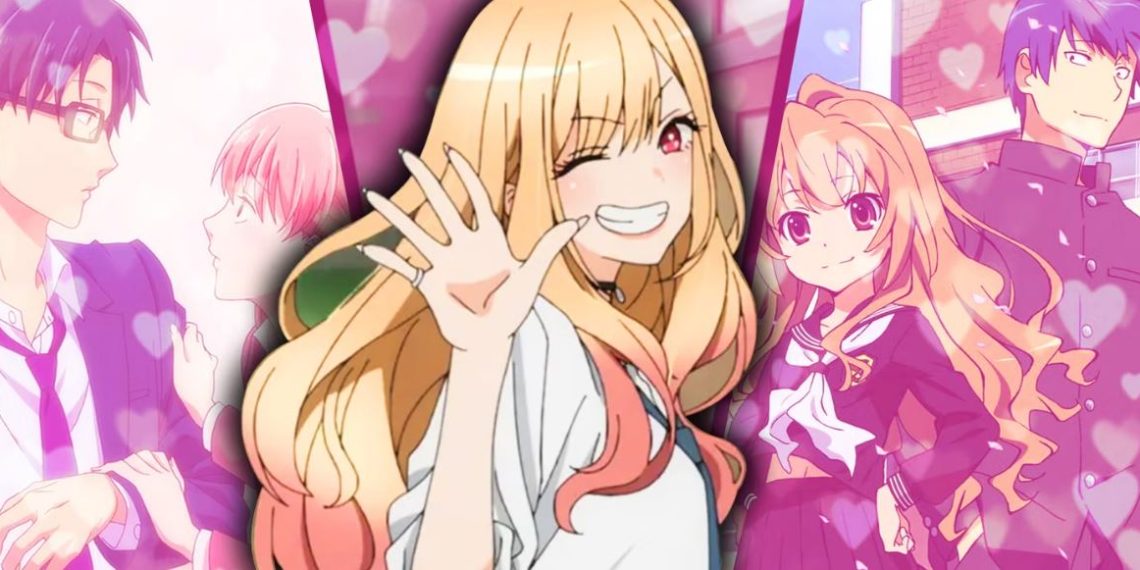My Dress-Up Darling quickly won over audiences with its endearing character dynamics. Marin Kitagawa, an energetic cosplayer, and Wakana Gojou, a reserved yet skilled seamster, form an unlikely connection. Despite their contrasting personalities, their shared passion for craftsmanship bridges the gap between them, leading to a touching friendship and eventual romantic tension.
While Marin dreams of refining her cosplay skills, Gojou struggles with self-doubt about his sewing talent. As they collaborate on various costume projects, their bond deepens, allowing them to support and uplift each other. Their evolving dynamic showcases the beauty of finding confidence and companionship through mutual interests.
My Dress-Up Darling effortlessly blends humor, emotion, and romance, creating an engaging rom-com experience. Whether through lighthearted banter or heartwarming moments, the series strikes a balance that resonates with fans. The gradual development of their feelings adds a compelling layer to their journey.
For those drawn to My Dress-Up Darling, many other anime offer similar heartfelt and comedic narratives. With its touching story and lovable characters, this series remains a standout in the romance anime genre.
12. Kaguya-sama: Love is War
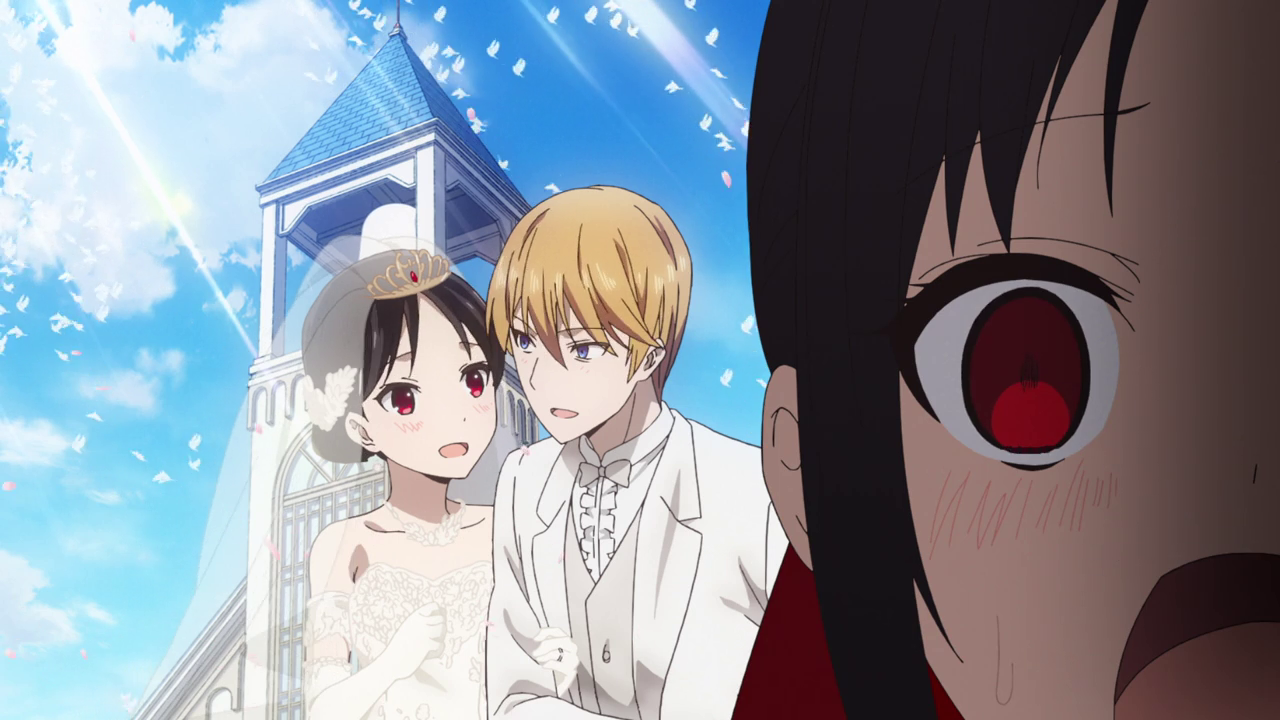
Kaguya-sama: Love Is War is a romantic comedy anime adapted from Aka Akasaka’s manga. Produced by A-1 Pictures, the series presents a battle of wits between two brilliant yet stubborn protagonists, Kaguya Shinomiya and Miyuki Shirogane, who refuse to confess their feelings first.
Their intense psychological games, combined with humor and emotional depth, make this series stand out among romance anime.
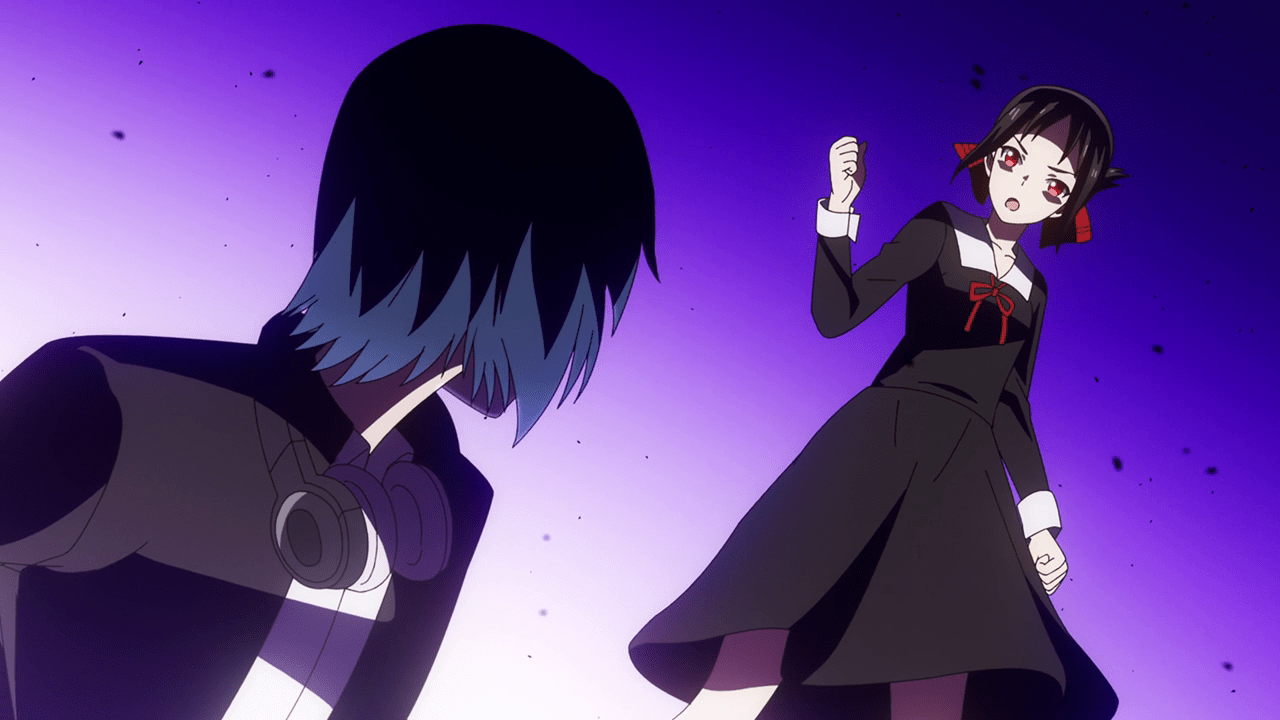
The story takes place at Shuchiin Academy, an elite institution where Kaguya, the vice president of the student council, and Miyuki, the president, are both admired for their intelligence and status.
Despite clearly having feelings for each other, they both believe that confessing first would be an admission of weakness. Instead, they engage in mind games to force the other into confessing, leading to absurdly exaggerated yet hilarious situations.
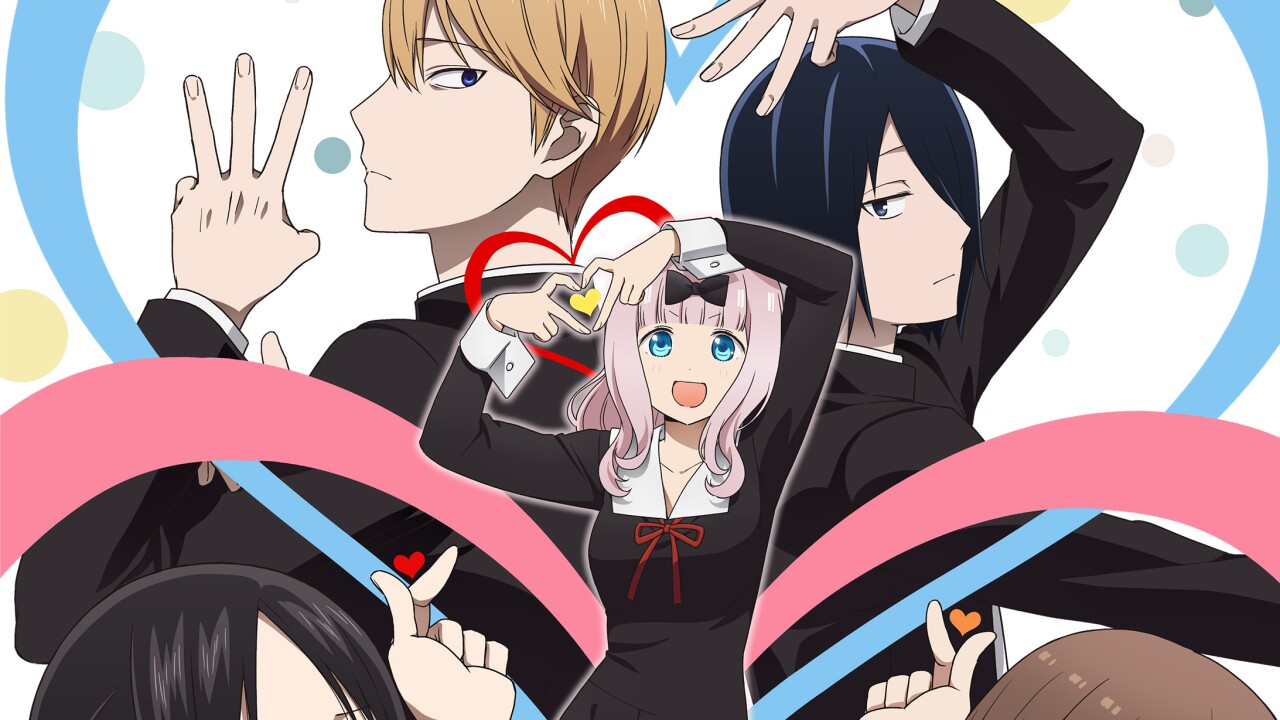
Kaguya comes from a wealthy and prestigious family, making her refined yet socially inexperienced. While she maintains a composed and elegant persona, her inner thoughts reveal a more mischievous and competitive side.
Miyuki, on the other hand, is a hardworking student from a modest background who has earned his position through sheer effort. His pride prevents him from admitting his feelings first, leading to an ongoing war of manipulation between the two.
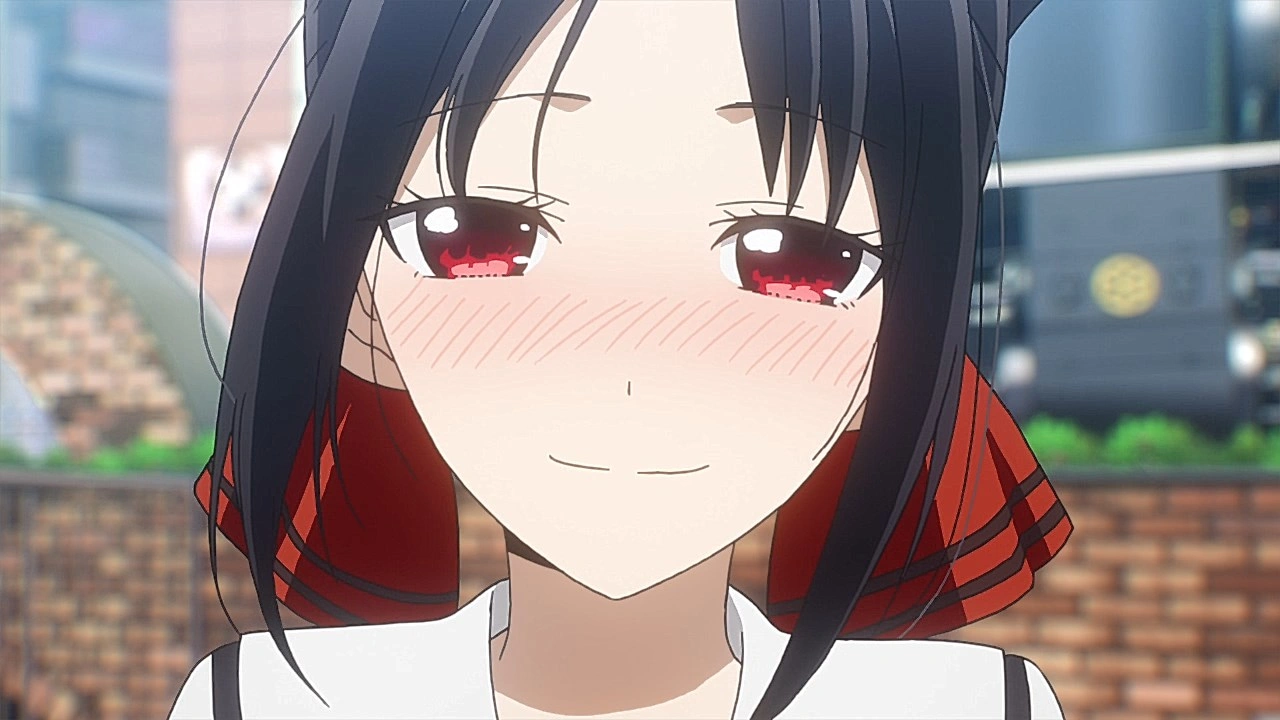
The student council is completed by other colorful characters. Chika Fujiwara, the unpredictable and energetic secretary, often disrupts Kaguya and Miyuki’s psychological warfare without realizing it. Yu Ishigami, the gloomy yet insightful treasurer, adds a layer of dry humor and relatable social struggles.
Ai Hayasaka, Kaguya’s loyal maid, balances professionalism with playful teasing, offering some of the funniest and most heartfelt moments in the series.
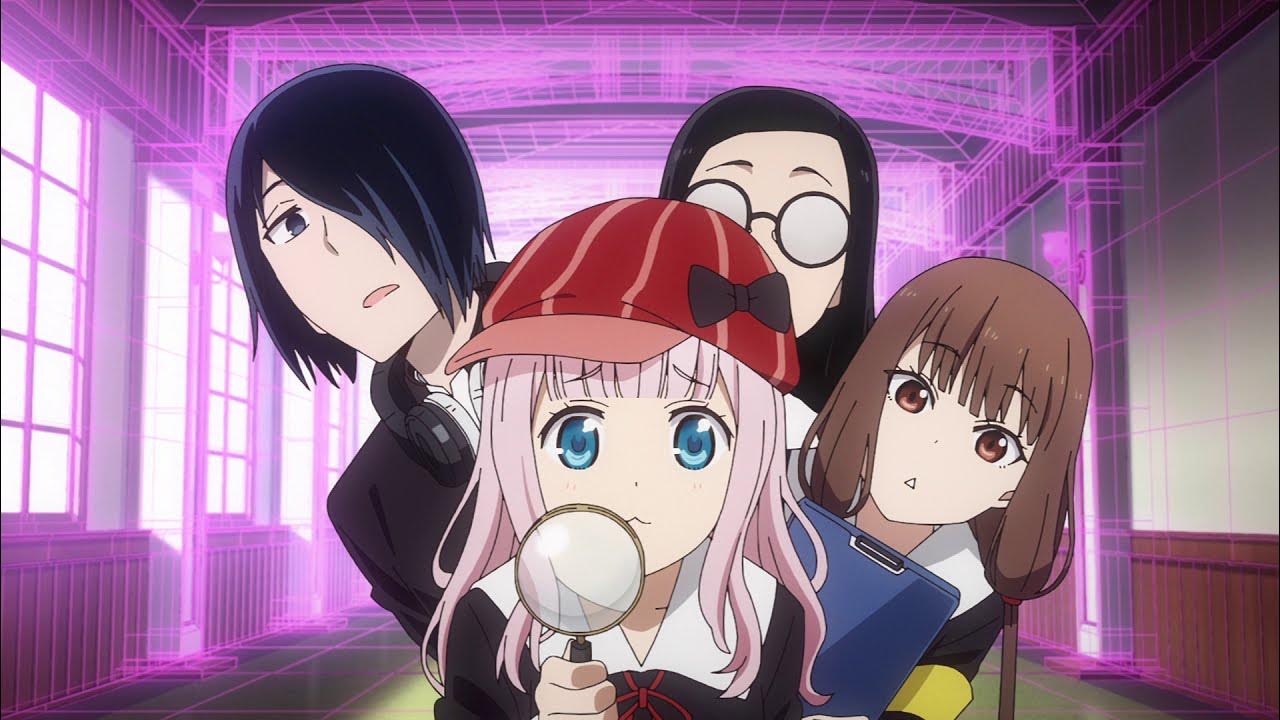
The anime’s comedy is its biggest strength. The exaggerated inner monologues, dramatic narration, and over-the-top mind games create a unique blend of romance and psychological warfare. The episodes often feel like battles, where every interaction is treated as a strategic move in a war neither side wants to lose. This combination of intelligence and absurdity keeps the humor fresh and engaging.
Despite its comedic tone, the series gradually develops emotional depth. As the characters spend more time together, their facades begin to crack, revealing their vulnerabilities. Kaguya, despite her wealth and intelligence, struggles with emotional expression due to her strict upbringing. Miyuki, while confident in his academic abilities, has insecurities about his status compared to Kaguya. Their growth is subtle but meaningful, making their relationship feel genuine rather than just comedic rivalry.
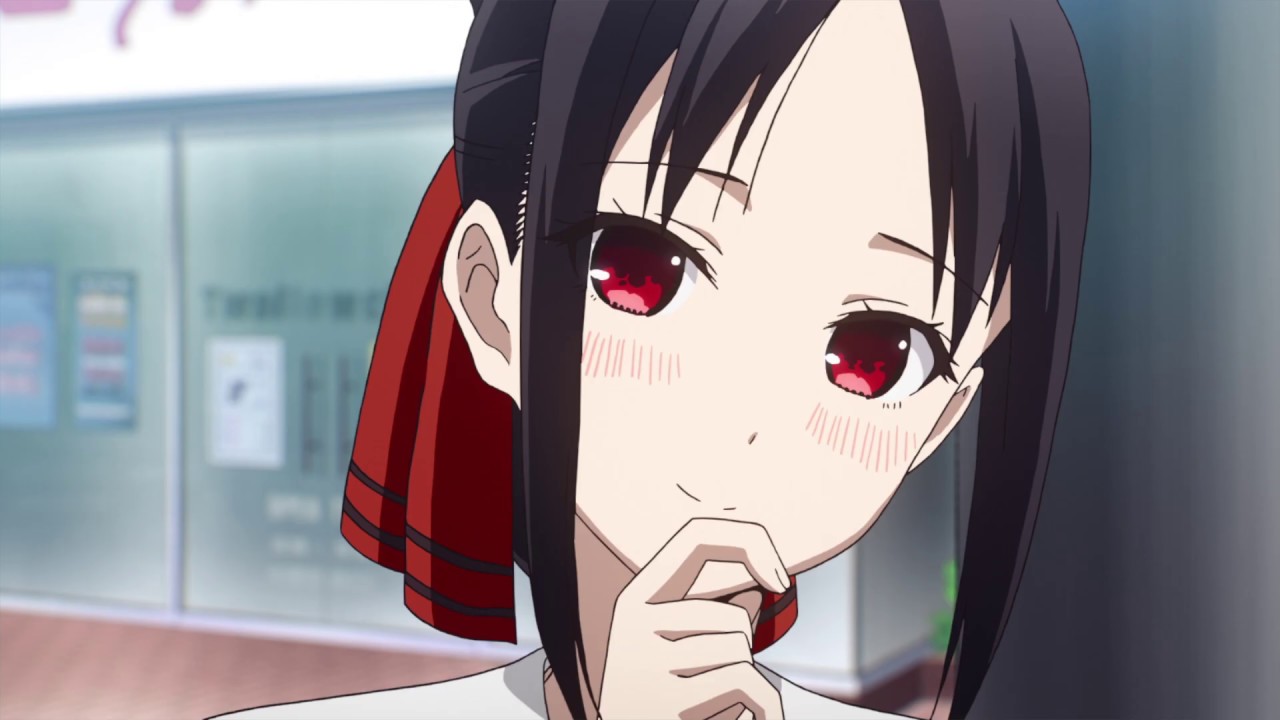
A-1 Pictures delivers exceptional animation quality, enhancing both the comedic timing and emotional impact of the series. Facial expressions are exaggerated to perfection, adding to the humor, while detailed character designs and fluid movements keep the visuals engaging. The use of dramatic lighting and cinematic angles amplifies the intensity of their so-called battles, making even the most trivial interactions feel like grand conflicts.
The soundtrack plays a key role in setting the mood. The opening themes, such as “Love Dramatic” by Masayuki Suzuki, perfectly capture the extravagant and theatrical nature of the series. The background music, often dramatic and orchestral, enhances the tension between Kaguya and Miyuki, making their schemes feel even more over-the-top. The narration, delivered in a serious and intense tone, adds another layer of comedy by treating their petty conflicts like life-or-death battles.

Voice acting is another highlight, with Aoi Koga (Kaguya) and Makoto Furukawa (Miyuki) delivering outstanding performances. Koga captures Kaguya’s refined elegance and mischievous moments effortlessly, while Furukawa conveys Miyuki’s pride and occasional awkwardness with perfect comedic timing. Chika’s voice actress, Konomi Kohara, brings chaotic energy to the series, making her scenes some of the most memorable.
As the story progresses, the romance aspect takes center stage, allowing for more heartfelt and sincere moments. The shift from strategic manipulation to genuine emotional connection is handled naturally, making the relationship feel more rewarding. While their mind games never fully disappear, the stakes become more personal as they realize that love isn’t just about winning.
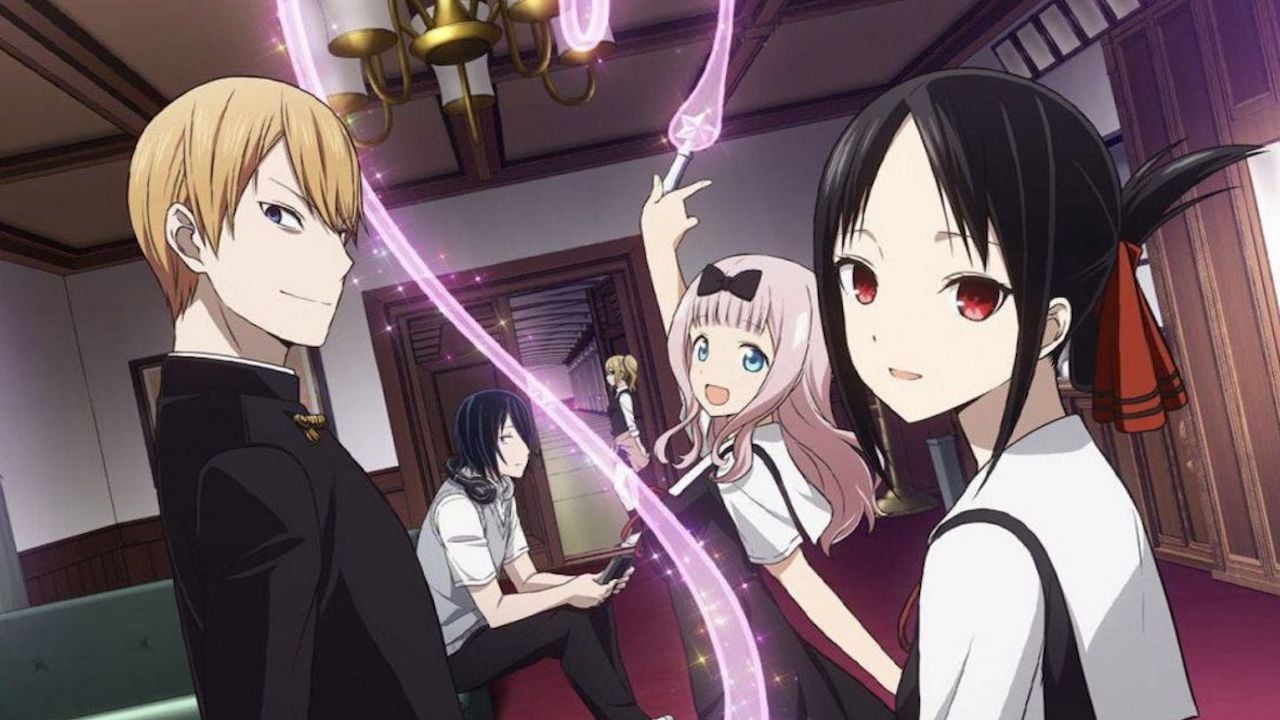
Beyond romance, the series also explores the friendships and struggles of the supporting cast. Ishigami’s backstory, in particular, adds unexpected emotional weight, providing depth to what initially seemed like a purely comedic anime. These moments of sincerity balance out the humor, preventing the series from feeling one-dimensional.
Kaguya-sama: Love Is War stands out by combining sharp humor, psychological battles, and heartfelt romance. Its unique approach to love and relationships, combined with witty writing and lovable characters, makes it one of the most entertaining and engaging rom-com anime. Whether for the comedy, mind games, or emotional moments, this series offers a refreshing and unforgettable experience.
11. Shikimori’s Not Just a Cutie
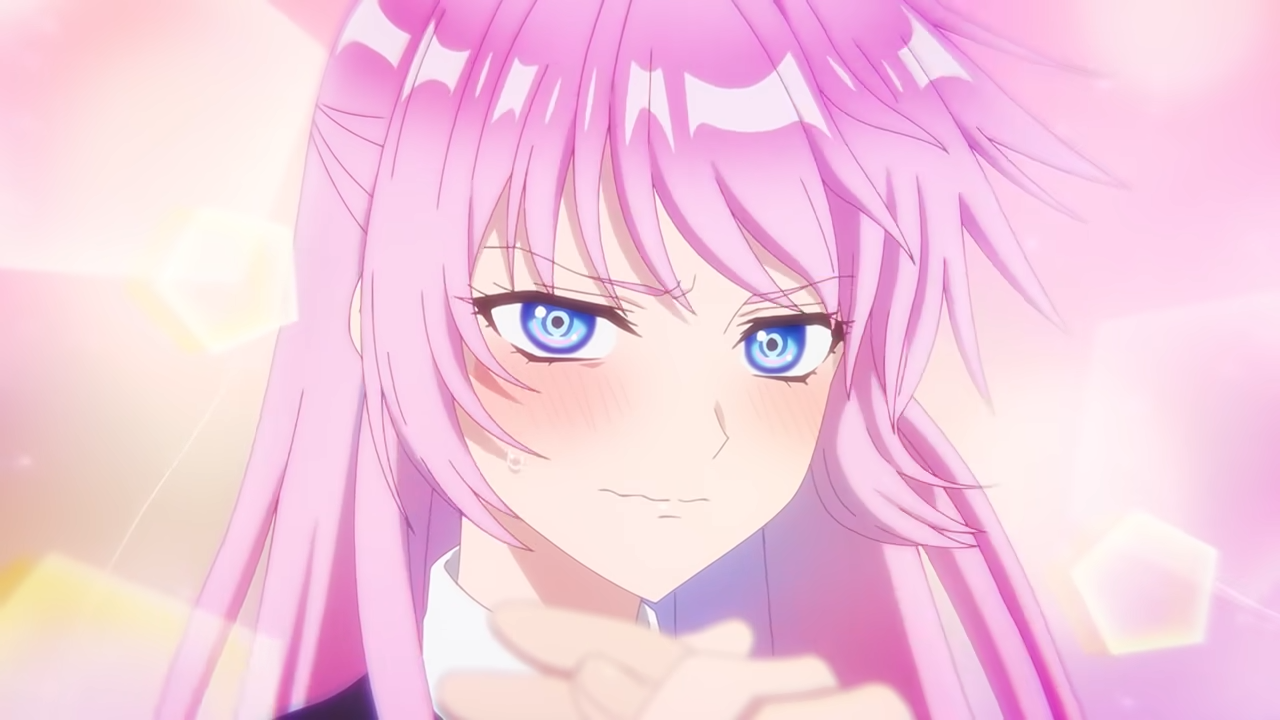
Shikimori’s Not Just a Cutie is a romantic comedy anime that aired in 2022, adapted from the manga by Keigo Maki. Produced by Doga Kobo, the series presents a refreshing take on romance by flipping traditional gender roles, showcasing a relationship where the heroine takes on the role of a charming yet protective partner.
The story revolves around Yuu Izumi, a high school boy with an unfortunate streak of bad luck. Despite his kind and gentle nature, he constantly finds himself in clumsy and unlucky situations. Fortunately, his girlfriend, Micchon Shikimori, is always there to protect him. While she appears sweet and affectionate most of the time, she has a cool and confident side that emerges whenever Izumi is in trouble.
Shikimori’s dual nature is the core appeal of the anime. One moment, she is the perfect adorable girlfriend, but the next, she exudes an effortlessly cool demeanor that leaves everyone in awe. Her ability to switch between these personalities adds charm to her character, making her stand out from typical romantic heroines.
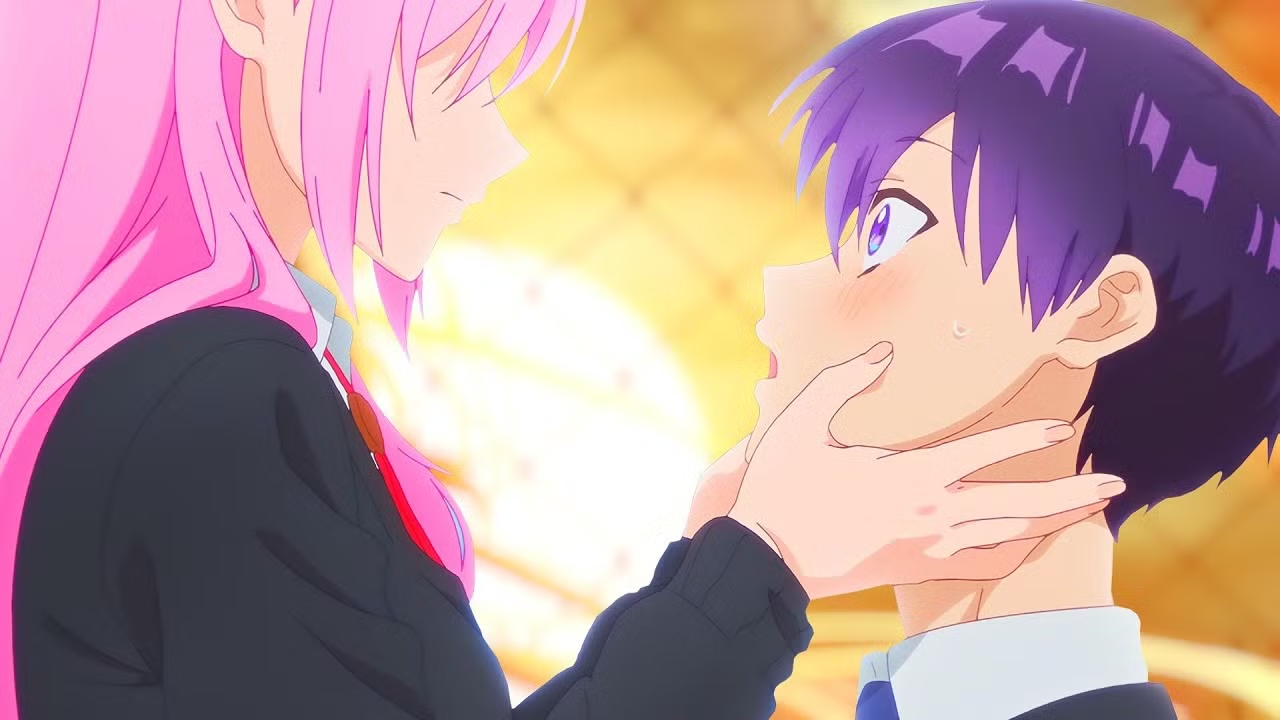
Izumi and Shikimori’s relationship is refreshingly wholesome. Instead of following the usual rom-com misunderstandings and drama, the series focuses on their strong bond and unwavering support for each other. Their dynamic is built on trust and mutual admiration, making their romance feel genuine rather than overly dramatic.
While Shikimori often takes the lead in protecting Izumi, the anime also highlights his qualities. He deeply cares for Shikimori and appreciates her strength, never feeling insecure about her dominant role. His sincerity and affectionate nature complement Shikimori’s boldness, creating a well-balanced partnership.
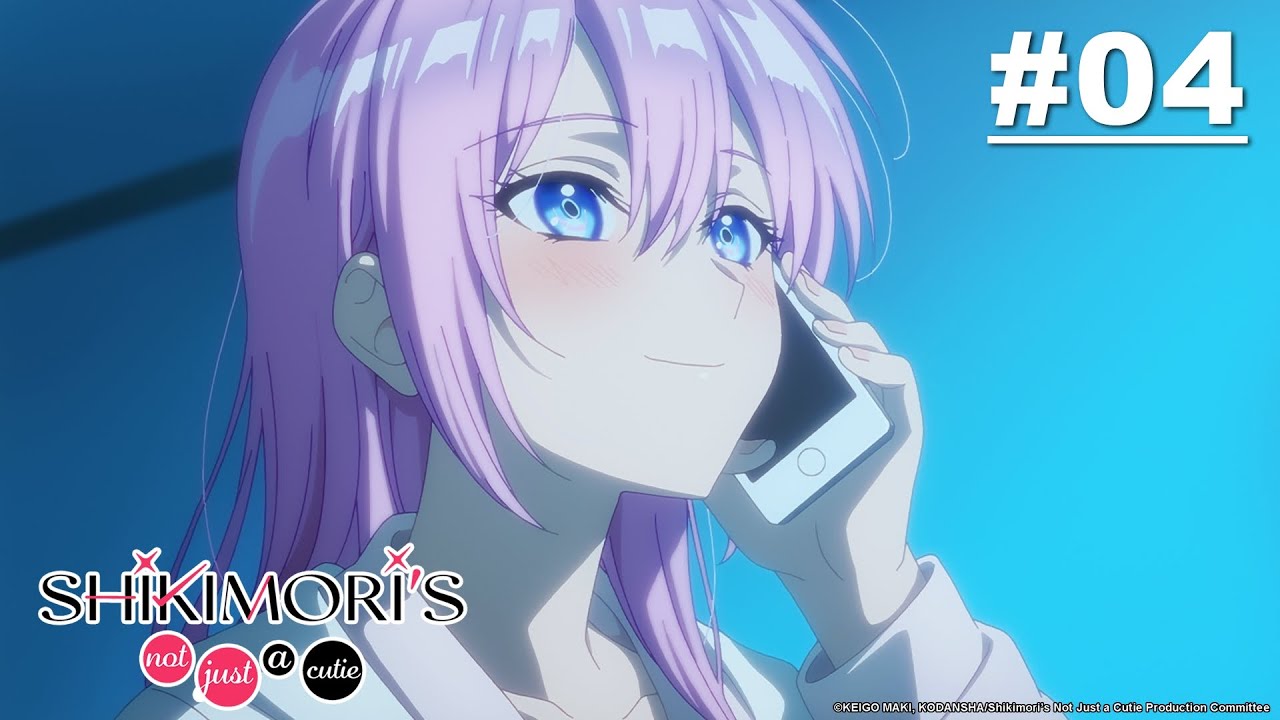
The supporting characters add depth to the story. Nekozaki, Hachimitsu, and Inuzuka, Izumi and Shikimori’s close friends, provide comedic relief while also contributing to the overall development of the couple’s relationship. Their interactions help highlight different sides of both Izumi and Shikimori, making their personalities feel more rounded.
Visually, the anime is vibrant and expressive. Doga Kobo’s animation brings out the playful and dynamic elements of the series, with well-executed character expressions that emphasize Shikimori’s transformation from cute to effortlessly cool. The fluid animation during action scenes, such as when Shikimori prevents accidents from happening to Izumi, adds flair to the storytelling.
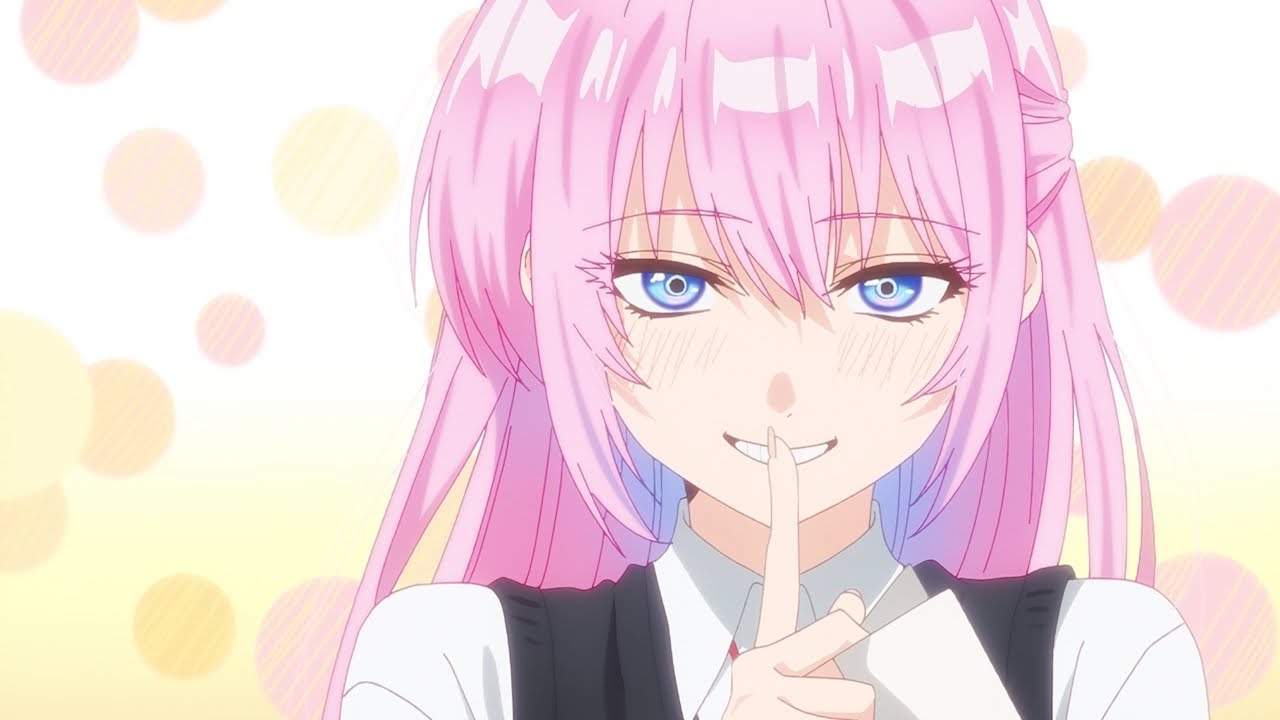
The soundtrack enhances the anime’s mood. The opening theme, “Honey Jet Coaster” by Nasuo☆, captures the series’ energetic and lighthearted atmosphere, while the ending theme, “Route BLUE” by Yuki Nakashima, reflects the warmth of Izumi and Shikimori’s relationship. Background music subtly supports both the comedic and romantic moments, strengthening the emotional impact.
Voice acting plays a crucial role in bringing the characters to life. Saori Ōnishi’s portrayal of Shikimori captures both her gentle and cool sides, smoothly transitioning between the two personalities. Shūichirō Umeda’s performance as Izumi brings out his kind-hearted nature, making him a relatable and likable protagonist. The chemistry between the two leads is evident, adding to the charm of their interactions.

One of the anime’s strengths is its lighthearted and feel-good storytelling. Unlike many romance series that focus on dramatic conflicts, Shikimori’s Not Just a Cutie embraces a more positive and comforting approach. It highlights the joy of being in a supportive and loving relationship, making it a refreshing watch for those looking for a romance without unnecessary angst.
However, the anime’s simplicity may be a drawback for some viewers. Since there is no overarching conflict or dramatic tension, the episodic nature of the story might feel repetitive. While the character interactions are engaging, the lack of significant plot progression might make it less compelling for those who prefer more story-driven romance series.
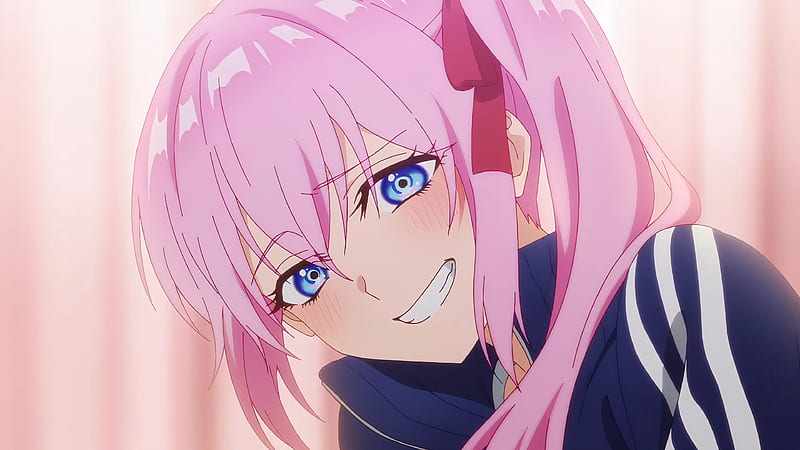
Despite this, the charm of Shikimori’s Not Just a Cutie lies in its unique portrayal of romance. The role reversal, where the heroine takes on the strong and protective role while the male lead remains sweet and supportive, sets it apart from conventional romance anime. It provides a fresh and enjoyable perspective on relationships, proving that love isn’t about fitting into traditional roles but about appreciating each other’s strengths.
For fans of wholesome and lighthearted romance series, Shikimori’s Not Just a Cutie delivers an enjoyable experience filled with sweet moments, humor, and charming character dynamics. While it may not offer deep or complex storytelling, its heartwarming portrayal of a loving and supportive relationship makes it a delightful watch.
10. Skip And Loafer
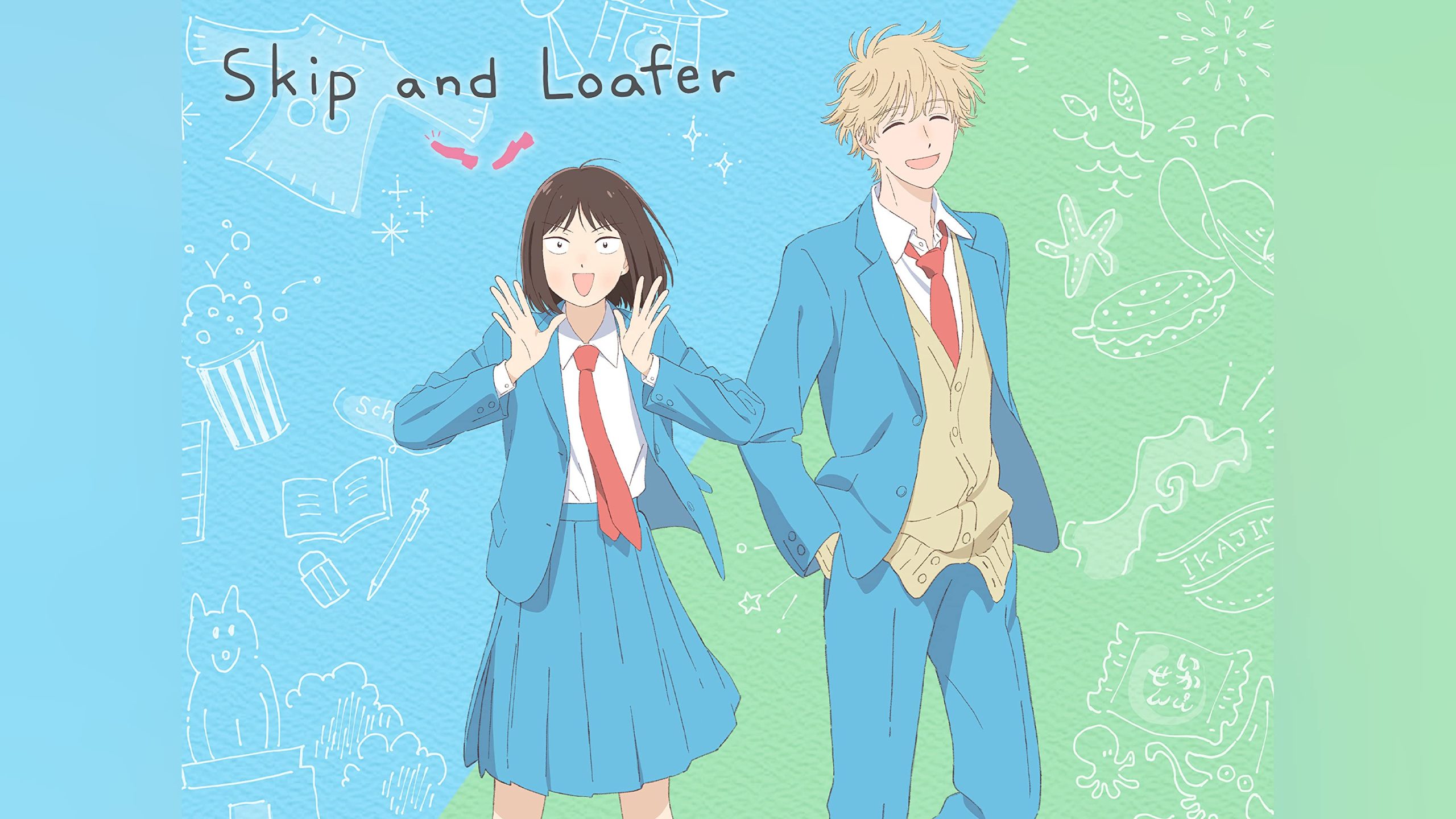
Mitsumi and Sousuke’s connection in Skip And Loafer stems from their shared circumstances. While romance isn’t the main focus, their bond deepens over the series’ twelve episodes. Mitsumi, a country girl with big dreams, struggles to adapt to city life and initially faces challenges with her new peers.
In contrast, Sousuke, another first-year student, encounters Mitsumi while they both rush to school on the first day. Despite their differences, Sousuke is drawn to Mitsumi’s unique qualities.
Mitsumi, a prodigy from a small town, finds an unexpected ally in Sousuke, who appears indifferent to academics. Together, they support each other’s growth and form a meaningful connection throughout Skip and Loafer.
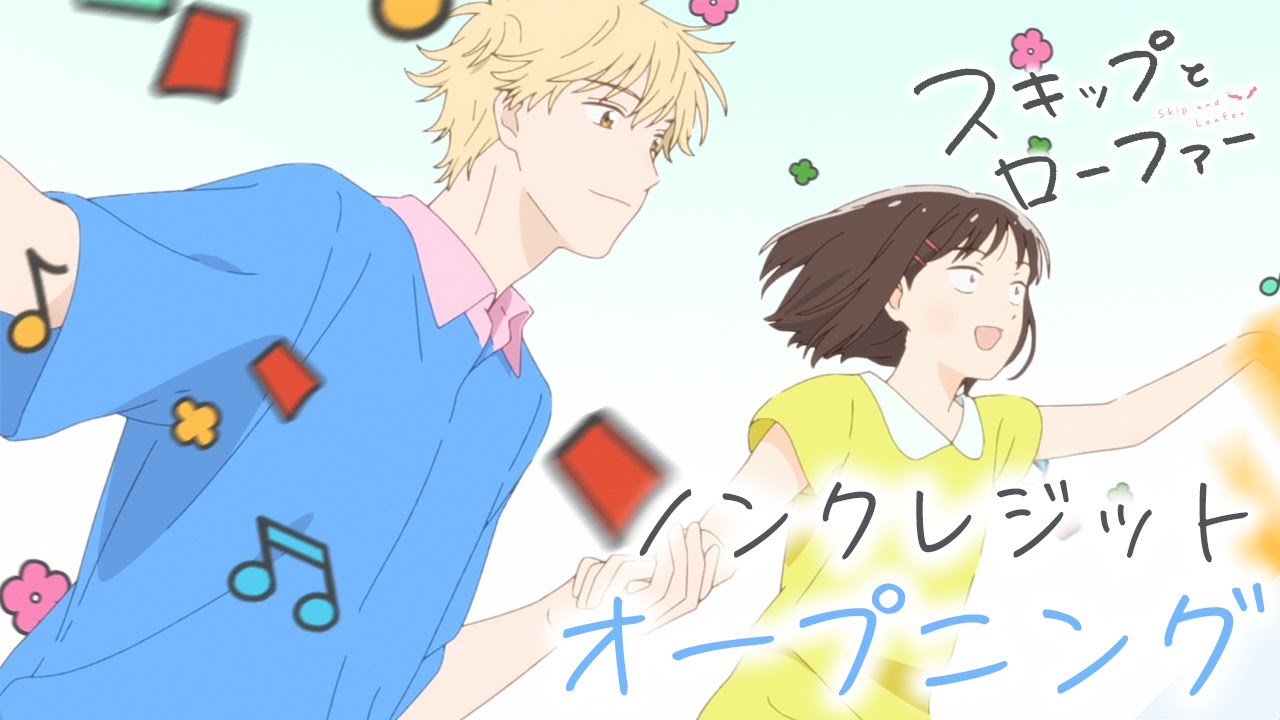
Skip and Loafer is a heartwarming slice-of-life anime that aired in 2023, based on the manga written and illustrated by Misaki Takamatsu. Produced by P.A. Works, the series follows the journey of Mitsumi Iwakura, a bright and ambitious girl from the countryside, as she moves to Tokyo for high school.
With its charming characters, lighthearted humor, and meaningful storytelling, the anime beautifully captures the ups and downs of adolescence and self-discovery.
Mitsumi Iwakura has always been a diligent student with big dreams. Coming from a small rural town, she aspires to succeed in Tokyo and eventually make a difference in society. However, her first day in the city doesn’t go as planned—she gets lost on the way to school and nearly misses the entrance ceremony. This mishap leads her to meet Sousuke Shima, a laid-back and popular boy who helps her find her way.
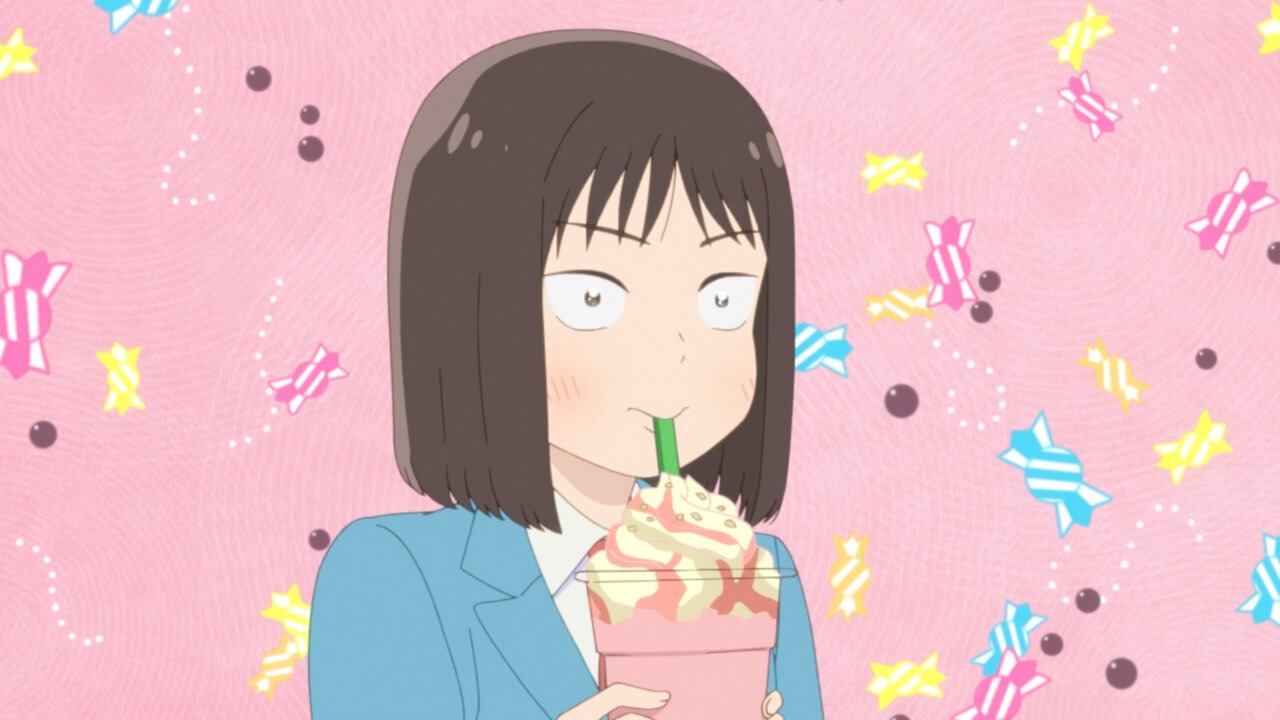
Despite their contrasting personalities, Mitsumi and Shima develop a natural friendship. Mitsumi is hardworking, earnest, and sometimes overly serious, while Shima is relaxed and easygoing, hiding a more complex side beneath his carefree demeanor.
Their dynamic forms the emotional core of the story, as Mitsumi navigates the challenges of adapting to city life while learning more about herself and those around her.
One of the anime’s greatest strengths lies in its supporting cast. Mitsumi quickly befriends several classmates, each with distinct personalities and struggles. Mika Egashira initially appears standoffish but later reveals her insecurities about fitting in.
Yuzuki Murashige, a beautiful and confident girl, contrasts Mitsumi’s innocence with her worldly experience. Makoto Kurume, an introverted girl, finds inspiration in Mitsumi’s determination and slowly opens up.
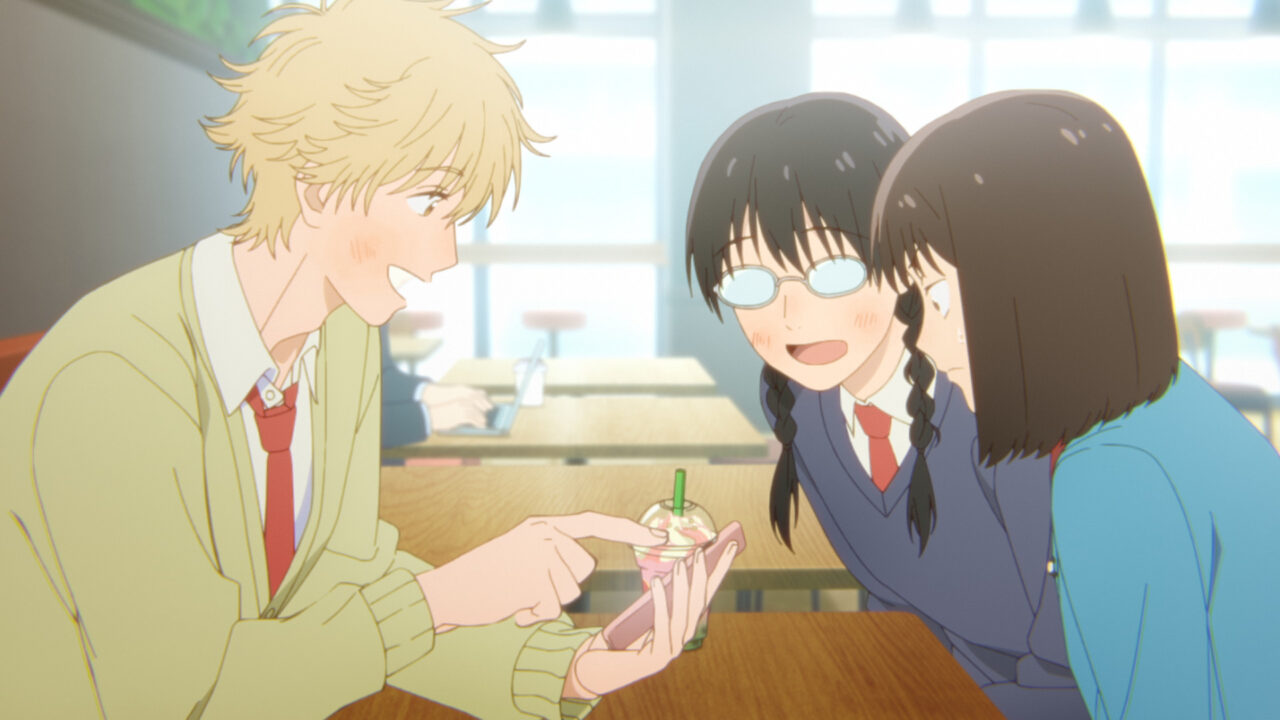
The relationships among the characters feel natural and realistic. Rather than relying on exaggerated drama, the anime focuses on everyday moments—friendship misunderstandings, personal growth, and the quiet joys of high school life. Mitsumi’s optimism and sincerity gradually influence those around her, leading to small but meaningful changes in their lives.
A major theme of Skip and Loafer is self-acceptance. Mitsumi, despite her intelligence, often struggles with social expectations and self-doubt. Shima, though outwardly confident, harbors insecurities due to his past experiences. As they support each other, both characters learn to embrace their flaws and move forward without fear of failure.
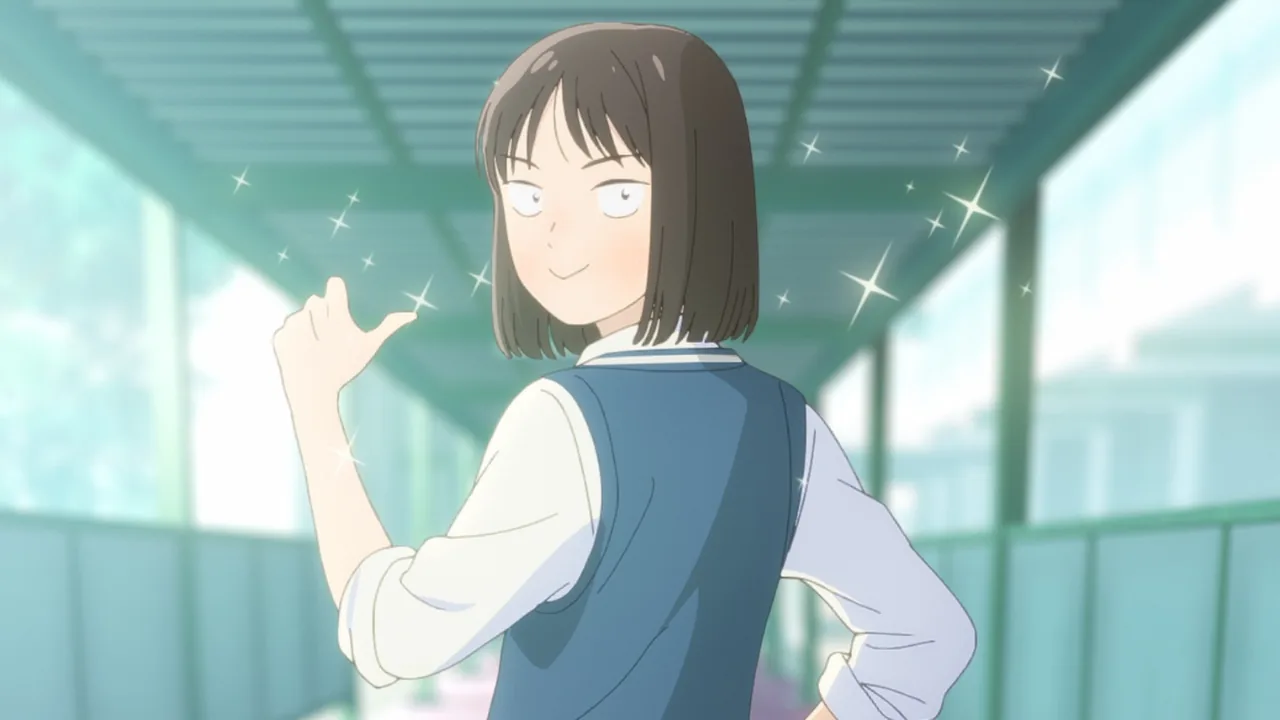
The animation by P.A. Works perfectly complements the anime’s tone. The art style is soft and expressive, capturing the warmth and innocence of the characters. Subtle facial expressions and body language enhance the emotional depth of each scene. The pastel color palette and smooth animation contribute to the series’ gentle, nostalgic atmosphere.
Music plays an essential role in setting the mood. The opening theme, “Mellow” by Keina Suda, reflects the cheerful and reflective nature of the story, while the ending theme, “Hanauta to Mawarimichi” by Rikako Aida, carries a soothing, introspective quality.
The background music subtly enhances the emotional weight of various scenes, from lighthearted school interactions to more introspective moments of self-reflection.
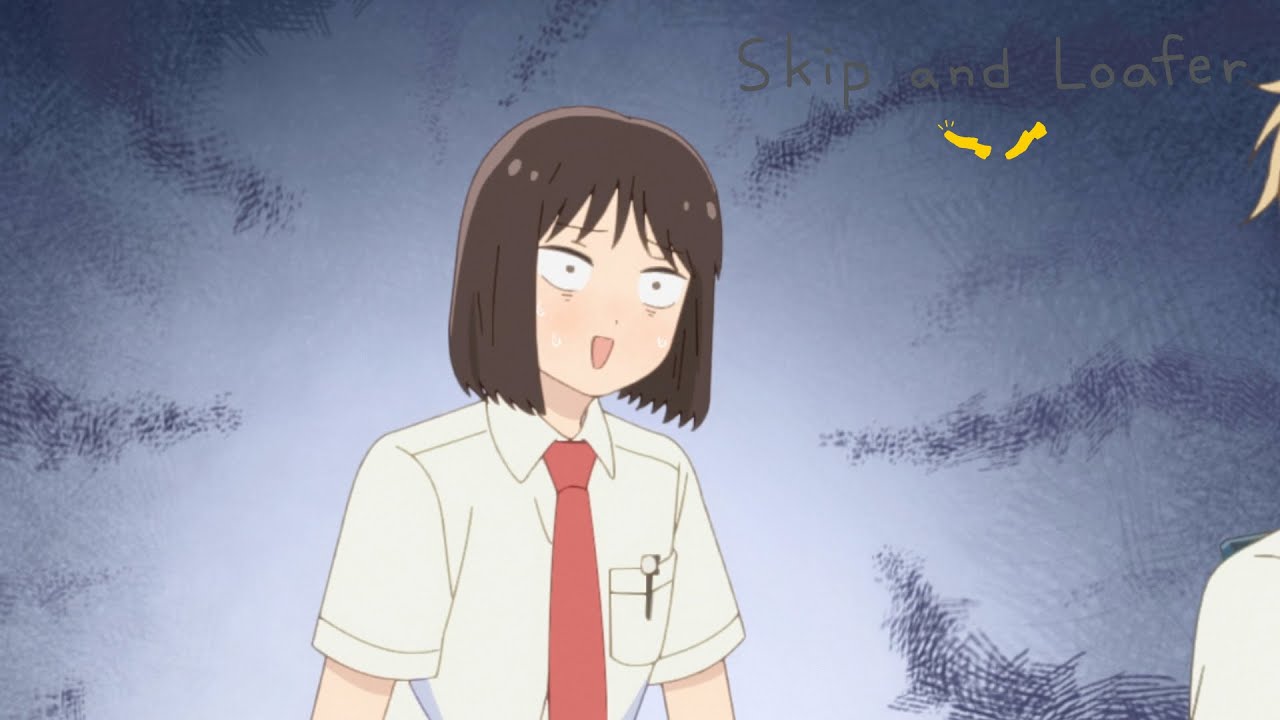
Voice acting is another highlight of the series. Tomoyo Kurosawa’s portrayal of Mitsumi captures her earnestness and charm, while Akinori Egoshi’s performance as Shima conveys both his relaxed nature and hidden depth. The cast delivers natural and heartfelt performances, making the characters feel relatable and endearing.
Rather than focusing on dramatic conflicts, Skip and Loafer excels in depicting the quiet moments of daily life. Whether it’s Mitsumi learning to navigate social situations, Shima confronting his past, or their classmates experiencing personal growth, every episode offers a sincere and touching portrayal of adolescence.
The anime’s pacing allows each character’s development to unfold naturally, making their growth feel earned and authentic.
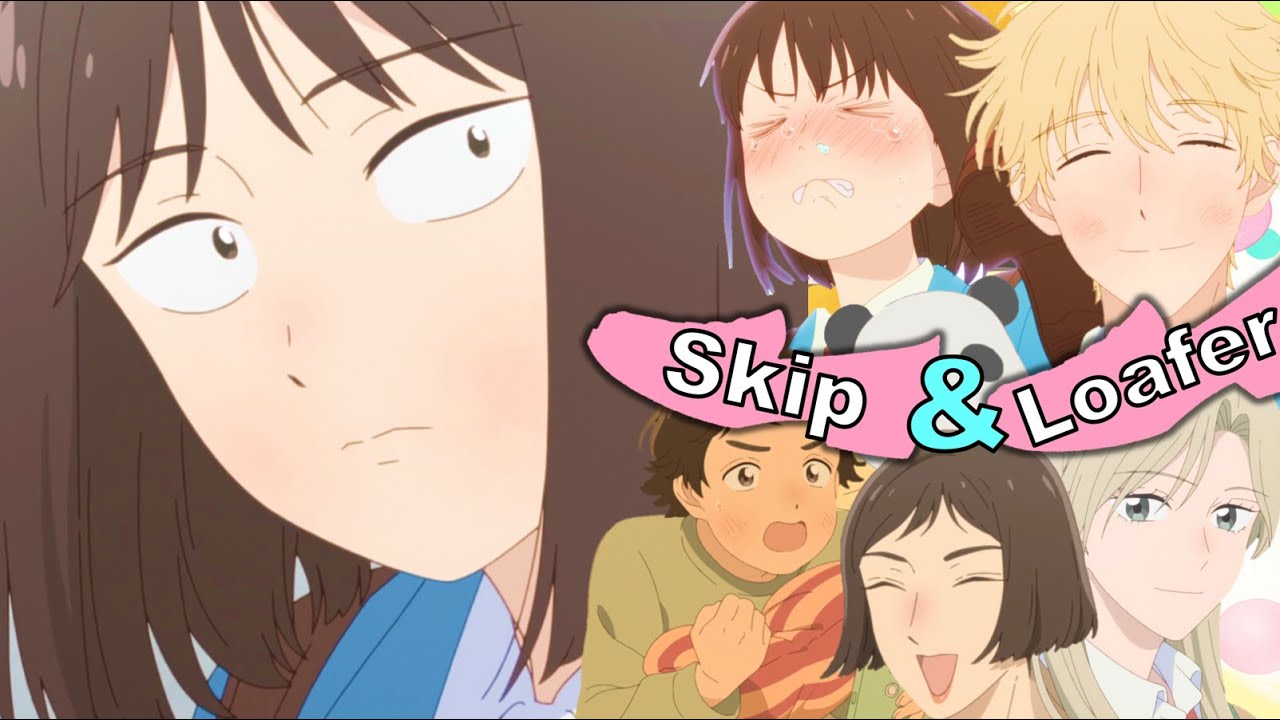
While Skip and Loafer primarily revolves around friendship and personal growth, there are subtle hints of romance, particularly in the dynamic between Mitsumi and Shima. Their interactions are filled with warmth and mutual understanding, leaving room for potential romantic development while maintaining the series’ focus on self-discovery and meaningful connections.
The anime’s ability to balance humor and emotion is one of its strongest aspects. Mitsumi’s straightforward and sometimes awkward nature leads to many lighthearted moments, but the series never shies away from more serious topics like self-doubt, social pressure, and the complexities of growing up. This balance makes the story both entertaining and deeply resonant.
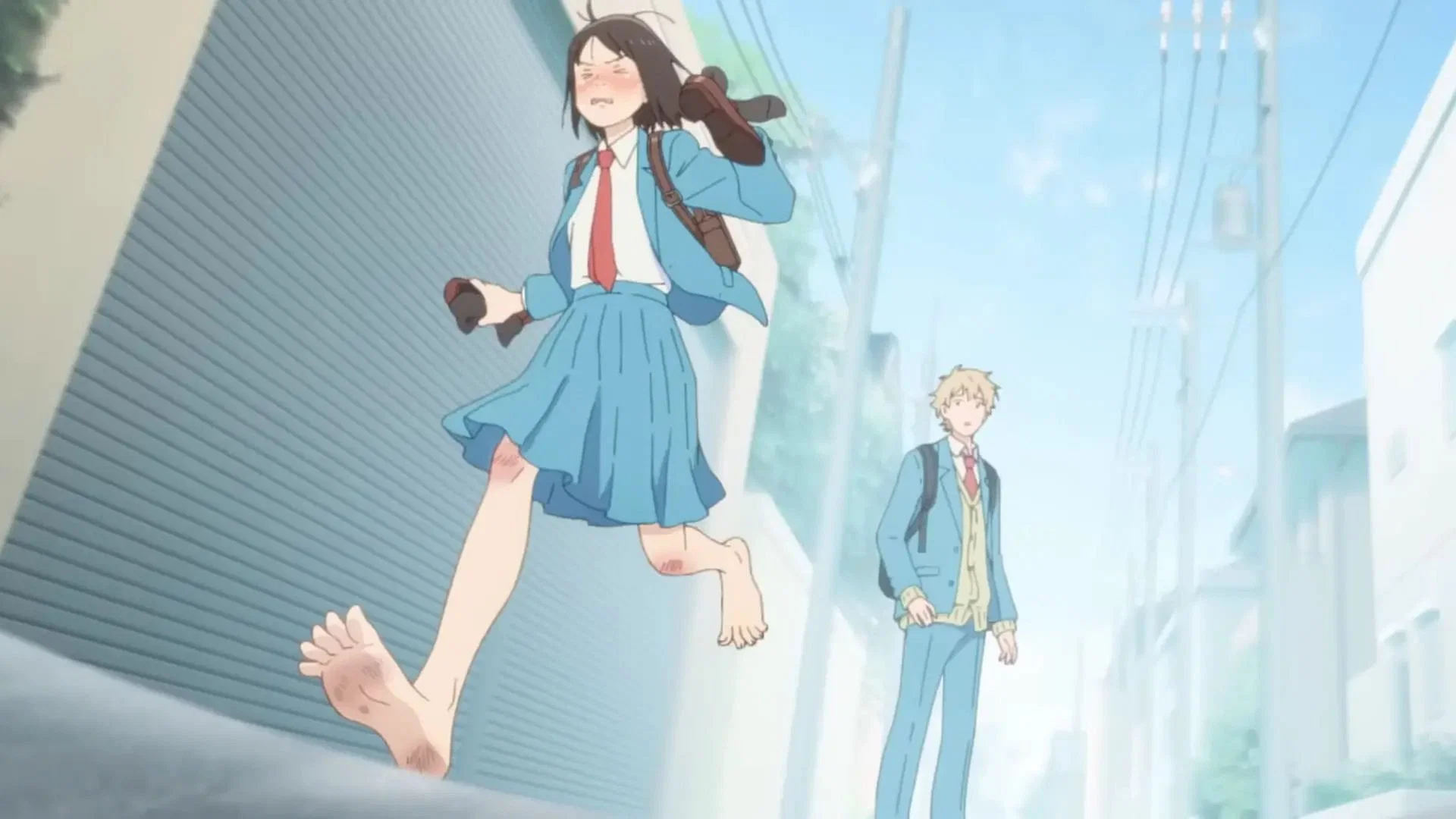
By the end of the series, Mitsumi’s journey is far from over, but she has grown significantly. She becomes more confident in herself, learns to appreciate the differences between her rural hometown and city life, and strengthens her bonds with her friends.
Her experiences serve as a reminder that success is not just about ambition but also about forming genuine connections and embracing life’s unexpected turns.
Skip and Loafer stands out as a beautifully crafted coming-of-age story. With its well-developed characters, heartfelt storytelling, and stunning animation, the series captures the essence of youth in a way that feels both nostalgic and refreshingly honest.
Whether through moments of laughter, personal growth, or quiet reflection, the anime leaves a lasting impression, making it a must-watch for fans of slice-of-life and character-driven narratives.
9. My Love Story With Yamada-kun at Lv999
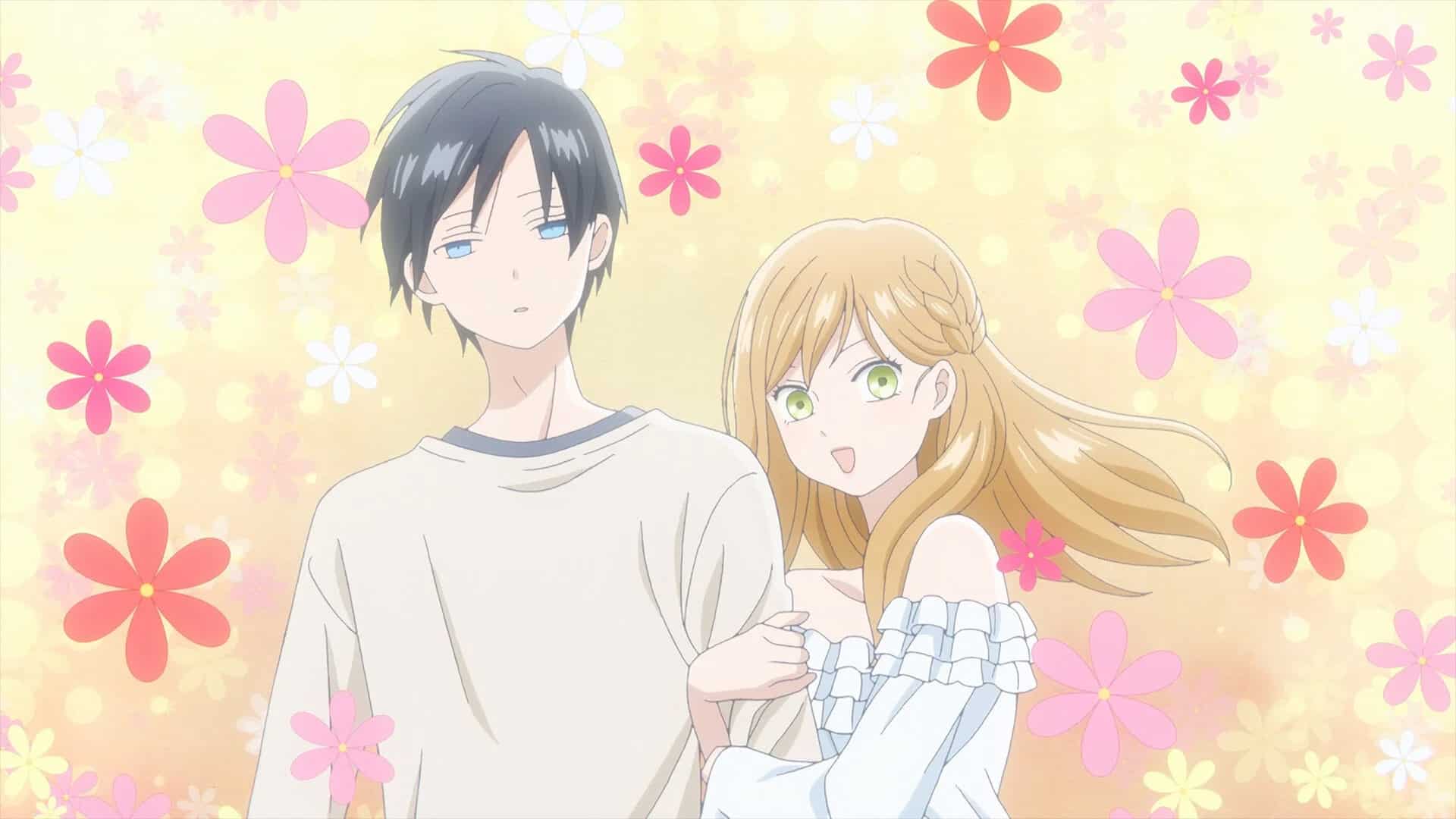
In “My Love Story With Yamada-kun at Lv999,” Akane Kinoshita, heartbroken after a breakup, seeks solace in her old MMO. There, she crosses paths with Yamada, inadvertently involving him in her revenge plot against her ex. Despite their differences, they bond over shared experiences.
As they spend more time together, Akane and Yamada discover each other’s strengths, leading to an inevitable attraction. This romantic comedy, reminiscent of “My Dress-Up Darling,” highlights their contrasting personalities and gaming adventures.
My Love Story with Yamada-kun at Lv999 is a romantic drama anime that aired in 2023, adapted from the manga by Mashiro. Produced by Madhouse, the series blends romance and gaming culture, following the emotional journey of a young woman navigating love and heartbreak in both virtual and real-life spaces.
The story centers on Akane Kinoshita, a college student who is unexpectedly dumped by her boyfriend after he falls for another girl he met in an online game. Heartbroken, she continues playing the MMORPG Forest of Savior to cope with her emotions. Through the game, she meets Akito Yamada, a highly skilled but socially distant player known for his stoic and indifferent personality.
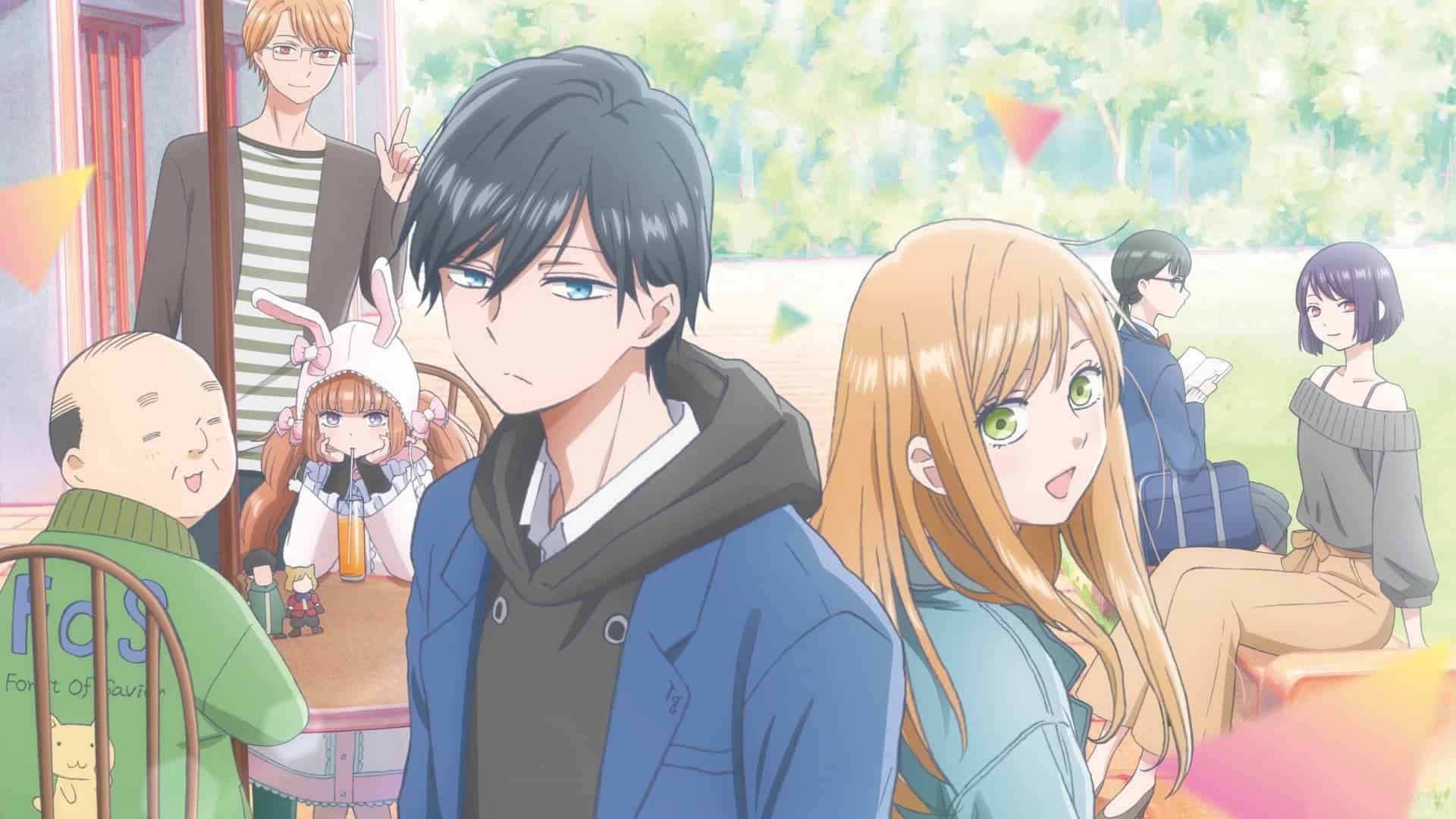
Yamada is a famous gamer who rarely interacts with others outside of gameplay. Unlike Akane, who is expressive and outgoing, Yamada remains emotionally reserved, making their interactions awkward yet intriguing. Their connection deepens when Akane unexpectedly meets him in real life, realizing that the distant yet talented player she admired is also a strikingly handsome and well-known esports competitor.
Despite Yamada’s cold exterior, he begins to show subtle signs of care for Akane. As she struggles with lingering feelings from her past relationship, Yamada’s quiet support gradually becomes a source of comfort. Their evolving relationship is characterized by slow and realistic emotional development, allowing the romance to unfold naturally rather than rushing into dramatic confessions.
The anime explores themes of emotional healing and self-discovery. Akane learns to regain confidence in herself after her breakup, realizing that love isn’t about clinging to the past but embracing new experiences. Yamada, on the other hand, starts to understand emotions and human relationships through his growing bond with Akane, challenging his usual detached nature.
The series effectively balances romance and gaming culture. The MMORPG setting plays a significant role in Akane and Yamada’s connection, acting as both a source of comfort and a metaphor for relationships. The contrast between their virtual personas and real-world interactions adds depth to their development, highlighting the difference between online friendships and in-person bonds.
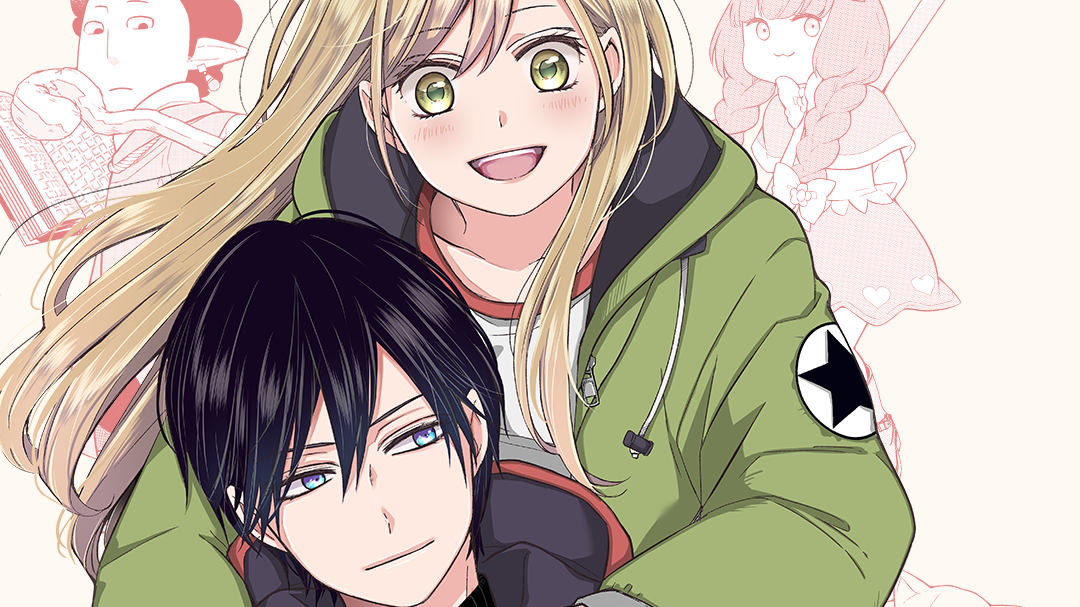
The animation quality, handled by Madhouse, maintains a polished and expressive style. Character expressions, particularly Akane’s emotional reactions, are well-detailed, making her journey feel relatable. The gaming sequences are visually engaging, capturing the immersive experience of online worlds while keeping the focus on the characters’ emotions.
The soundtrack enhances the anime’s atmosphere. The opening theme, “Gradation” by KANA-BOON, sets an upbeat and hopeful tone, while the ending theme, “Trick Art” by Ryujin Kiyoshi, carries a more reflective feel. Background music subtly reinforces the emotional moments, emphasizing both Akane’s heartbreak and her growing feelings for Yamada.
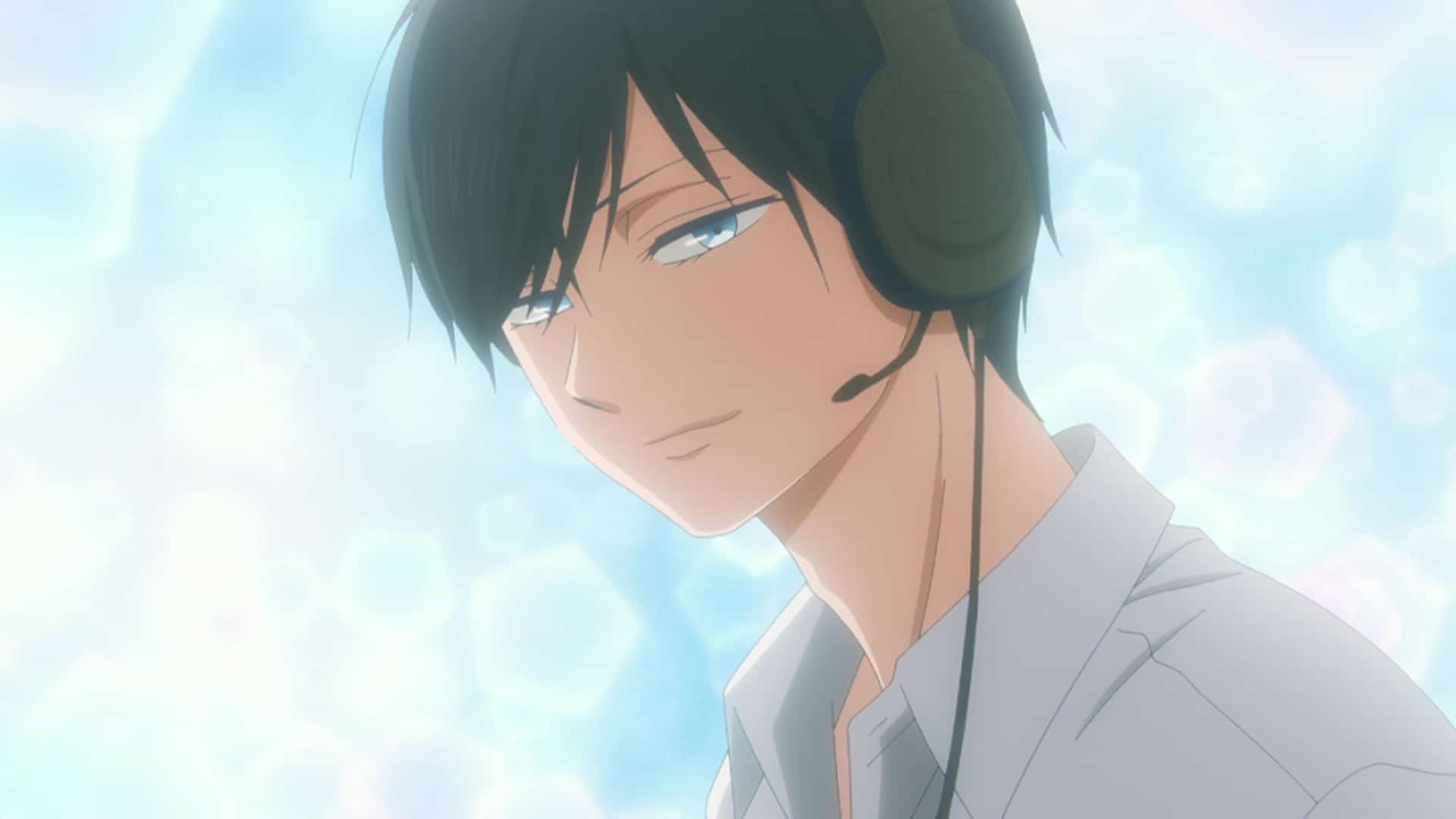
The voice acting performances bring the characters to life. Inori Minase’s portrayal of Akane captures her cheerful yet vulnerable personality, making her a relatable and endearing protagonist. Kōki Uchiyama’s performance as Yamada adds depth to his reserved demeanor, conveying emotions through subtle tone shifts rather than dramatic expressions. Their chemistry makes the gradual romantic tension between them feel authentic.
A strong aspect of the series is its realistic approach to relationships. Instead of idealizing romance, My Love Story with Yamada-kun at Lv999 presents love as something unpredictable and emotionally complex. Akane’s struggles with self-doubt and Yamada’s slow understanding of affection create a dynamic that feels both natural and compelling.

The anime also highlights the contrast between idealized online relationships and real-world emotions. While the game serves as a bridge between characters, true connection comes from their face-to-face interactions. This theme resonates with modern audiences, especially those familiar with online friendships and the emotional depth they can hold.
One potential drawback is the pacing of Yamada’s character development. While his reserved nature adds realism to the story, some viewers might find his emotional progress slower than expected. However, this deliberate pacing ultimately strengthens the authenticity of the romance, making their eventual connection feel more meaningful.
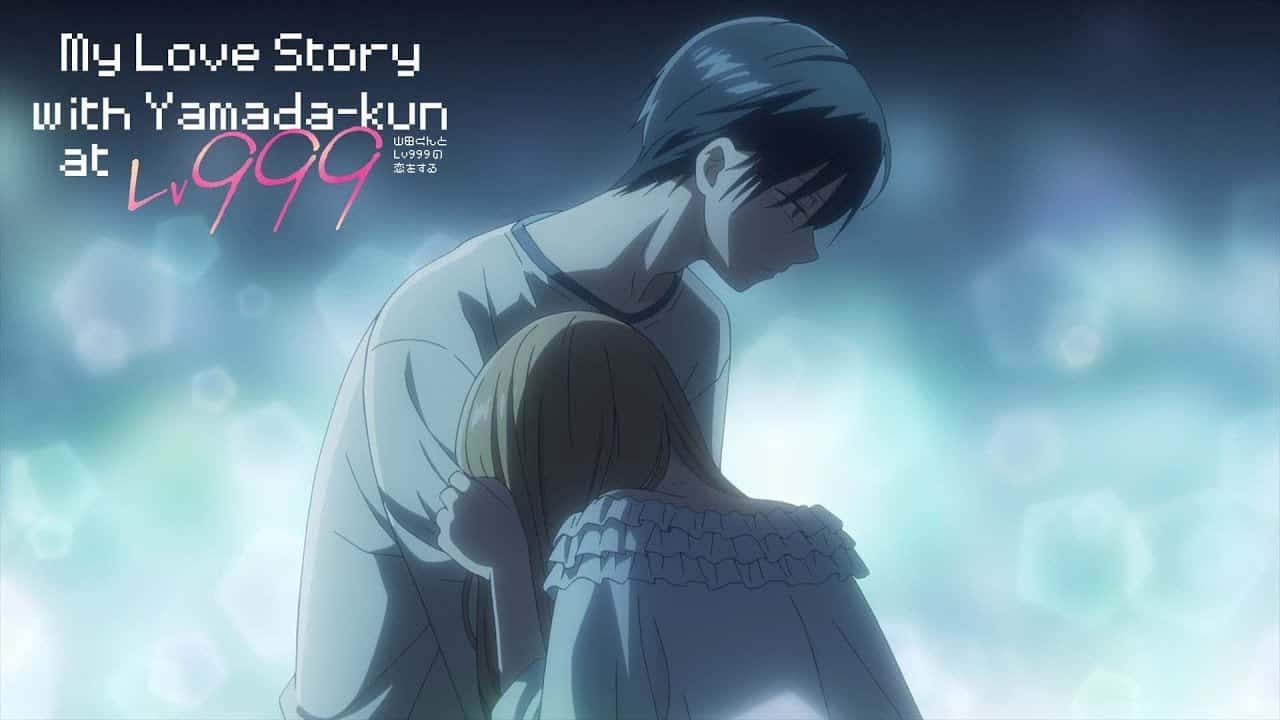
My Love Story with Yamada-kun at Lv999 offers a fresh perspective on romance by blending emotional depth with gaming culture. Akane’s journey of healing and self-discovery, paired with Yamada’s gradual emotional awakening, creates an engaging and heartfelt narrative.
For those looking for a romance anime that avoids clichés and embraces a realistic depiction of love and personal growth, this series provides a satisfying and emotionally resonant experience. While it doesn’t rely on grand romantic gestures, its strength lies in its subtle moments of connection, making it a compelling watch for fans of slow-burn romance stories.
8. More Than a Married Couple, But Not Lovers
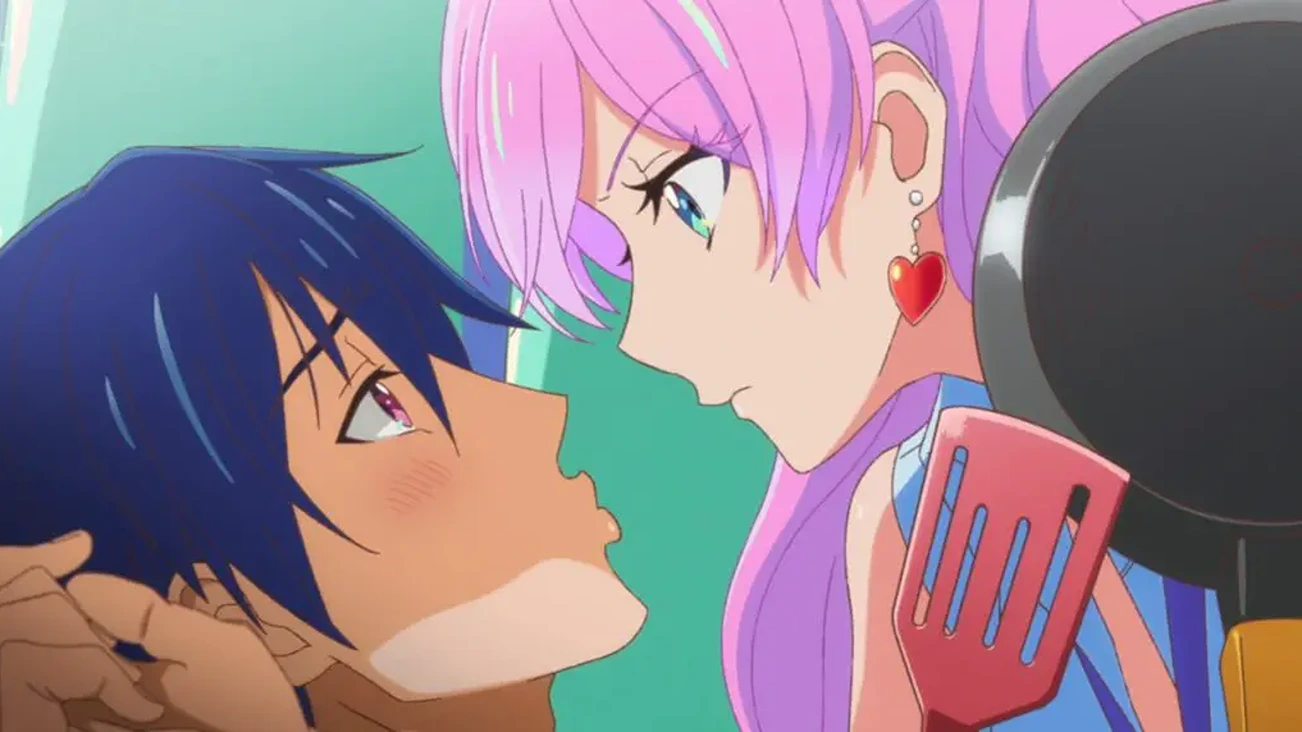
“More Than a Married Couple, But Not Lovers” presents an intriguing storyline where Jiro and Akari find themselves paired up for a school project.
Despite harboring feelings for others, they must collaborate to switch partners and pursue their crushes, Shiori and Minami.
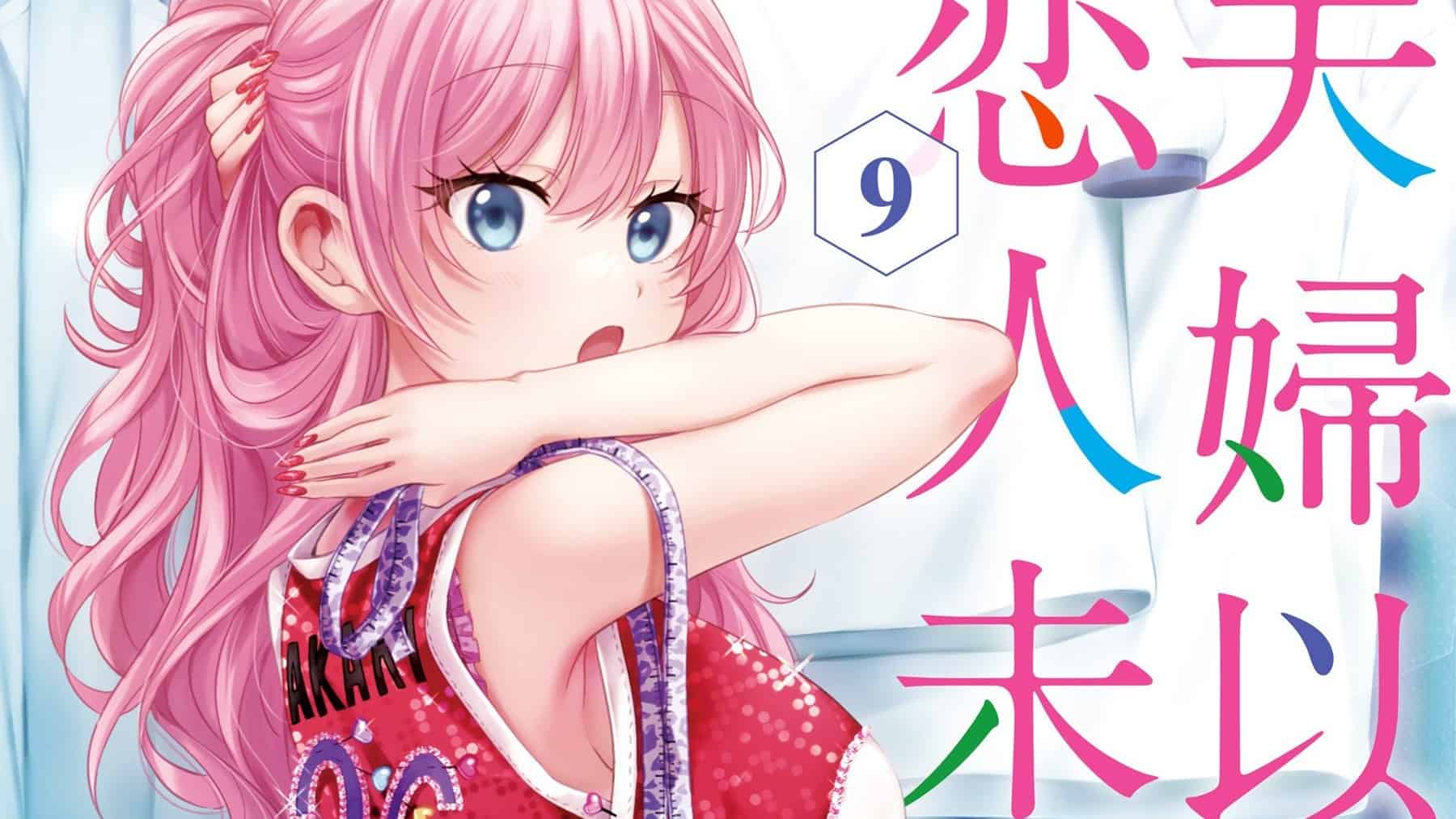
As they work together, Jiro and Akari’s relationship deepens, revealing unexpected connections and emotions. Despite initial reluctance, Akari’s feelings for Jiro begin to shift, complicating the dynamics of their love triangle.
The series explores themes of friendship, romance, and self-discovery as Jiro and Akari navigate the complexities of young love. With its engaging plot and relatable characters, “More Than a Married Couple, But Not Lovers” offers a blend of comedy and romance that keeps viewers hooked until the end.
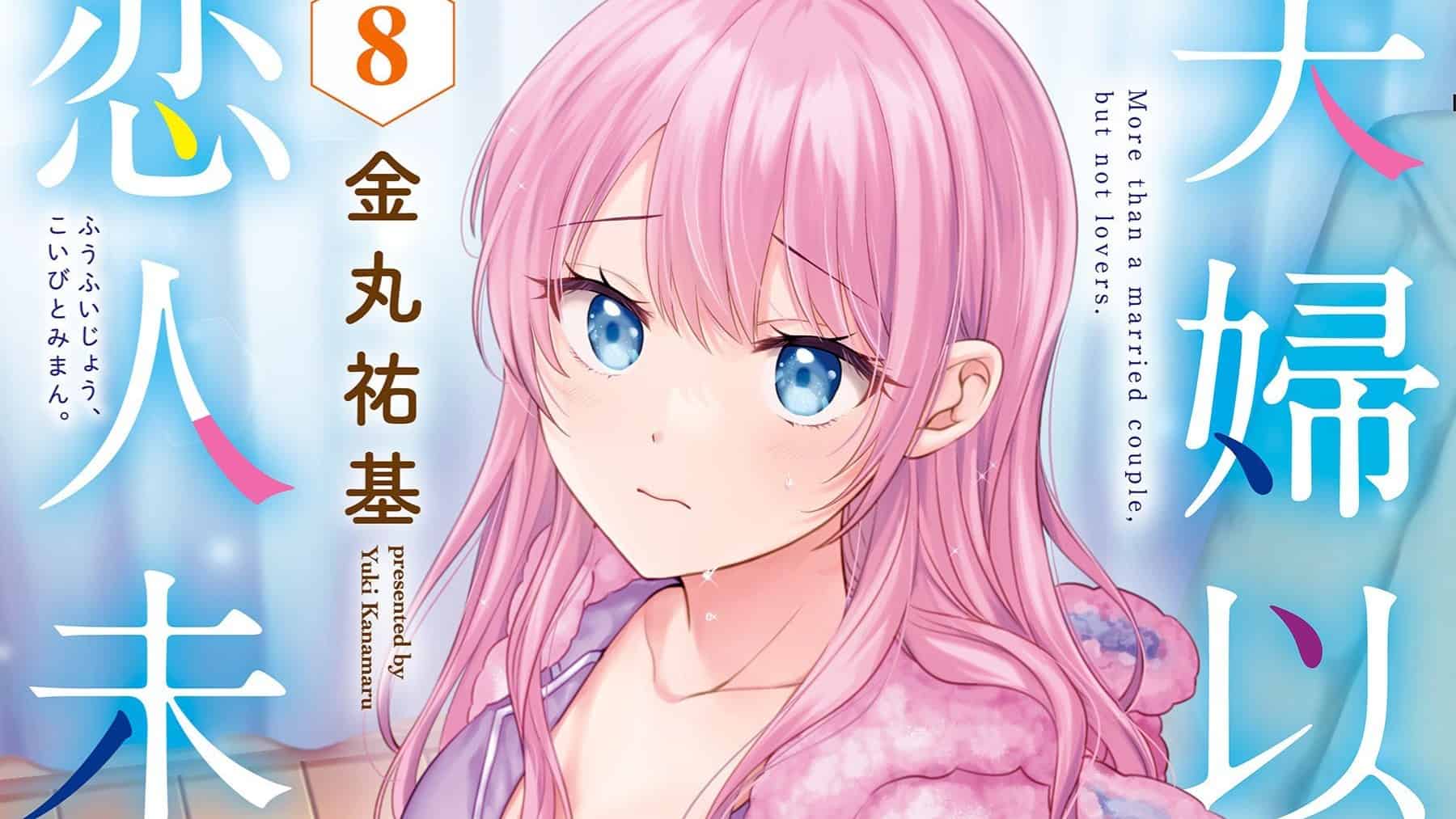
More Than a Married Couple, But Not Lovers is a romantic comedy anime that aired in 2022, adapted from the manga written by Yūki Kanamaru. Produced by Studio Mother, the series presents an unconventional approach to high school romance by introducing a unique “marriage practical” system where students are paired up as pretend spouses to develop relationship skills.
The story follows Jirō Yakuin, a shy and somewhat awkward high school student who secretly has feelings for his childhood friend, Shiori Sakurazaka.
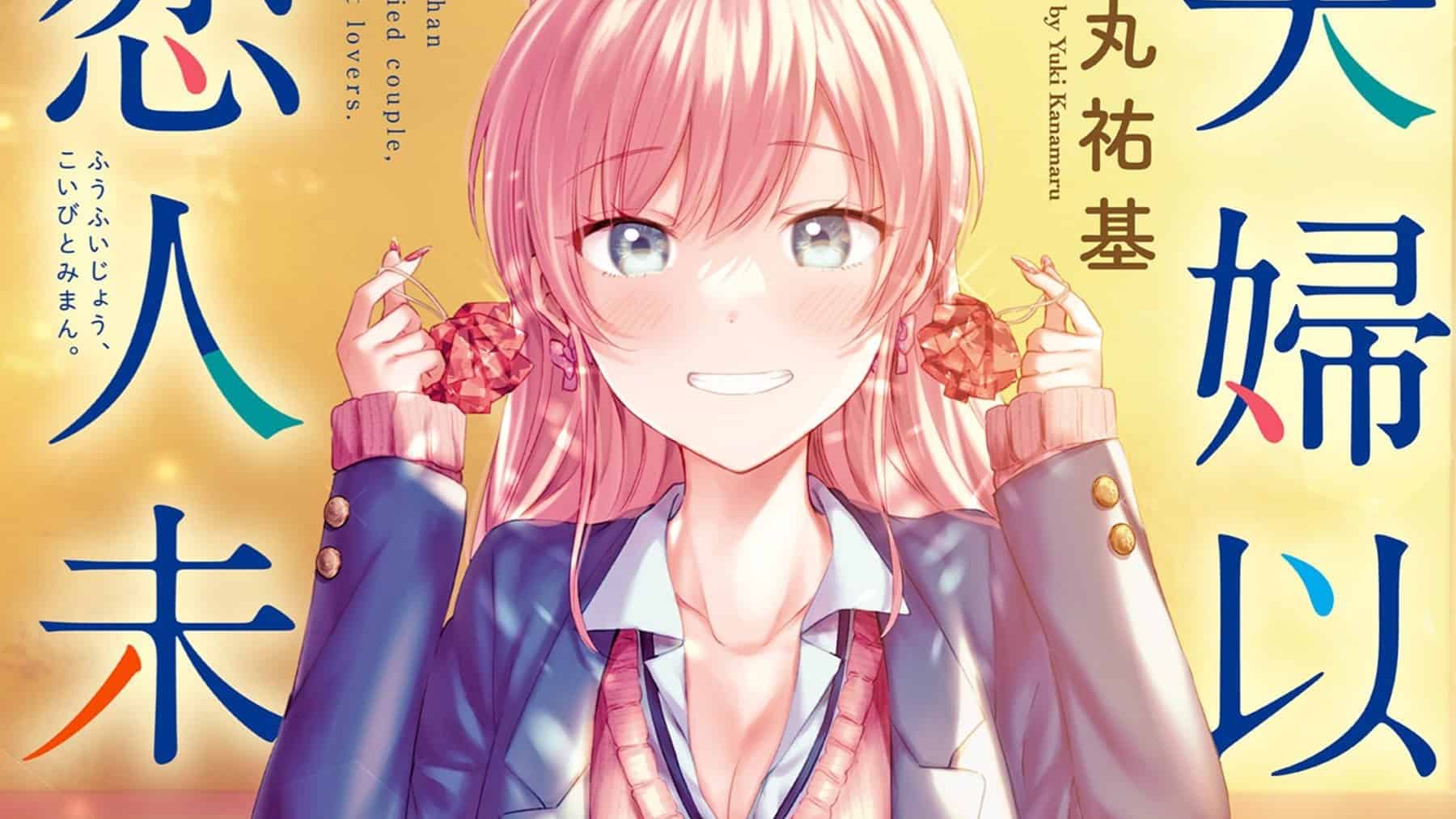
However, during the school’s marriage training program, he is unexpectedly paired with Akari Watanabe, a confident and popular girl who has a crush on Minami Tenjin, one of the most admired boys in their class. This mismatch forces them to work together despite their initial reluctance.
Jirō and Akari struggle to get along at first due to their differing personalities. Jirō is reserved and hesitant, while Akari is outgoing and assertive. However, the program has a ranking system that rewards couples who demonstrate strong romantic chemistry. Determined to be reassigned to their respective crushes, Jirō and Akari agree to act like a real couple to earn enough points.

As they spend more time together, their relationship takes unexpected turns. Their playful bickering gradually shifts into moments of genuine connection, leading to confusion about their true feelings. The contrast between forced affection and real emotions creates a compelling dynamic, making each interaction between Jirō and Akari unpredictable and engaging.
The supporting cast adds complexity to the romantic tensions. Shiori, Jirō’s childhood friend, harbors feelings for him but struggles to express them openly. Meanwhile, Minami remains an idealized figure in Akari’s eyes, though his real personality is less explored. These secondary relationships create a love quadrangle that keeps the story emotionally charged.

The anime’s visual style enhances its romantic and comedic moments. Studio Mother employs bright and colorful animation, effectively capturing Akari’s energetic personality and Jirō’s more subdued demeanor. Character expressions are well-executed, adding depth to awkward, flustered, or heartwarming scenes. The background designs, featuring cozy apartment interiors and warm lighting, contribute to the intimate atmosphere.
The soundtrack complements the emotional beats of the series. The opening theme, “TRUE FOOL LOVE” by Liyuu, sets an upbeat and playful tone, while the ending theme, “Stuck on you” by Nowlu, carries a more sentimental feel. Background music subtly enhances key moments without overpowering the dialogue, reinforcing the emotional progression of the characters.
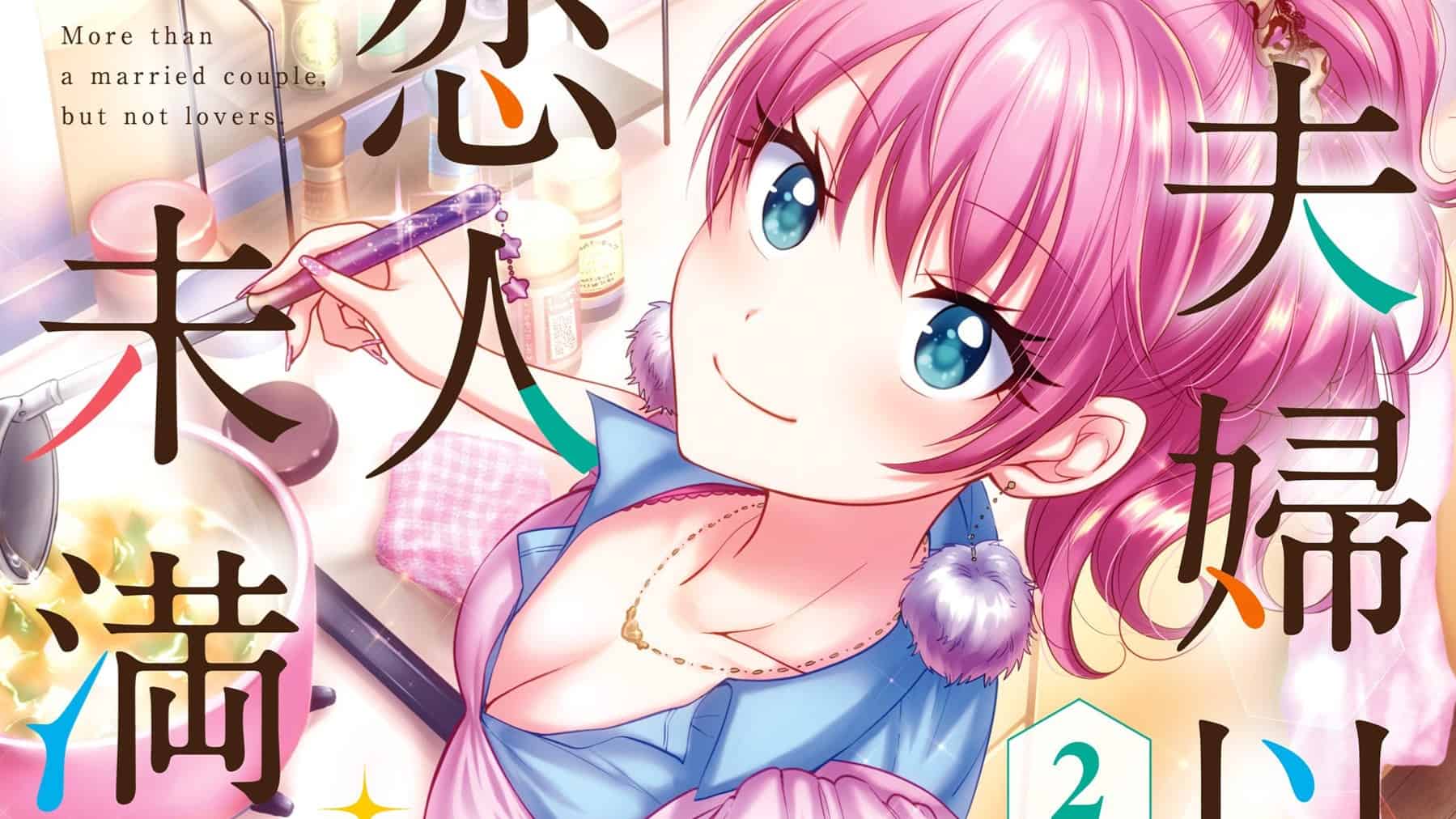
Voice performances bring out the personalities of the cast. Seiichiro Yamashita’s portrayal of Jirō perfectly captures his awkward yet endearing nature, while Saori Ōnishi delivers Akari’s mix of confidence and vulnerability with great balance. Saki Miyashita as Shiori and Toshiki Masuda as Minami provide solid performances, adding depth to their respective roles.
Themes of self-discovery, emotional honesty, and personal growth are central to the series. Jirō learns to step out of his comfort zone, gradually realizing that relationships are not about idealized fantasies but about real connections. Akari, initially focused on appearances and popularity, discovers that true affection goes beyond surface-level attraction. Their evolving bond highlights the unpredictability of love and the importance of understanding one’s feelings.
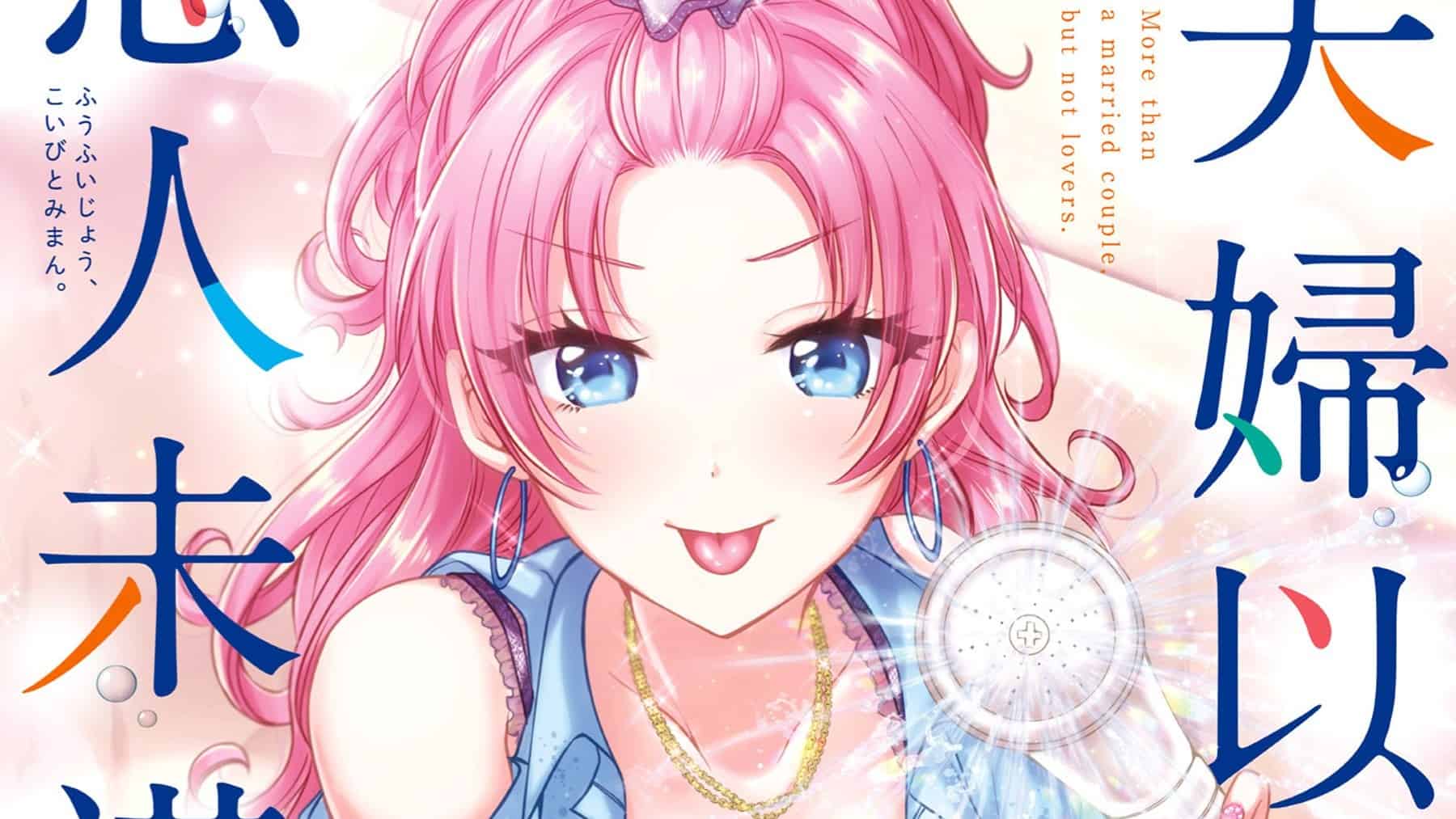
The anime skillfully balances humor and romance. Comedic misunderstandings and playful banter keep the tone light, while intimate moments between Jirō and Akari add emotional weight. The mix of casual interactions and genuine confessions ensures that the romantic tension remains engaging without becoming overly dramatic.
One of the main criticisms of More Than a Married Couple, But Not Lovers is its unresolved conclusion. While the anime builds strong romantic tension, it leaves many questions unanswered, making it feel like a setup for a potential second season. Viewers hoping for a definitive resolution to the love triangle may find the ending somewhat frustrating.
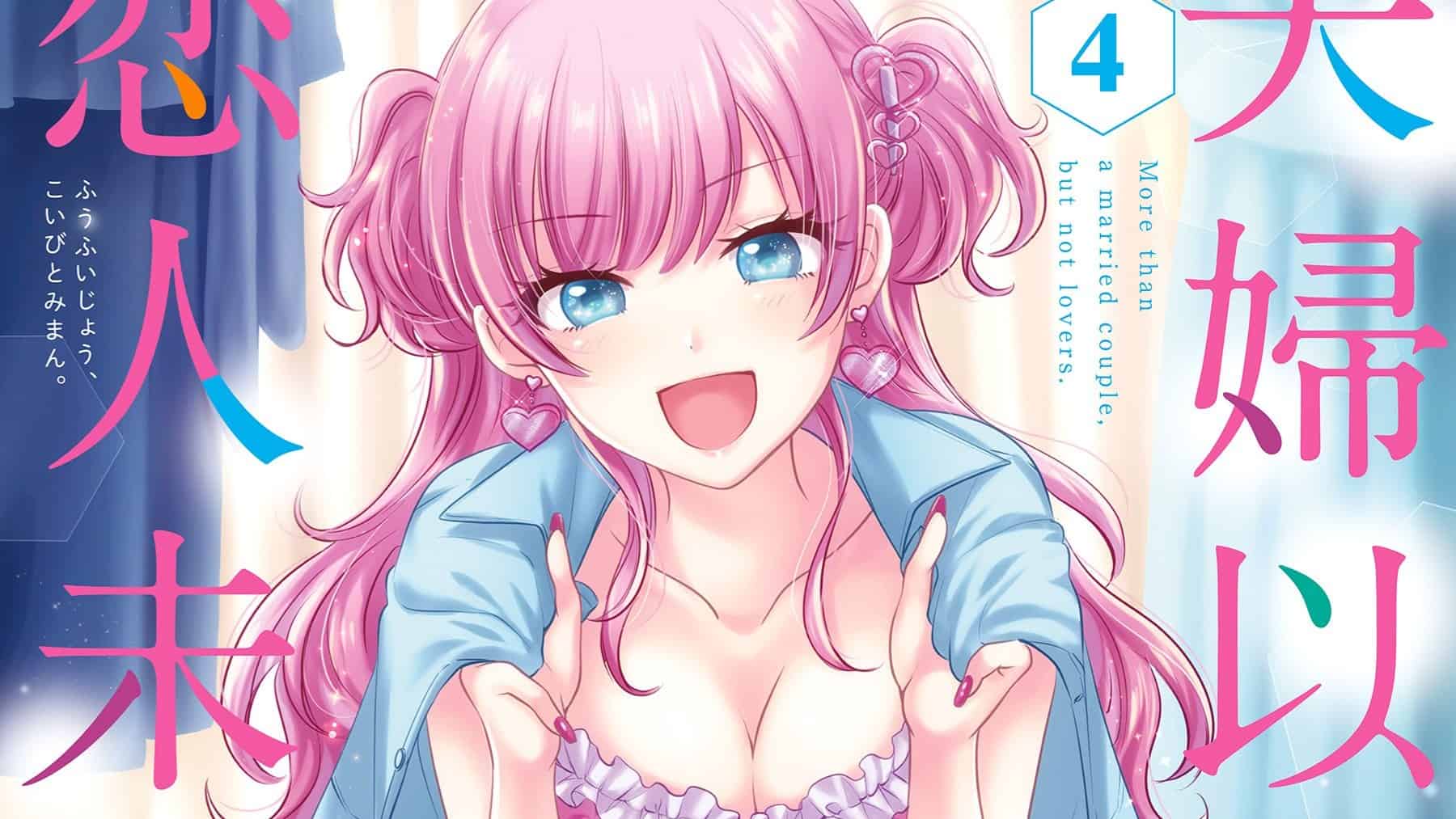
Despite this, the series succeeds in delivering a refreshing take on high school romance. The unconventional “marriage training” premise adds a unique twist to familiar romantic tropes, allowing for natural and gradual character development. Jirō and Akari’s evolving dynamic remains the heart of the story, making their journey compelling to watch.
For fans of romance anime that blend humor, emotional depth, and unexpected chemistry, More Than a Married Couple, But Not Lovers is a worthwhile experience. While it doesn’t provide all the answers, its engaging characters and heartfelt moments make it an enjoyable and memorable watch.
7. Horimiya
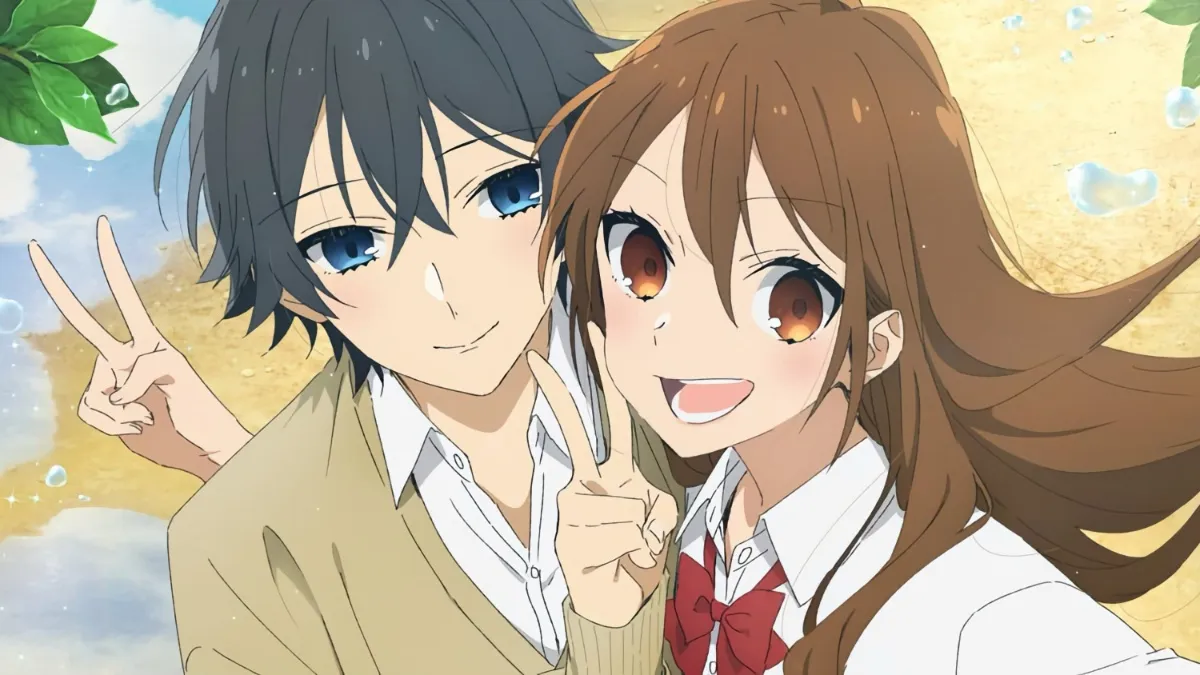
“Horimiya” revolves around the unlikely friendship between Kyoko Hori and Izumi Miyamura, who are polar opposites in school. While Kyoko is popular and outgoing, Izumi is reserved and misunderstood due to his appearance. Despite their contrasting personalities, they discover unexpected similarities and develop a deep connection.
Similar to “My Dress-Up Darling,” “Horimiya” explores the theme of opposites attracting and reveals the hidden depths of its characters.

As Kyoko and Izumi’s relationship evolves from friendship to romance, viewers are drawn into their heartfelt journey of self-discovery and acceptance.
With its compelling characters and genuine romance, “Horimiya” captures the essence of finding love in unexpected places and resonates with audiences seeking a heartwarming story of connection and growth.
Horimiya is a romantic comedy anime that aired in 2021, adapted from the manga written by HERO and illustrated by Daisuke Hagiwara. Animated by CloverWorks, the series presents a heartwarming story of love, friendship, and personal growth. Unlike typical high school romances, Horimiya explores deeper emotional themes while maintaining a lighthearted and engaging tone.
Kyoko Hori is a popular and responsible high school girl admired by her classmates for her cheerful personality. However, outside of school, she takes care of her younger brother and manages household responsibilities due to her parents’ busy schedules. This side of her life is something she keeps hidden from her peers, fearing it might change how they see her.
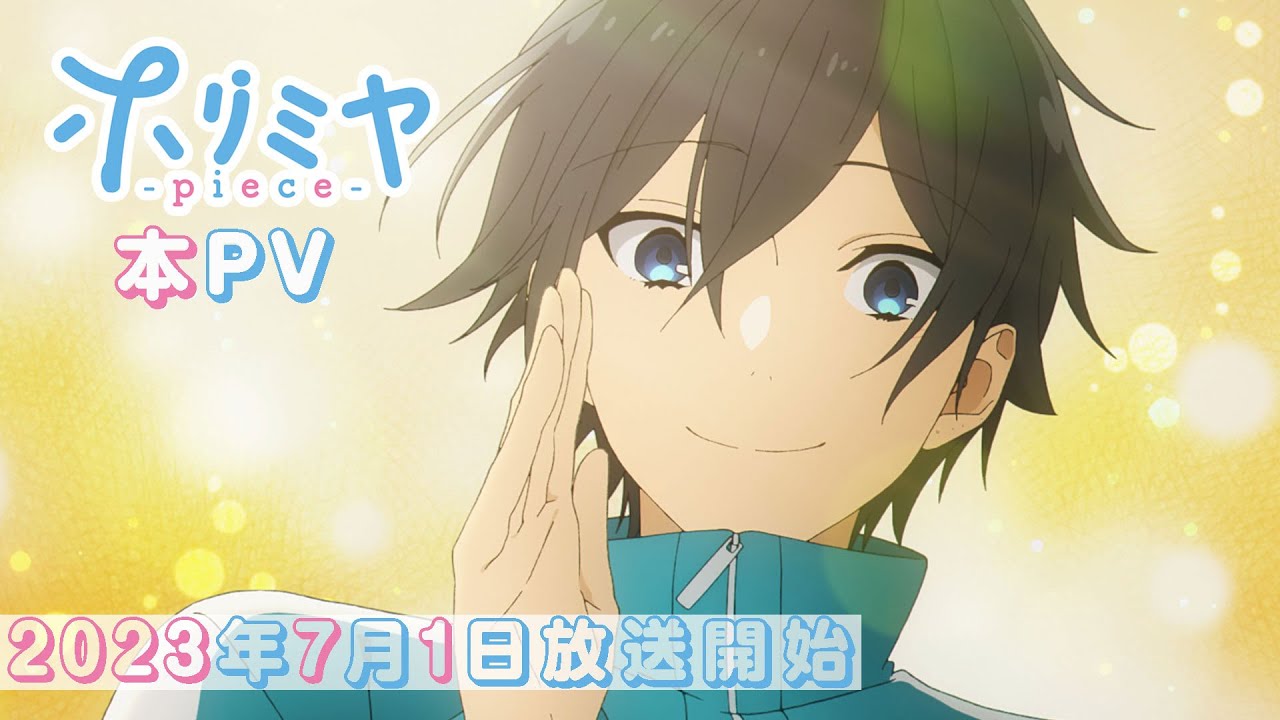
Izumi Miyamura, on the other hand, is a quiet and seemingly introverted classmate with an unnoticed presence at school. But outside the classroom, he is completely different—sporting piercings and tattoos that contradict his shy, bookish image. When Hori and Miyamura accidentally discover each other’s hidden sides, an unexpected friendship begins to form between them.
Their bond quickly evolves into something deeper as they become comfortable showing their true selves to one another. Hori finds comfort in Miyamura’s presence, while Miyamura, who has always struggled with loneliness and low self-esteem, starts to open up and gain confidence. Their relationship is not built on dramatic misunderstandings but on genuine communication and emotional support.
One of Horimiya’s strengths is its portrayal of realistic and well-developed relationships. Unlike many romance anime that focus on prolonged misunderstandings, Hori and Miyamura confess their feelings early on, allowing the story to explore their relationship as an actual couple. Their interactions are filled with playful teasing, heartfelt moments, and natural chemistry, making their love story feel authentic and refreshing.
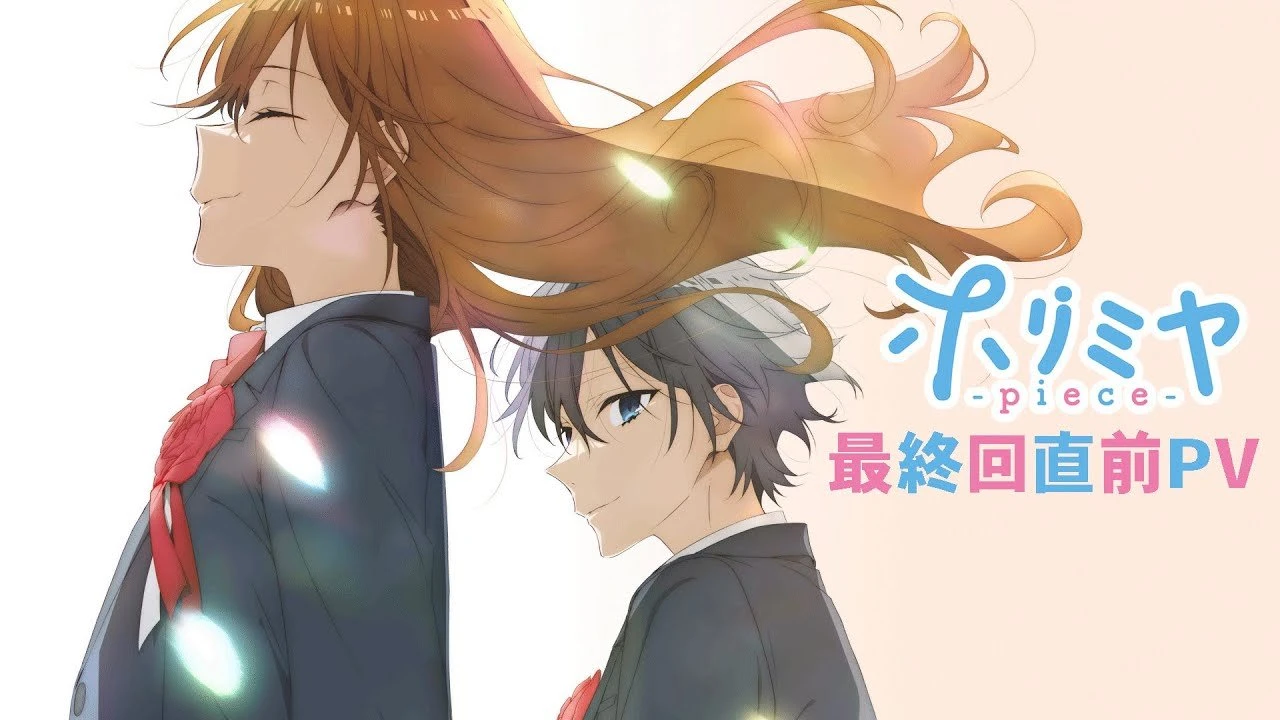
Beyond the main couple, Horimiya introduces a diverse cast of characters, each with their own struggles and growth. Toru Ishikawa, initially interested in Hori, becomes one of Miyamura’s closest friends and provides comedic and emotional support.
Yuki Yoshikawa, a lively and sociable girl, grapples with her own insecurities about relationships. Kakeru Sengoku, the student council president, has a complex personality hidden beneath his serious demeanor, while Remi Ayasaki, his girlfriend, balances his personality with her bright and carefree attitude.
The series beautifully captures the ups and downs of teenage friendships, romantic developments, and the uncertainties of growing up. Each character experiences their own emotional journey, making the story feel well-rounded and deeply relatable. Whether it’s the struggle to express feelings, the fear of rejection, or the joy of being understood, Horimiya portrays these emotions with sincerity and warmth.
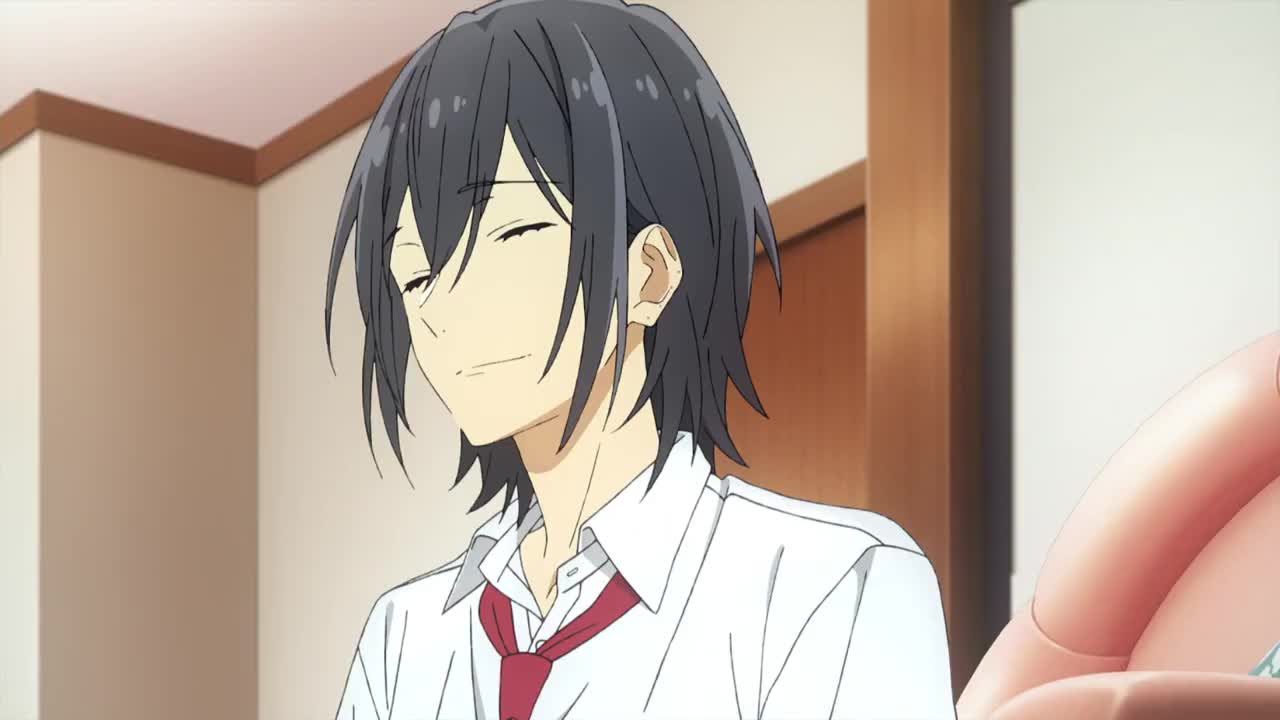
Visually, Horimiya benefits from CloverWorks’ clean and expressive animation. The character designs stay faithful to the manga’s style, with detailed facial expressions that enhance emotional moments. Soft lighting and warm color palettes create a cozy atmosphere that matches the story’s intimate tone. The fluid animation also adds to the comedic timing and dynamic character interactions.
The soundtrack complements the anime’s emotional beats perfectly. The opening theme, “Iro Kousui” by Yoh Kamiyama, is soft and melancholic, reflecting the emotional layers of the story.
The ending theme, “Yakusoku” by Friends, carries a more nostalgic and heartfelt tone, reinforcing the themes of connection and growth. The background music effectively enhances both comedic and touching moments without overwhelming the dialogue.
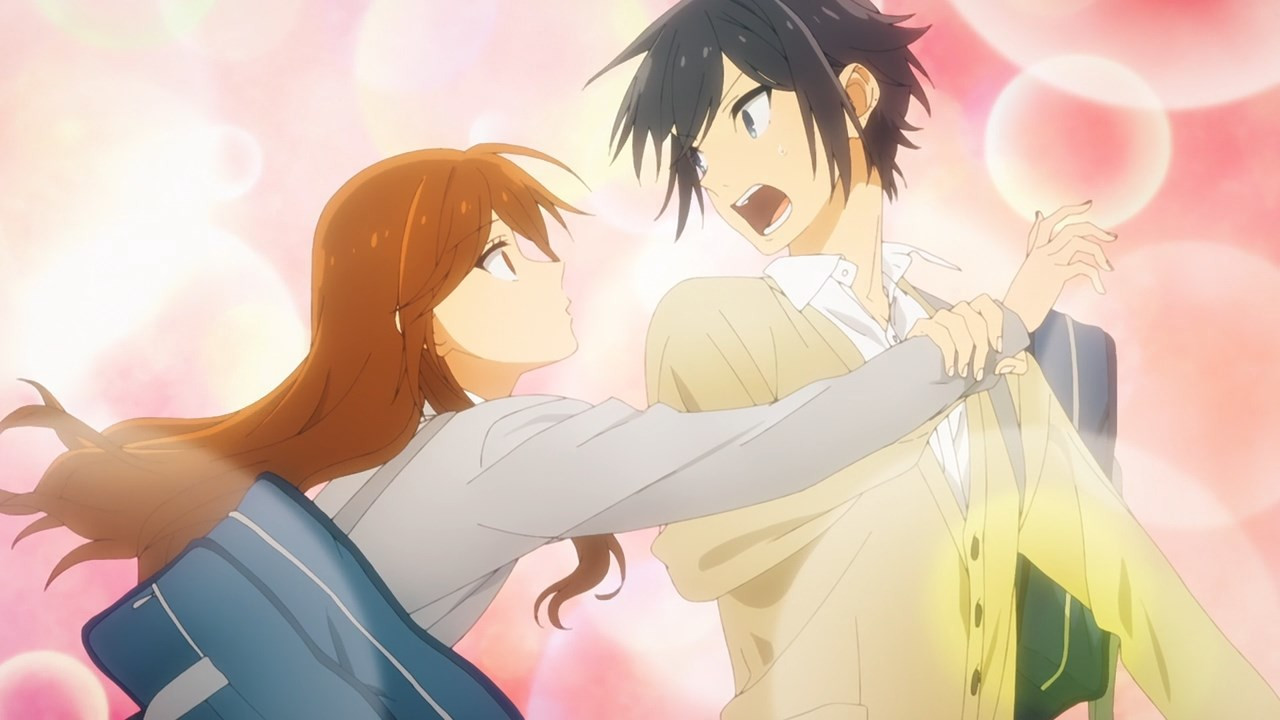
Voice acting plays a crucial role in bringing the characters to life. Haruka Tomatsu as Hori and Kouki Uchiyama as Miyamura deliver standout performances, capturing their characters’ personalities with nuance.
Tomatsu conveys Hori’s mix of warmth, strength, and occasional possessiveness, while Uchiyama brings depth to Miyamura’s shy yet affectionate nature. The supporting cast also contributes to the lively and emotional atmosphere of the series.
The anime explores various themes, including self-acceptance, identity, and the importance of genuine connections. Miyamura’s transformation throughout the series is particularly striking. Initially, he struggles with self-doubt and isolation due to past bullying, but through his relationship with Hori and newfound friendships, he gains confidence and a sense of belonging.
Similarly, Hori learns to let her guard down and embrace vulnerability, realizing she doesn’t have to handle everything alone.

A key aspect that sets Horimiya apart is its ability to balance romance, humor, and emotional depth. The comedic moments, often driven by playful banter and exaggerated reactions, keep the story lighthearted without overshadowing the deeper emotional beats.
Scenes of vulnerability and heartfelt confessions feel natural rather than overly dramatic, making the characters’ growth even more meaningful.
One potential criticism of the anime is its pacing. As a single-season adaptation, Horimiya condenses a large portion of the manga’s content, resulting in some skipped character arcs and rushed developments.
While the core story of Hori and Miyamura remains intact, certain subplots receive less attention compared to their more gradual development in the manga. Viewers who want a deeper look at the supporting characters may find the manga to be a more comprehensive experience.

Despite these limitations, Horimiya succeeds in delivering an emotionally fulfilling and heartwarming love story. It avoids unnecessary drama and embraces a refreshing approach to romance, where communication and mutual understanding take precedence over forced conflicts.
The series leaves a lasting impression by celebrating the beauty of everyday moments, from simple conversations to small gestures of affection.
For those seeking a romance anime with genuine character development, Horimiya is a standout choice. Its blend of humor, emotional sincerity, and well-crafted relationships make it a memorable and enjoyable experience. While the anime may leave some wishing for more, its heartfelt storytelling and lovable characters ensure that it remains a beloved series in the romance genre.
6. Smile Down the Runway
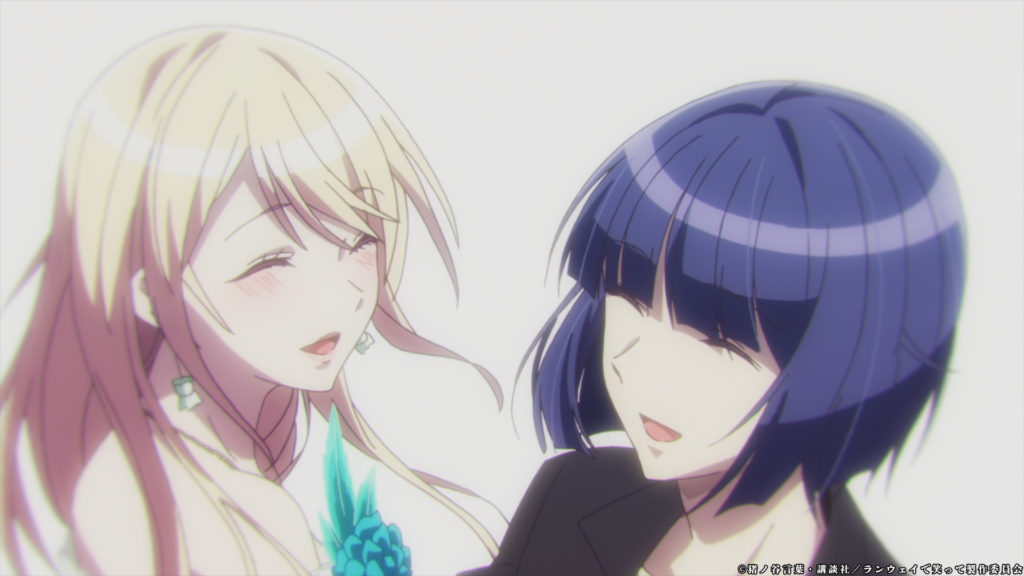
Smile Down the Runway follows the journey of Chiyuki Fujito and Ikuto Tsumura as they pursue their dreams in the fashion world.
Chiyuki dreams of becoming a model despite her petite stature, while Ikuto aspires to be a fashion designer but lacks the necessary resources. Together, they defy the norms of the industry and support each other in their quest for success.
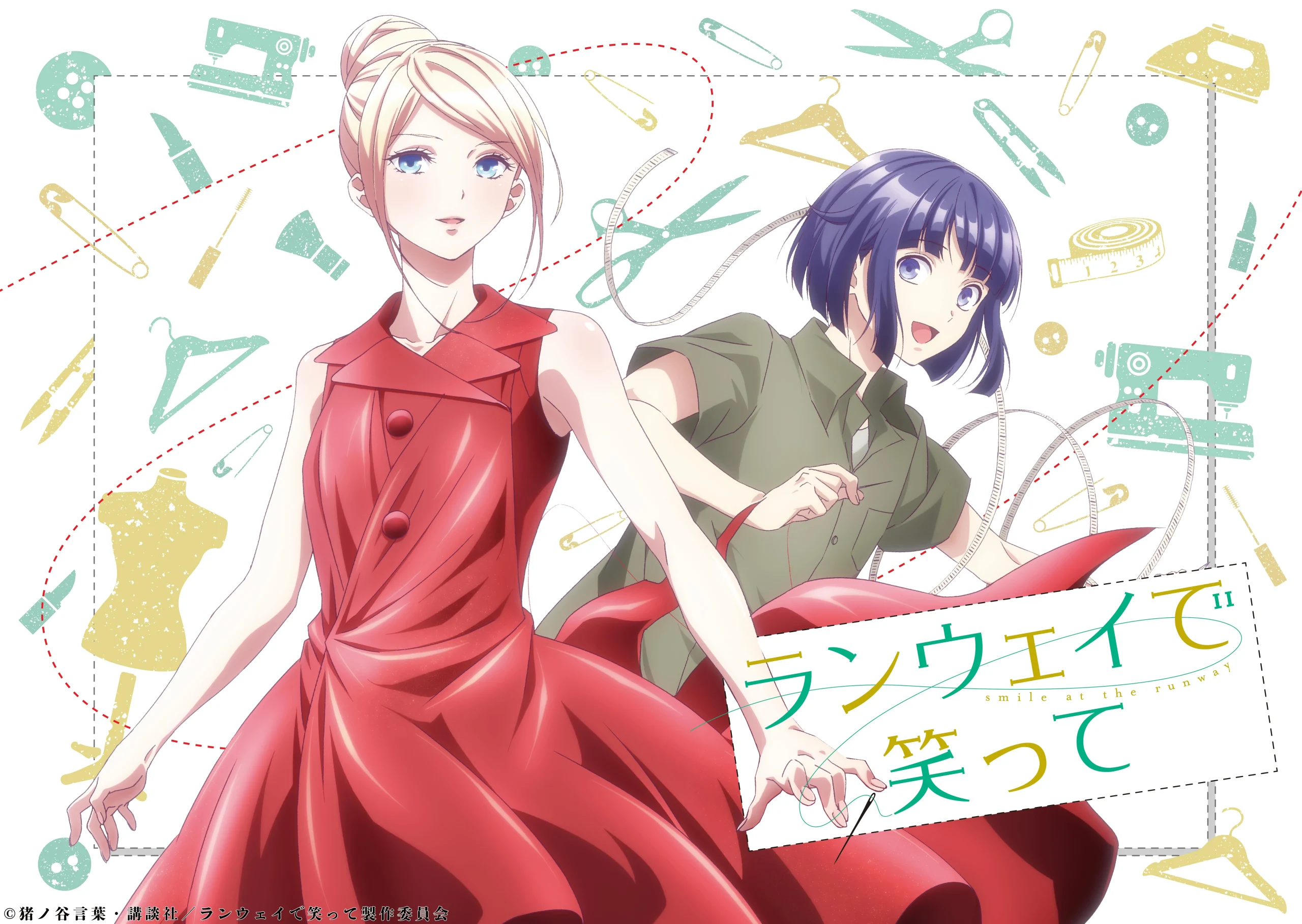
Unlike “My Dress-Up Darling,” which focuses on cosplay, “Smile Down the Runway” explores the world of fashion. As Chiyuki and Ikuto collaborate to overcome obstacles and challenge industry standards, their bond grows stronger, eventually blossoming into a romantic connection.
Through their determination and resilience, Chiyuki and Ikuto inspire viewers with their pursuit of excellence and their unwavering belief in themselves and each other. “Smile Down the Runway” offers a refreshing take on the fashion industry and the power of chasing one’s dreams, making it a compelling watch for fans of romance and ambition alike.
5. Wotakoi: Love Is Hard for Otaku
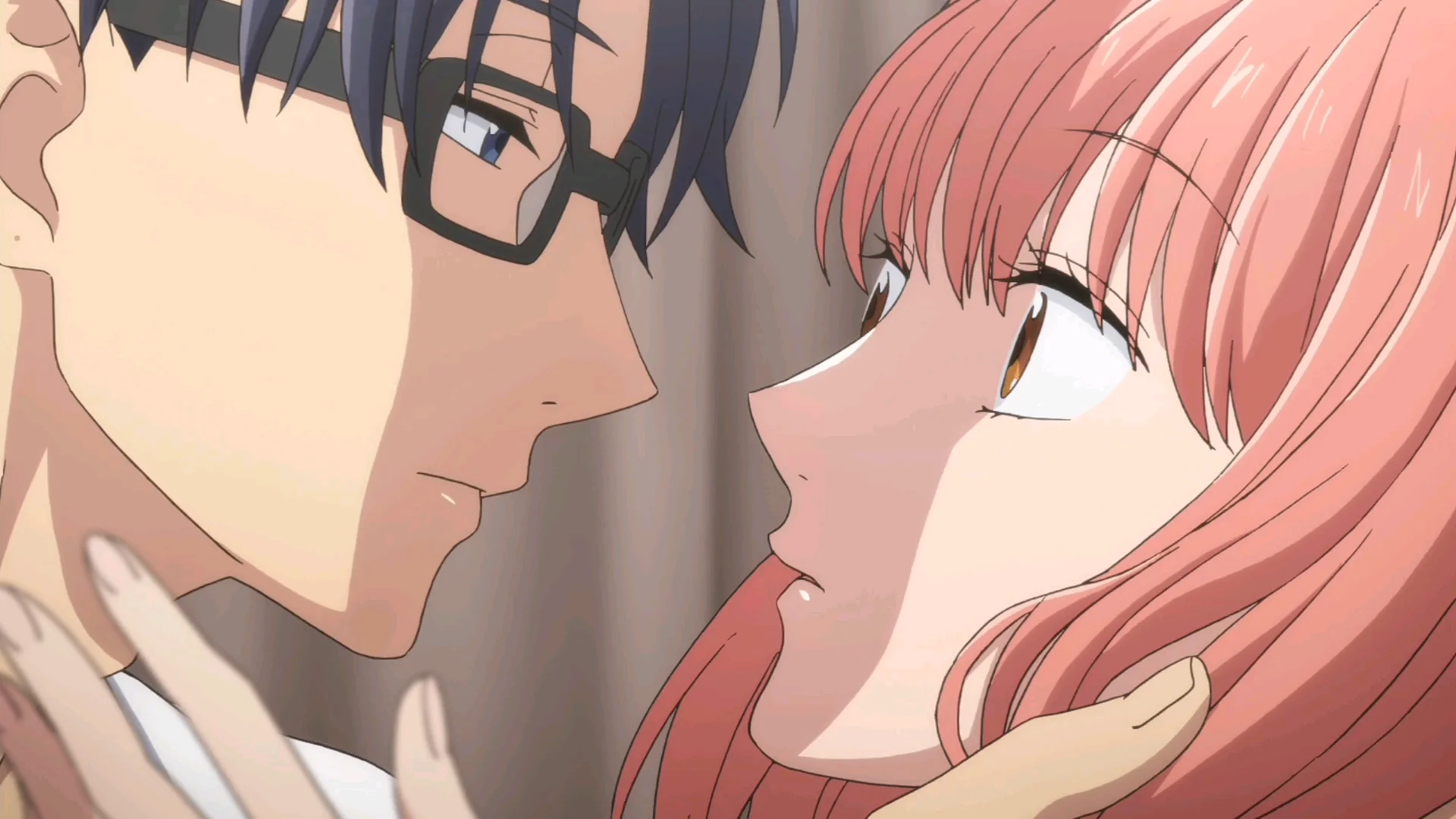
Join Narumi Momose and Hirotaka Nifuji on their journey through love and otaku culture in “Wotakoi: Love Is Hard for Otaku.” Narumi, a devoted fujoshi and otaku, struggles to conceal her hobbies at her new workplace. However, her secret is soon discovered by Hirotaka, a childhood acquaintance turned coworker who shares her passion for otaku interests.
As they reconnect over drinks and reminisce about old times, Narumi confides in Hirotaka about her romantic misfortunes.
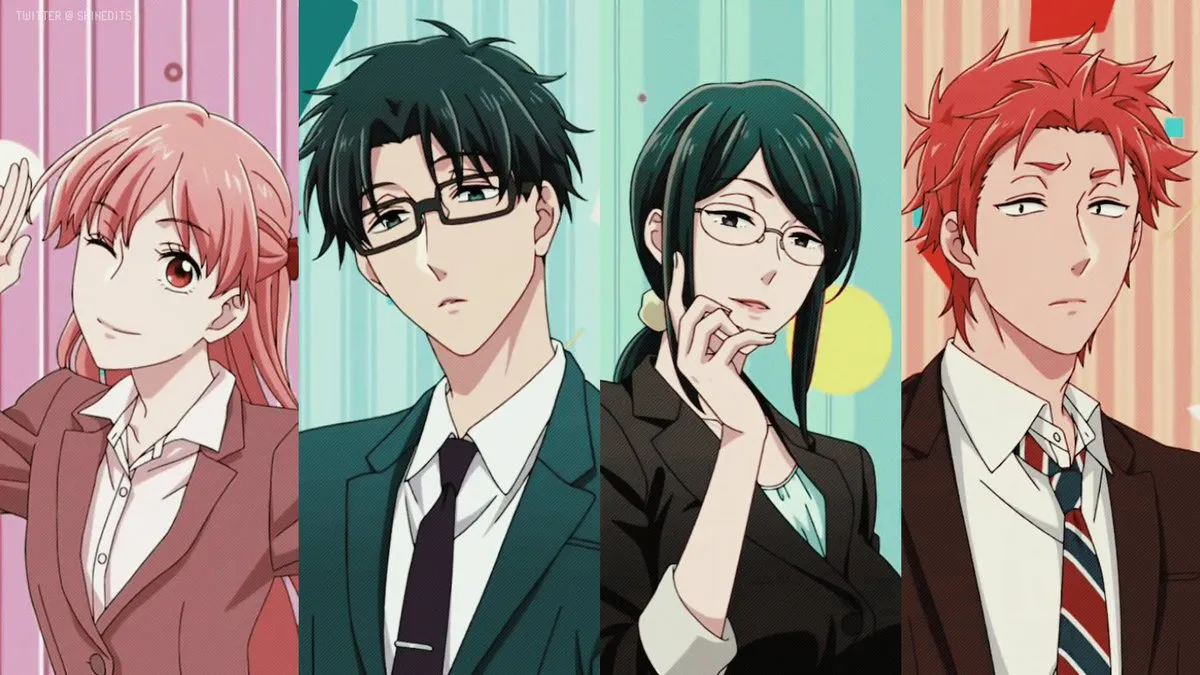
Seizing the opportunity, Hirotaka proposes that they date each other, considering their shared interests as otaku. Thus, their unconventional yet endearing relationship begins, filled with comedic moments and heartwarming interactions.
“Wotakoi: Love Is Hard for Otaku” offers a delightful blend of romance and slice-of-life comedy, catering to fans of My Dress-Up Darling with its charming portrayal of Otaku culture and genuine romantic connections.
4. Princess Jellyfish
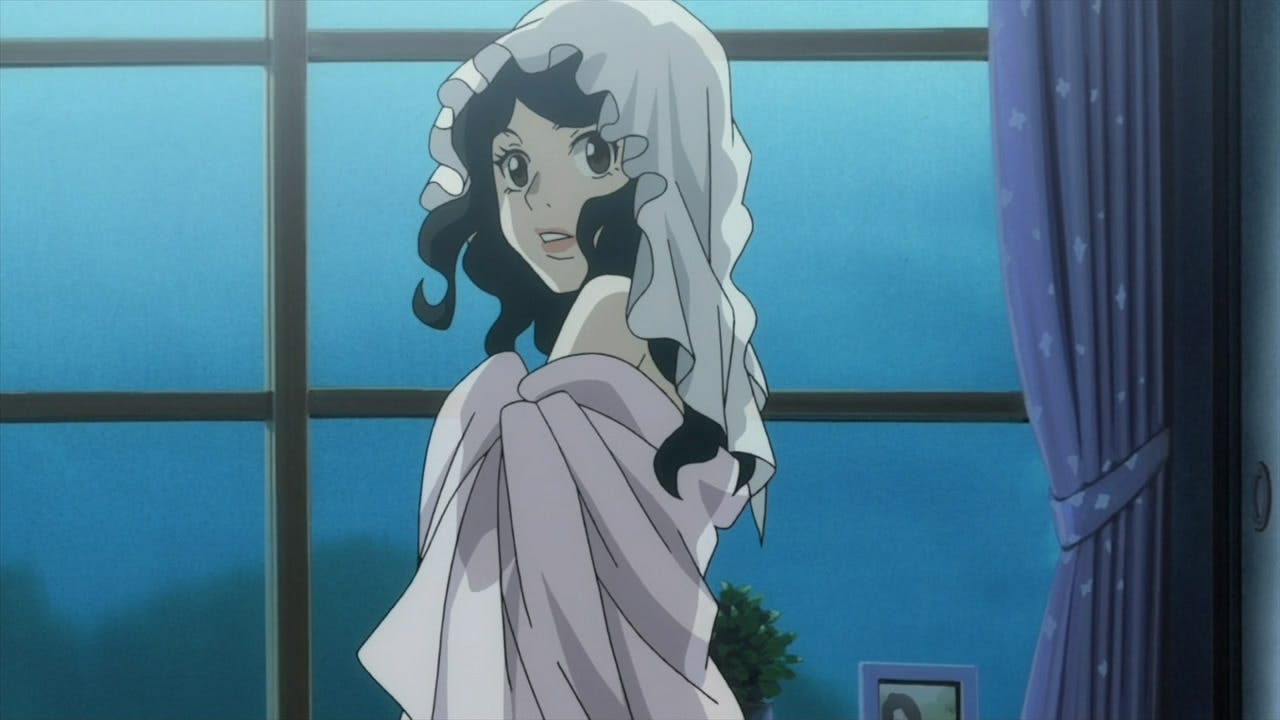
“Princess Jellyfish” unfolds the modern Cinderella tale of Tsukimi Kurashita and Kuranosuke Koibuchi. Tsukimi, enamored with jellyfish, resides in a dorm with fellow otaku women who struggle with social interactions. Her life takes a turn when Kuranosuke, a wealthy man disguised as a woman, aids her in rescuing a jellyfish.
As Kuranosuke continues to visit Tsukimi’s dorm, their bond deepens while concealing his identity from her roommates. Together, they go on a journey of self-discovery, empowering Tsukimi to pursue her dreams with newfound confidence.
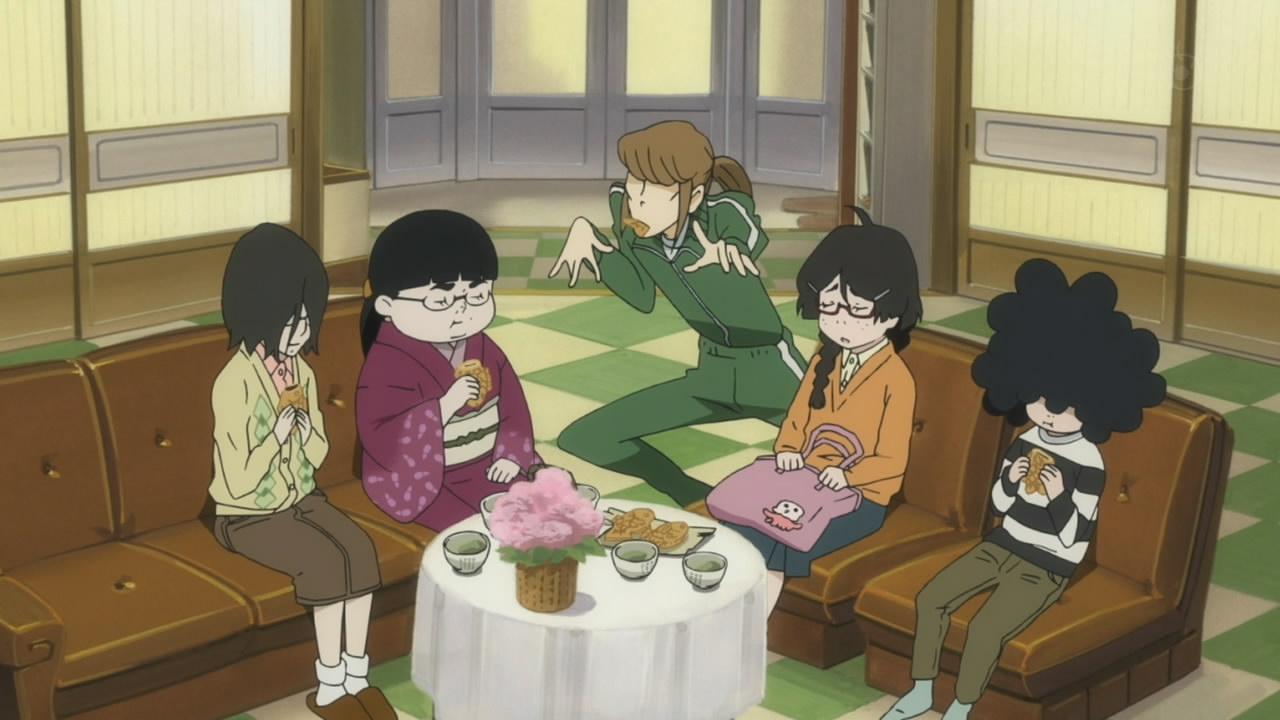
Princess Jellyfish is a heartwarming and comedic anime that blends romance, self-discovery, and social commentary. Adapted from Akiko Higashimura’s manga, the series follows a group of eccentric women navigating personal growth, friendship, and societal expectations. Produced by Brain’s Base, the anime stands out for its unique characters and unconventional love story, making it a refreshing take on the shoujo genre.
The story revolves around Tsukimi Kurashita, a shy and socially awkward young woman obsessed with jellyfish. Living in Amamizukan, a women-only apartment complex, she shares her space with other “NEET” women who are passionate about niche interests, from traditional dolls to trains.
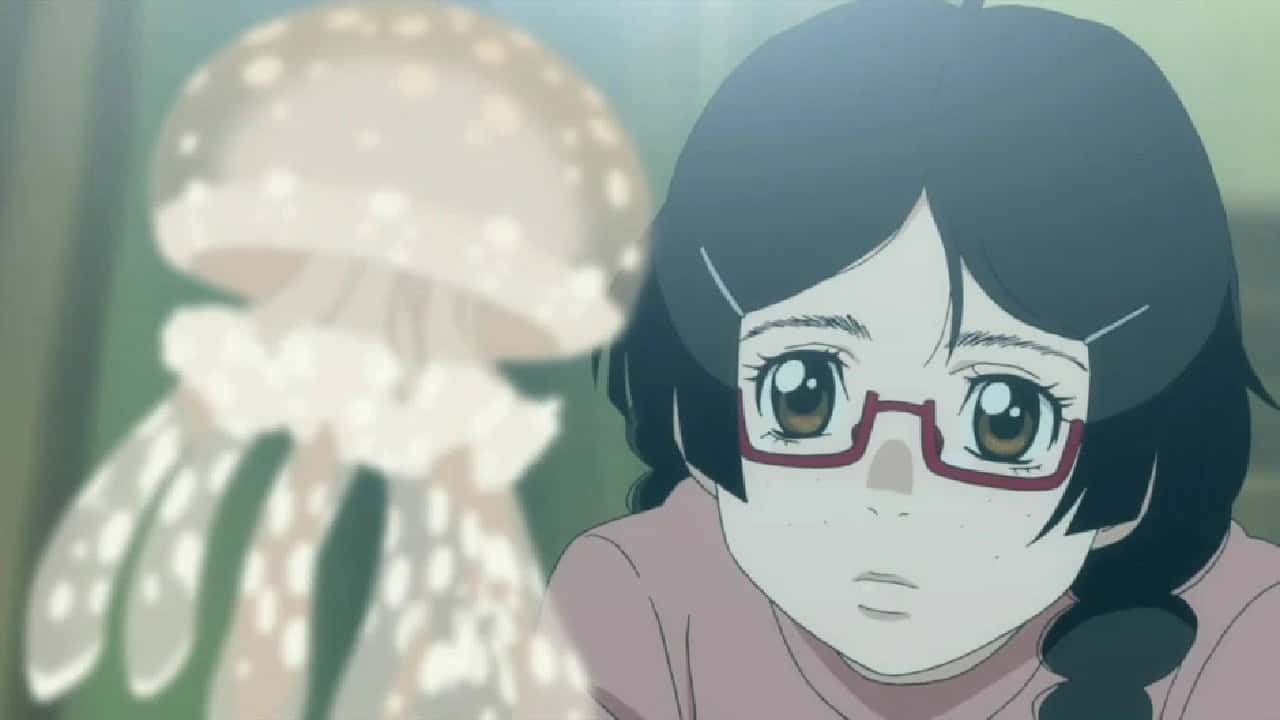
They collectively avoid men and fashionable society, finding comfort in their insular world. However, their quiet existence is disrupted when Tsukimi meets someone unexpected.
One night, Tsukimi rescues a jellyfish from a pet store with the help of a stylish and confident individual named Kuranosuke Koibuchi. To her shock, she later learns that Kuranosuke is not a glamorous woman but a cross-dressing man from a political family. Unlike Tsukimi and her friends, Kuranosuke embraces fashion and social life, yet he is drawn to Amamizukan and its residents, particularly Tsukimi.
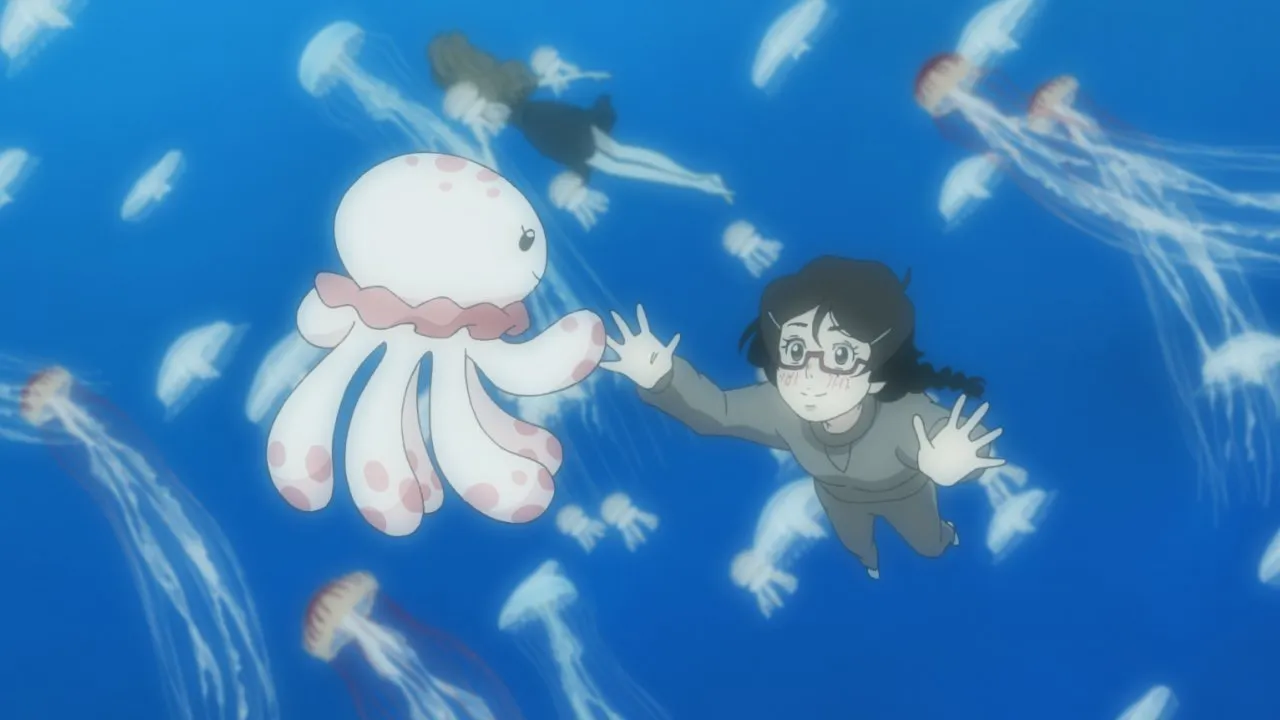
Kuranosuke’s presence challenges the status quo of Amamizukan. While the tenants resist change, he encourages them to step outside their comfort zones. His friendship with Tsukimi gradually pushes her to see herself beyond her insecurities.
Despite her fear of stylish people, she begins to recognize her potential and talent in fashion design, igniting a newfound passion that had long been buried under her self-doubt.
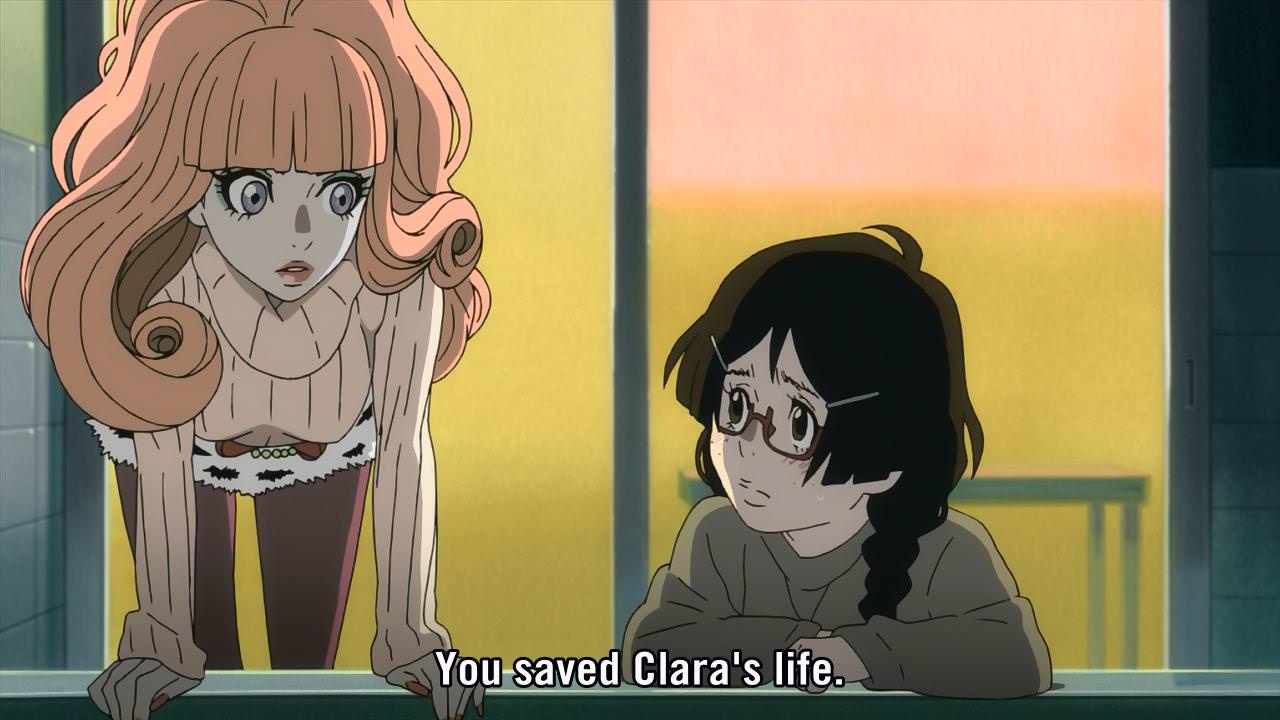
The relationship between Tsukimi and Kuranosuke is central to the story, though it defies traditional romance tropes. Kuranosuke’s interest in Tsukimi is not solely romantic; he admires her creativity and wants her to embrace her individuality. Tsukimi, on the other hand, struggles with her feelings, especially when she encounters Kuranosuke’s older brother, Shu. This love triangle adds depth to her emotional journey.
Shu represents the type of man Tsukimi has always admired—mature, reserved, and traditionally attractive. However, his view of her is shaped by society’s ideals of beauty, which contrasts with Kuranosuke’s genuine appreciation of who she truly is. This dynamic challenges Tsukimi to reflect on self-worth, love, and personal growth, making her development deeply engaging.
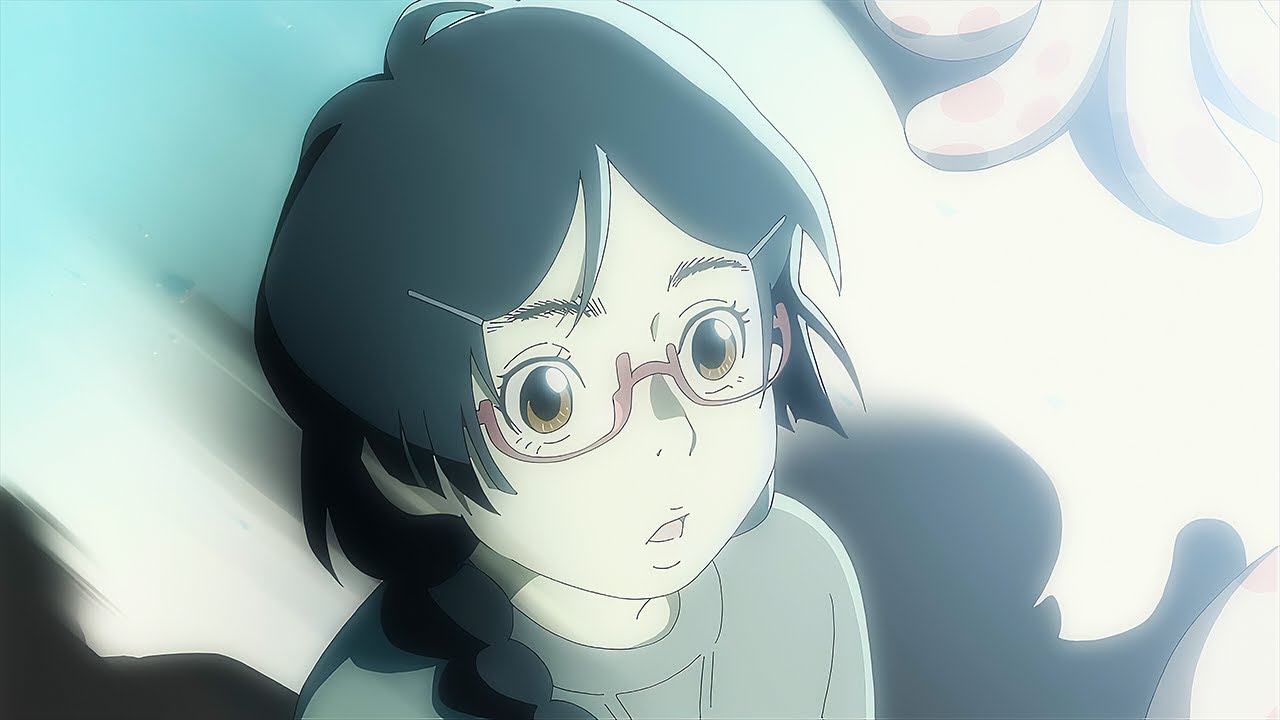
Beyond romance, Princess Jellyfish examines the struggles of women who feel out of place in mainstream society. The residents of Amamizukan, each with their quirks and insecurities, reflect the pressures faced by those who do not conform to societal expectations. Their fear of fashionable people, labeled as “Stylish,” symbolizes a deeper anxiety about acceptance and self-identity.
The anime also highlights the economic and social challenges of preserving individuality in a changing world. When a real estate development threatens to demolish Amamizukan, the residents must decide whether to fight for their home or accept inevitable change. This conflict serves as both a literal and metaphorical struggle, forcing them to confront their fears and take control of their futures.
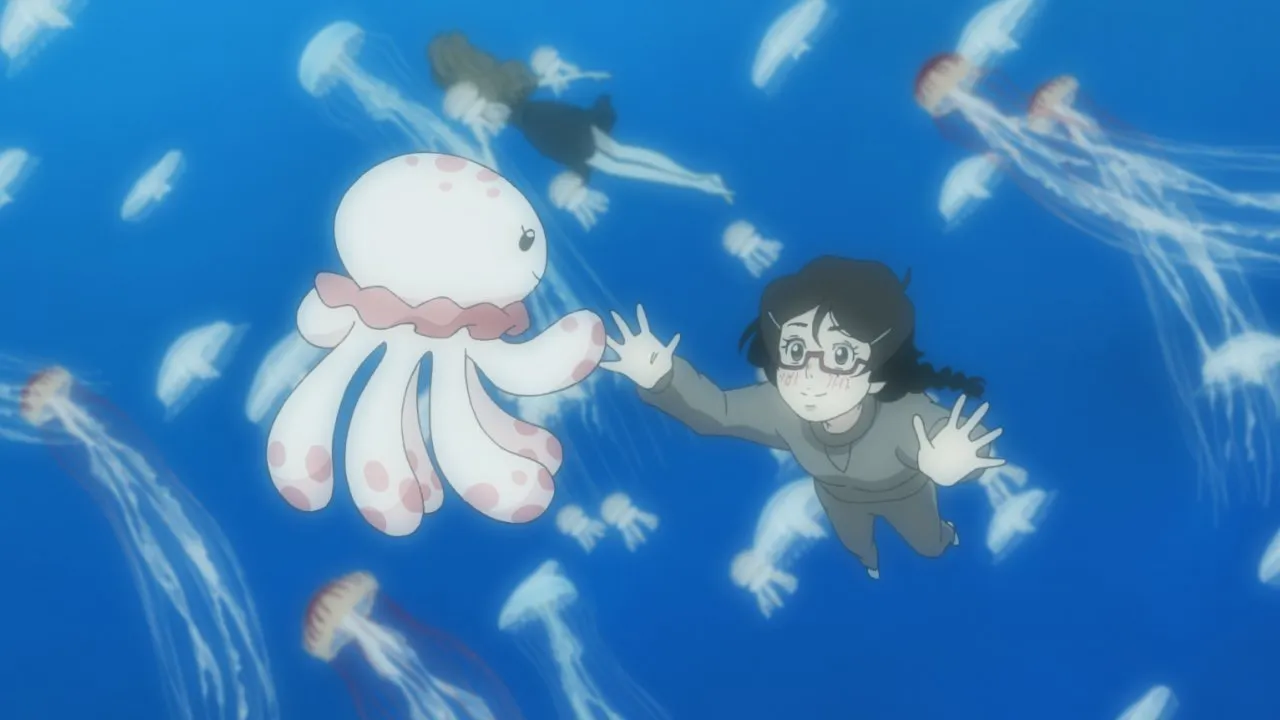
Visually, Princess Jellyfish adopts a charming and expressive art style. The contrast between the exaggerated, comedic expressions of the Amamizukan residents and Kuranosuke’s stylish, refined design enhances the story’s humor and emotional beats. The animation effectively conveys character personalities, from Tsukimi’s shy mannerisms to Kuranosuke’s bold confidence.
The soundtrack complements the anime’s lighthearted yet emotional tone. The opening theme, “Koko Dake no Hanashi” by Chatmonchy, sets a whimsical atmosphere, reflecting Tsukimi’s journey of self-acceptance. The background music enhances both comedic and heartfelt moments, adding depth to the storytelling. Voice performances, particularly Kana Hanazawa as Tsukimi and Mitsuki Saiga as Kuranosuke, bring the characters to life with authenticity.
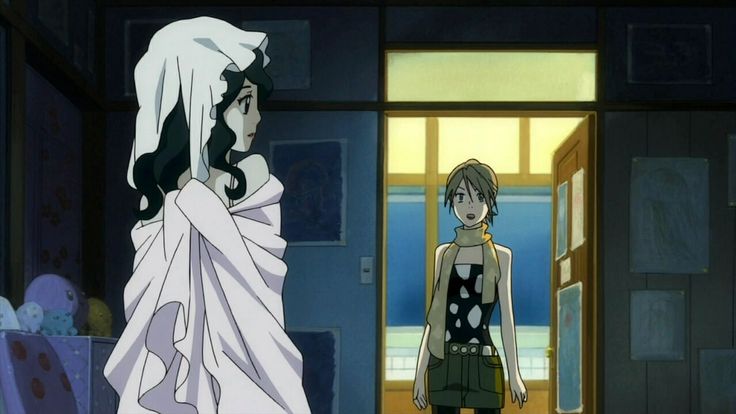
What makes Princess Jellyfish stand out is its blend of humor, heartfelt storytelling, and social commentary. It goes beyond being a simple romance and instead becomes a tale of self-discovery, friendship, and challenging societal norms. The characters, despite their exaggerated personalities, feel real and relatable, making their struggles and victories all the more meaningful.
Though the anime covers only a portion of the manga, it delivers a satisfying and memorable experience. It leaves viewers with themes of empowerment, self-acceptance, and the importance of embracing one’s unique qualities. Princess Jellyfish remains a charming and impactful series that resonates with anyone who has ever felt like an outsider, reminding them that being different is something to be celebrated.
3. Paradise Kiss
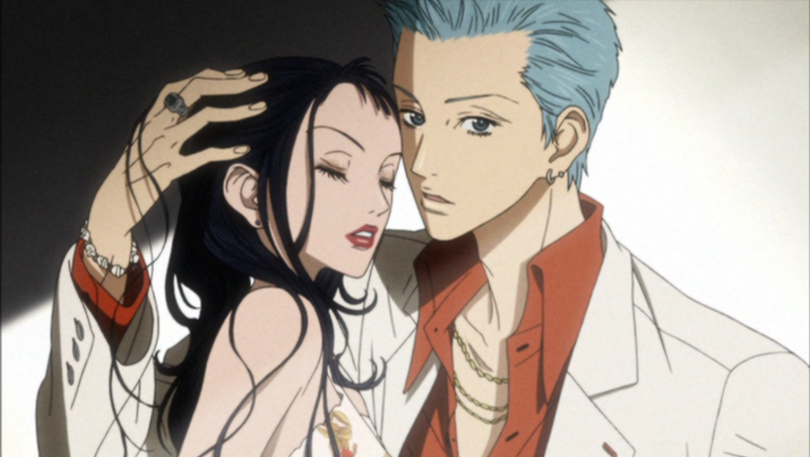
Yukari Hayasaka, a diligent high school student, feels confined in her routine life. Initially dismissive of the fashion design students at Paradise Kiss, she’s unexpectedly asked to model for them. Through this experience, Yukari discovers a new world of fashion and art, eventually finding herself.
Her relationship with the cold and distant designer, George, challenges Yukari to develop a strong sense of identity. Meanwhile, her classmate Hiroyuki secretly holds feelings for her, doubting she could ever reciprocate.
Despite some wishing for more depth in its characters over a longer series, Paradise Kiss remains a compelling romance anime, delving into themes of self-discovery and the complexities of love amidst the fashion industry.
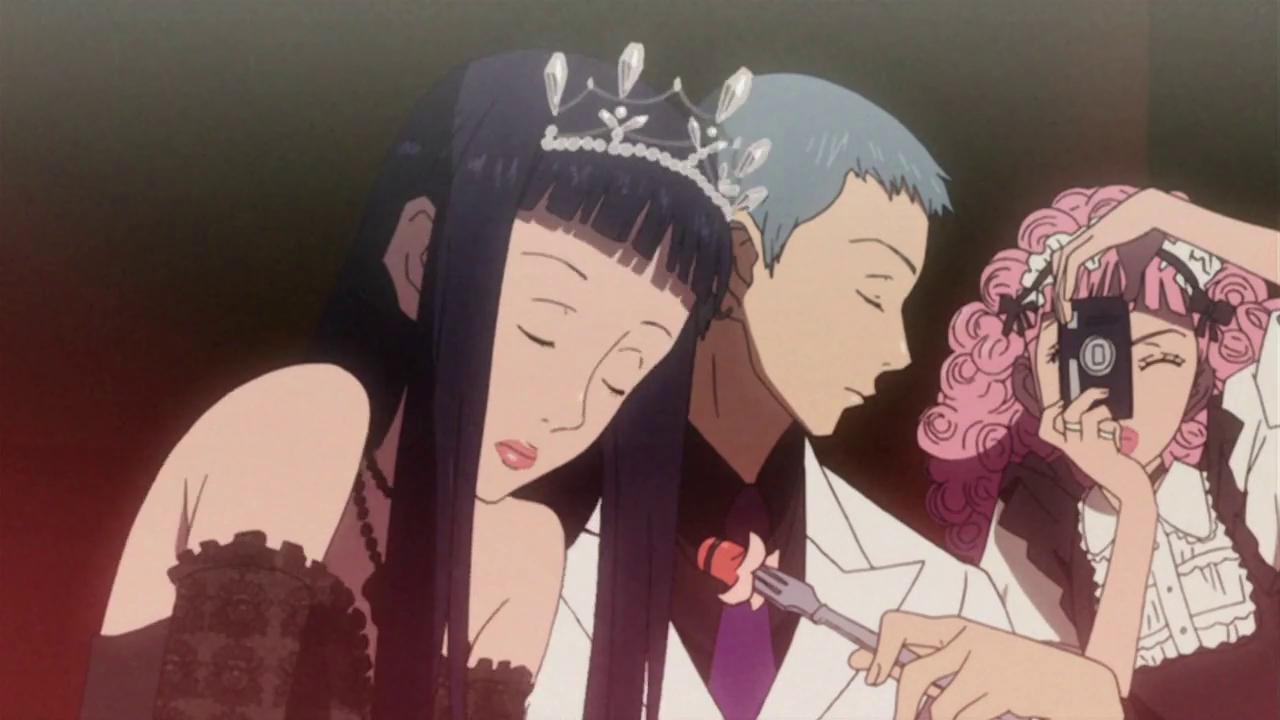
Paradise Kiss is a romantic drama anime adapted from Ai Yazawa’s manga. Produced by Madhouse, the series presents a mix of fashion, romance, and self-discovery, making it stand out within romance and coming-of-age stories. With its stylish aesthetic and mature themes, it moves beyond traditional love stories to examine ambition, identity, and the pursuit of dreams.
The story follows Yukari Hayasaka, a high school student living under others’ expectations. Focused on academics, she aims to please her strict mother, never questioning her future. However, her monotonous routine takes a turn when she encounters a group of eccentric fashion students from the Paradise Kiss atelier. They see her as the ideal model for their fashion show and ask her to join them. Initially hesitant, Yukari is drawn into their world.
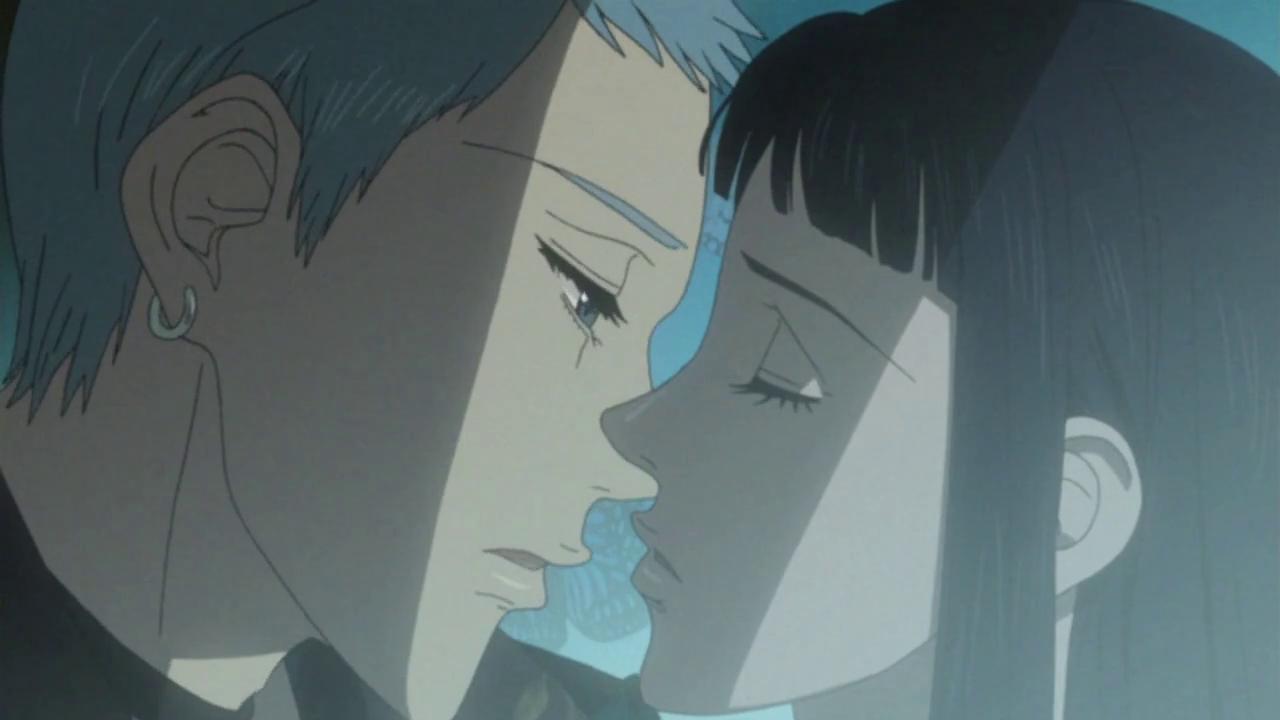
At the center of this new experience is George Koizumi, the confident and enigmatic leader of Paradise Kiss. With his striking appearance, undeniable talent, and unpredictable personality, he fascinates Yukari. Unlike the people she has known, George lives freely, chasing his dreams without concern for societal norms. His self-assurance is both inspiring and frustrating, creating a complex relationship filled with attraction, admiration, and emotional turmoil.
Yukari and George’s relationship is far from conventional. Their dynamic is passionate but filled with conflict, as George’s unpredictable nature often leaves Yukari feeling uncertain. While the chemistry between them is strong, the anime presents love realistically, showing that attraction alone is not enough. Yukari struggles to understand George’s intentions, and he, in turn, challenges her to think for herself instead of following others’ expectations.
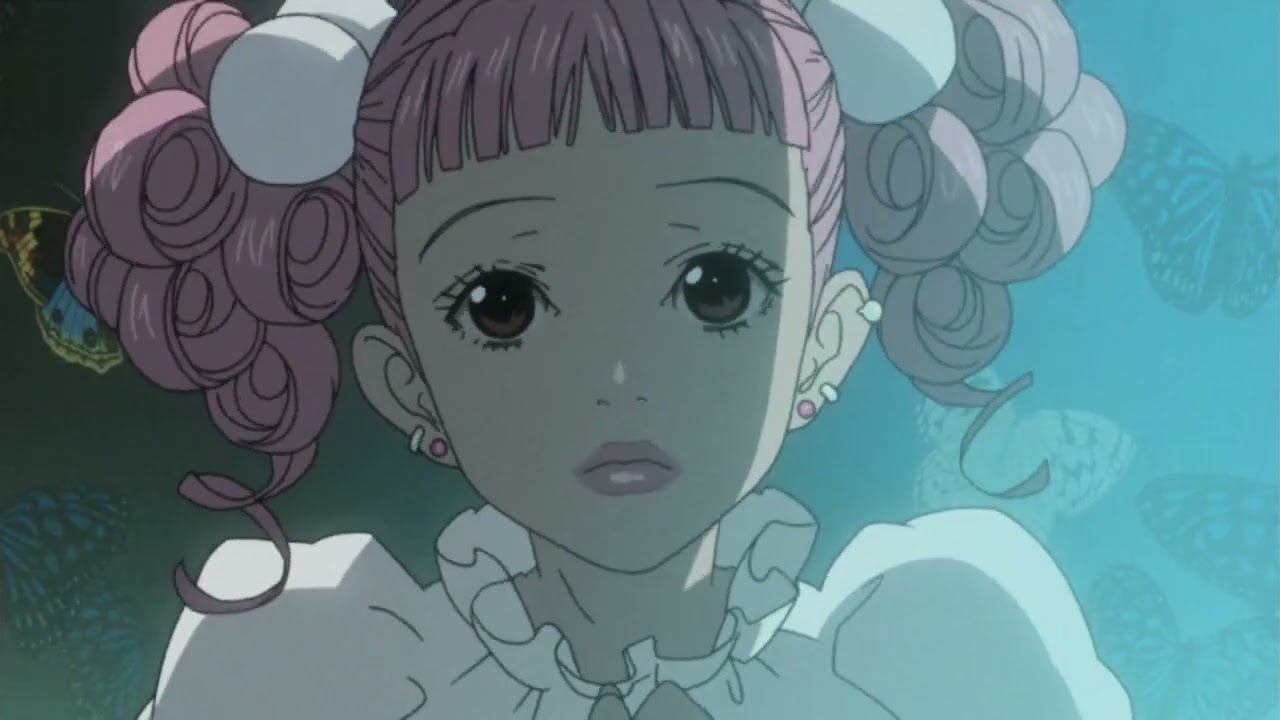
The supporting cast adds further depth to the story. Miwako Sakurada, a cheerful designer, brings warmth and optimism, though she carries past struggles. Her boyfriend, Arashi Nagase, is a punk-rock enthusiast with a blunt personality, sometimes causing tension. Isabella, the elegant and maternal figure of Paradise Kiss, is a transgender woman whose presence adds emotional stability to the atelier. Each of them has aspirations and conflicts, making them feel authentic and well-developed.
A significant strength of the anime lies in its examination of self-discovery. Yukari’s journey is not just about romance—it’s about breaking free from societal expectations and discovering her purpose. As she immerses herself in the fashion world, she starts questioning whether the life she envisioned is truly what she desires. This internal conflict makes her a compelling protagonist, as her struggles resonate with anyone who has felt trapped by expectations.
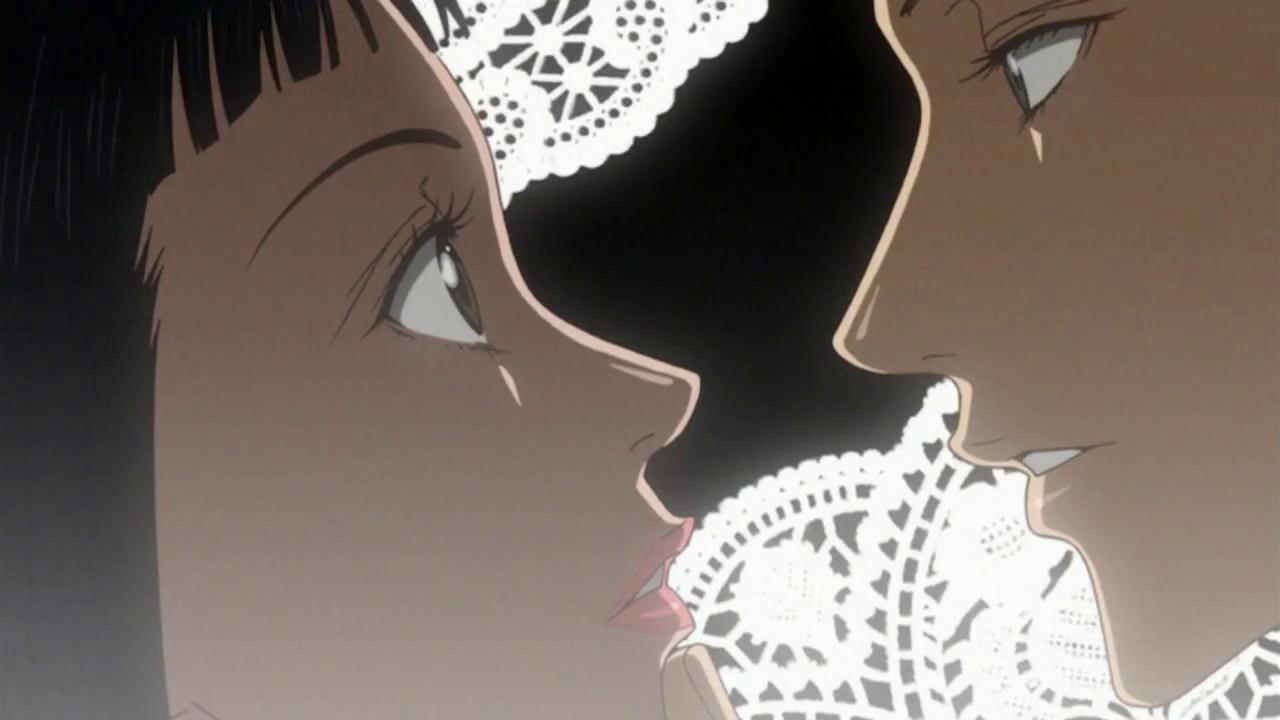
The anime also highlights the contrast between different types of love. Yukari’s relationship with George is passionate yet unpredictable, filled with intense emotions and uncertainty. In contrast, Hiroyuki Tokumori, a figure from her past, represents a more stable and conventional form of affection. This contrast reinforces that love takes different forms and choosing a partner is about more than attraction—it’s about shared values and mutual understanding.
Visually, Paradise Kiss stands out with its stunning animation. Madhouse brings Ai Yazawa’s art style to life, maintaining the sophisticated and edgy aesthetic of the original manga. Character designs are distinct and expressive, reflecting their personalities. The fashion elements are especially well-executed, with intricate outfits that add authenticity to the setting. The contrast between the vibrant fashion world and Yukari’s structured school life emphasizes her transformation.
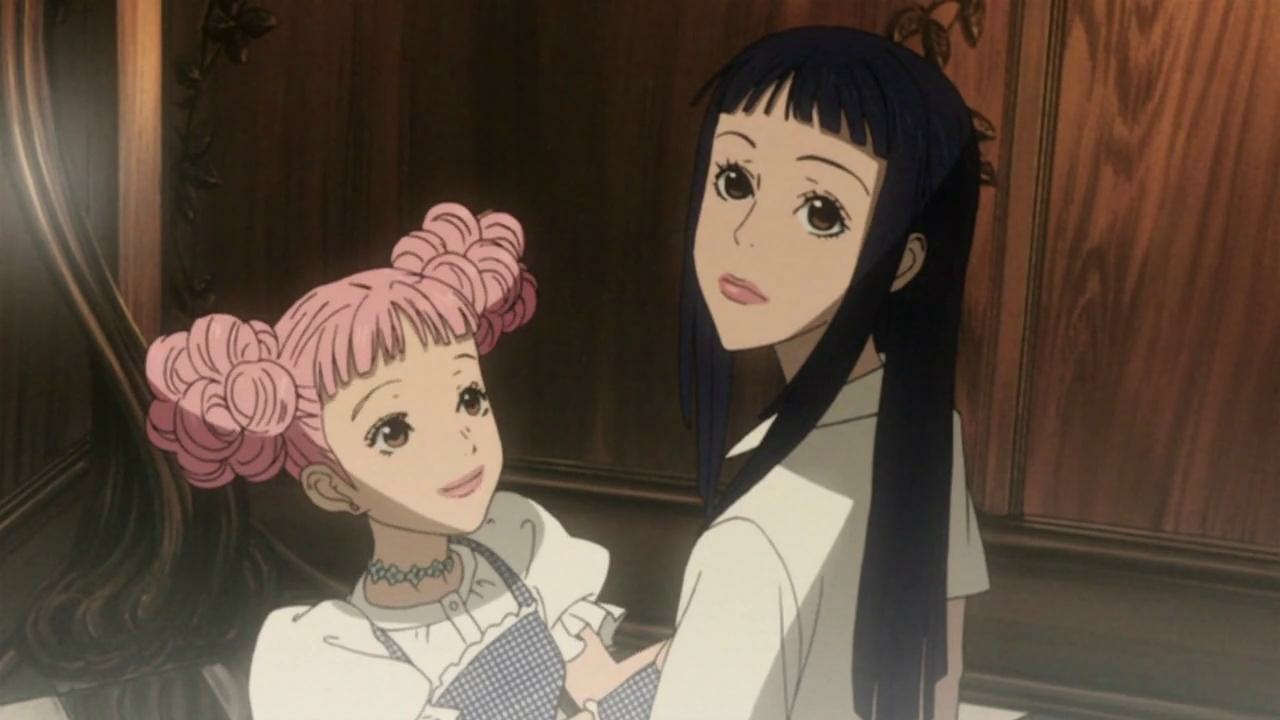
The soundtrack enhances the anime’s atmosphere. The opening theme, “Lonely in Gorgeous” by Tommy February6, sets the tone with a stylish, melancholic feel, perfectly capturing themes of ambition and fleeting romance. Background music complements emotional and dramatic moments, adding depth to the characters’ experiences. Voice acting is another highlight, with Yu Yamada delivering a nuanced performance as Yukari, portraying her growth from timid schoolgirl to confident young woman.
Paradise Kiss stands apart from many romance anime because of its realism. It does not idealize relationships or present love as a solution to all problems. Instead, it acknowledges adulthood’s challenges, the uncertainty of the future, and the difficult choices that come with growth. Yukari and George’s relationship is not a fairy tale but a genuine, sometimes painful experience that shapes them. The anime does not shy away from heartbreak.
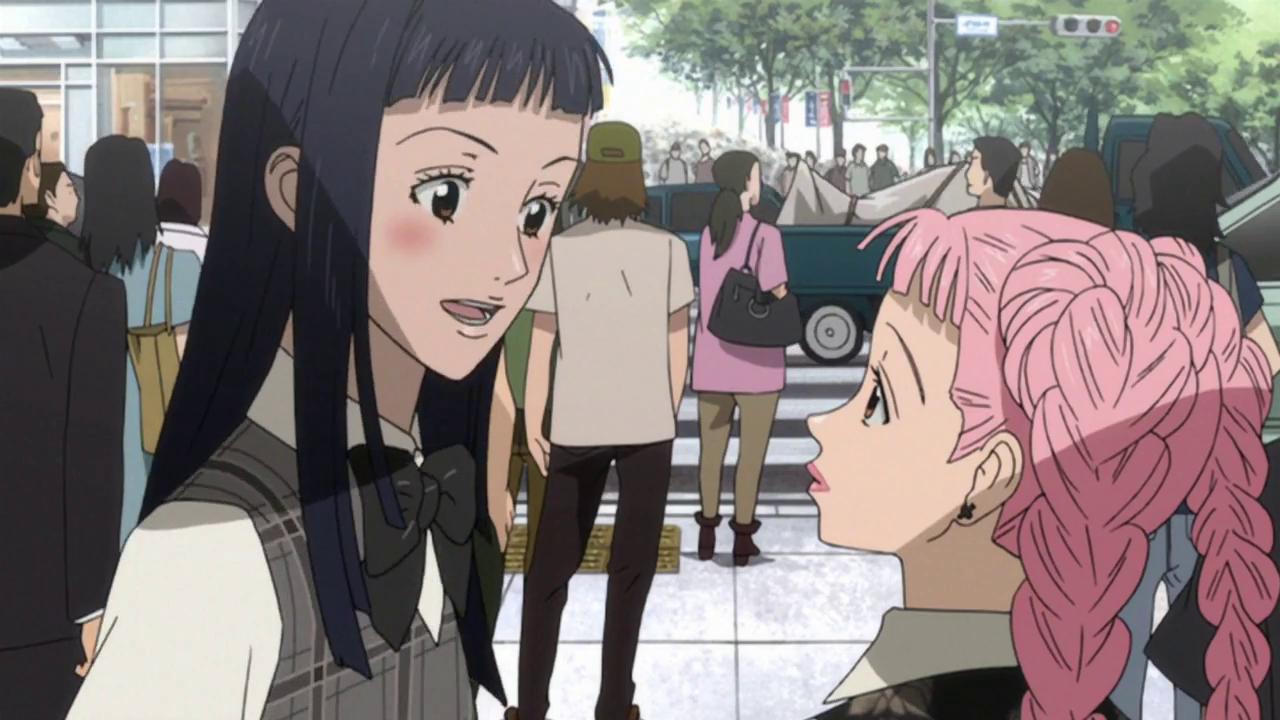
The ending is bittersweet, reinforcing the theme of personal growth over romantic fulfillment. Some viewers may find it unexpected or even disheartening, but it remains true to the anime’s realistic approach to relationships and ambition. It conveys that love, no matter how intense, does not always last forever, but the lessons learned from it remain. Yukari emerges stronger, ready to carve her own path in life.
Paradise Kiss remains a unique and emotionally rich anime that investigates ambition, self-discovery, and the struggle of finding one’s place. With its stylish animation, compelling characters, and mature storytelling, it leaves a lasting impact. Those who appreciate realistic coming-of-age stories with romance and drama will find it a memorable and thought-provoking experience.
2. Monthly Girls’ Nozaki-kun
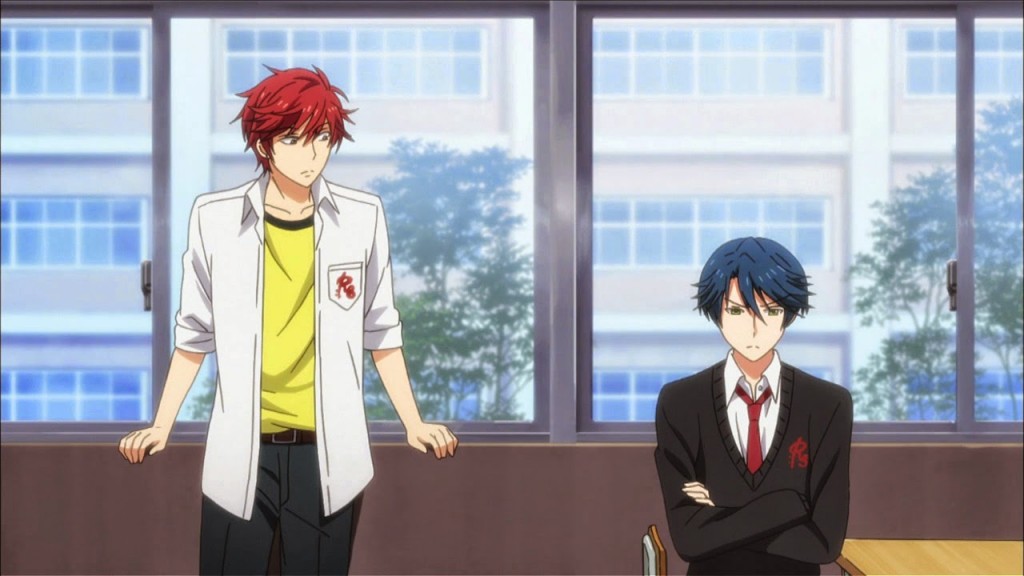
In “Monthly Girls’ Nozaki-kun,” Chiyo, a cheerful high school student, bravely confesses her feelings to her crush, only to be mistaken for a fan seeking an autograph. Her crush, Umetarou Nozaki, unbeknownst to Chiyo, is actually a renowned manga artist.
Through a series of misunderstandings, Chiyo ends up becoming Nozaki’s assistant. As she navigates her new role, she also gets to know her classmates and Nozaki’s other assistant.
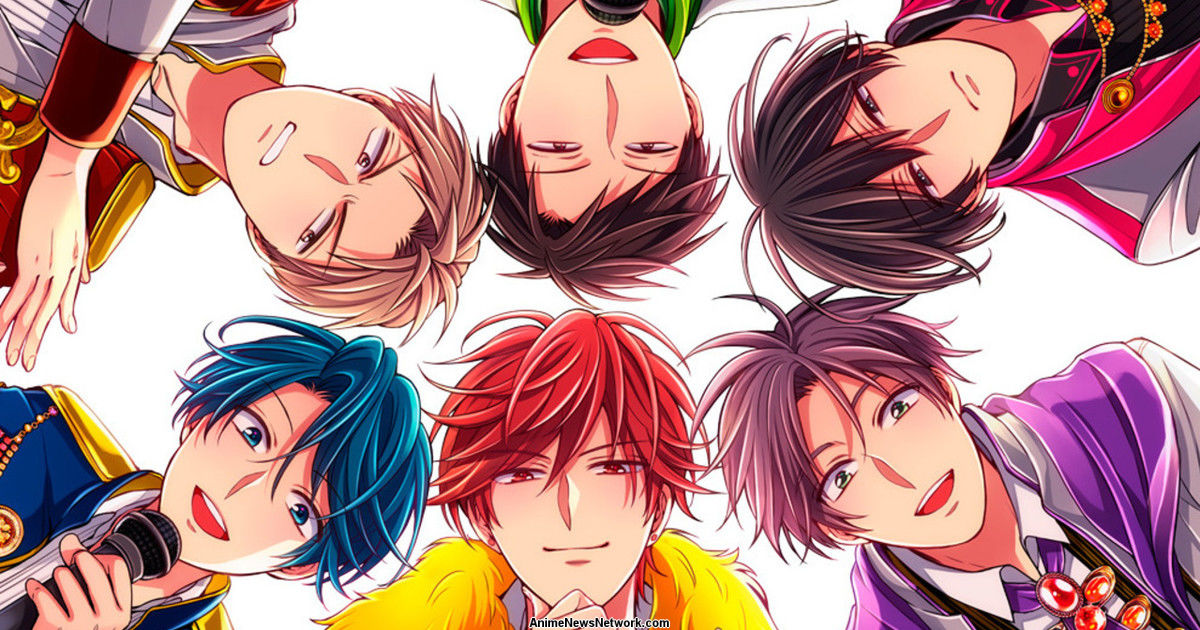
Despite her hopes that Nozaki will notice her, the anime primarily focuses on humor rather than romance. It cleverly uses romance as a source of comedic elements, often subverting typical romance anime conventions.
Additionally, “Monthly Girls’ Nozaki-kun” provides ample development for its side characters, enriching the overall viewing experience.
Monthly Girls’ Nozaki-kun is a romantic comedy anime that first aired in 2014, adapted from the four-panel manga by Izumi Tsubaki. Produced by Doga Kobo, the series revolves around Chiyo Sakura, a cheerful high school girl who confesses her feelings to her crush, Umetarou Nozaki.
However, her confession takes an unexpected turn when Nozaki mistakes her admiration for interest in his work as a manga artist, leading to a hilarious and unconventional relationship.
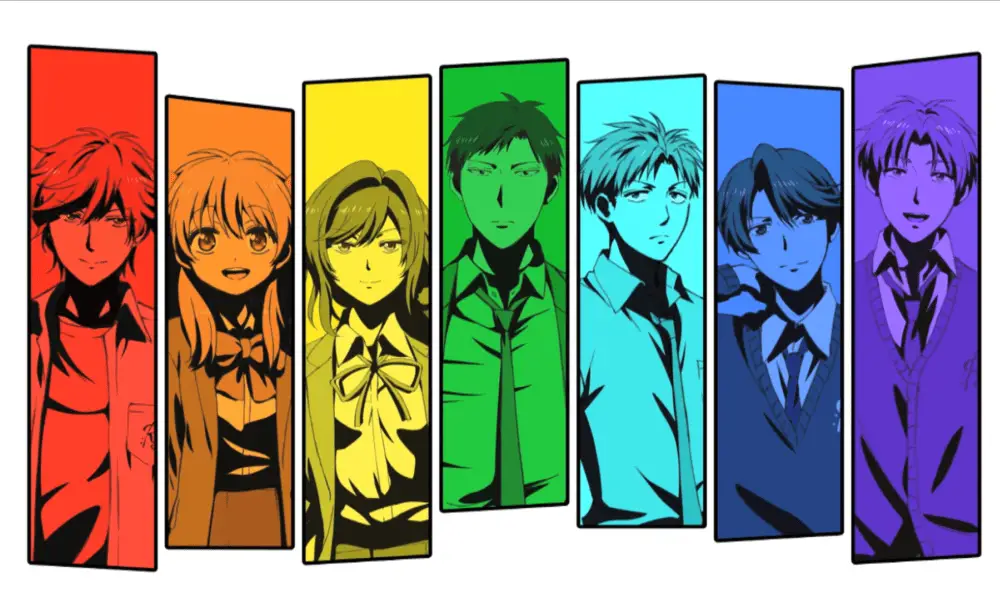
Chiyo Sakura is a bright and energetic high school student who has long admired Nozaki, a tall and aloof classmate. When she finally gathers the courage to confess, Nozaki misinterprets her words and hands her an autograph instead.
To make things even more confusing, she soon discovers that Nozaki is actually a well-known shoujo manga artist writing under the pen name “Sakiko Yumeno.” Instead of a romantic relationship, Chiyo unexpectedly becomes his assistant, helping him with backgrounds and story ideas.
Nozaki is completely oblivious to romance despite creating love stories for a living. His serious and deadpan nature contrasts sharply with Chiyo’s enthusiastic personality, leading to a series of misunderstandings and comedic moments.
Rather than progressing in their relationship, Chiyo finds herself increasingly caught up in Nozaki’s manga work, navigating his eccentric creative process and dealing with his equally unusual friends.
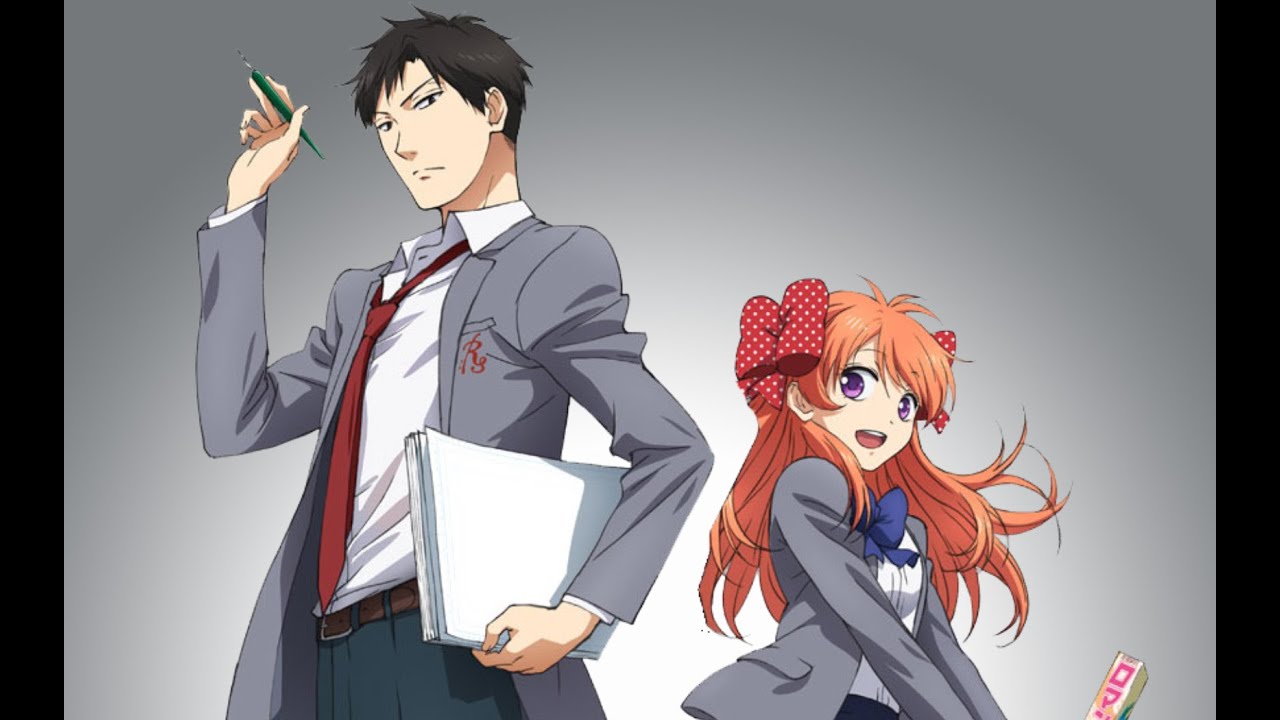
The anime introduces a colorful supporting cast, each adding a unique comedic twist to the story. Mikoto “Mikorin” Mikoshiba, Nozaki’s best friend, has the appearance of a flirt but is actually shy and easily embarrassed. Despite his tough-guy persona, he serves as the inspiration for Nozaki’s sweet and delicate shoujo heroine.
Yuu Kashima, a tall and charming girl, is adored by the female students but remains oblivious to her best friend Hori’s frustrations. Hori, the head of the drama club, constantly deals with Kashima’s antics while secretly assisting Nozaki by drawing manga backgrounds.
Seo Yuzuki, Chiyo’s bold and loud-mouthed friend, has no regard for social etiquette, yet she possesses a beautiful singing voice that surprises everyone. She shares an amusing dynamic with Wakamatsu, a basketball player who fears her aggressive personality but unknowingly admires her singing, unaware that they are the same person.
Each character’s quirks lead to endless comedic scenarios, often playing with shoujo manga tropes in unexpected ways.
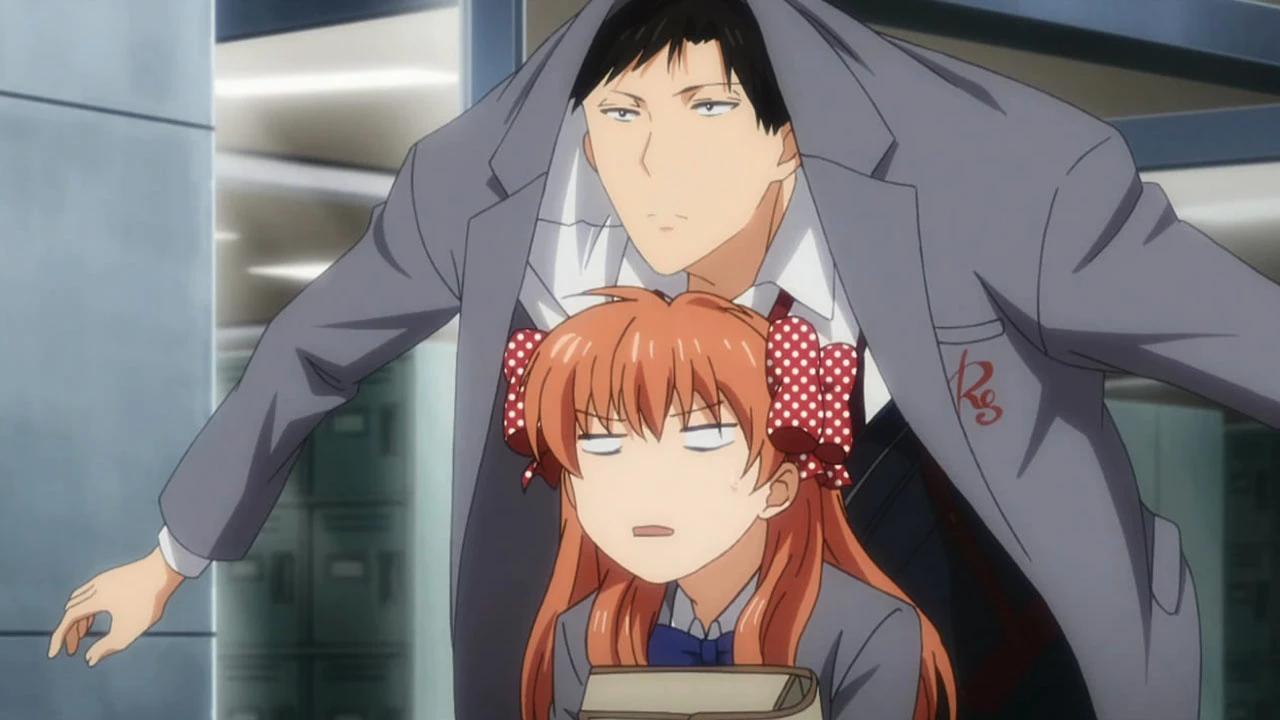
The humor in Monthly Girls’ Nozaki-kun thrives on subverting romantic clichés. While most shoujo stories focus on emotional love confessions and dramatic moments, this anime takes those same elements and twists them into absurd, deadpan humor.
Scenes that should be romantic often turn into ridiculous misunderstandings, with Nozaki approaching relationships like a research project for his manga rather than as genuine emotional experiences.
Visually, Doga Kobo delivers smooth and expressive animation that enhances the comedic timing. The exaggerated reactions, vibrant color palette, and playful character designs contribute to the show’s lighthearted charm. The manga panel-inspired scene transitions also give a unique touch, reinforcing the connection between Nozaki’s work and the characters’ daily lives.
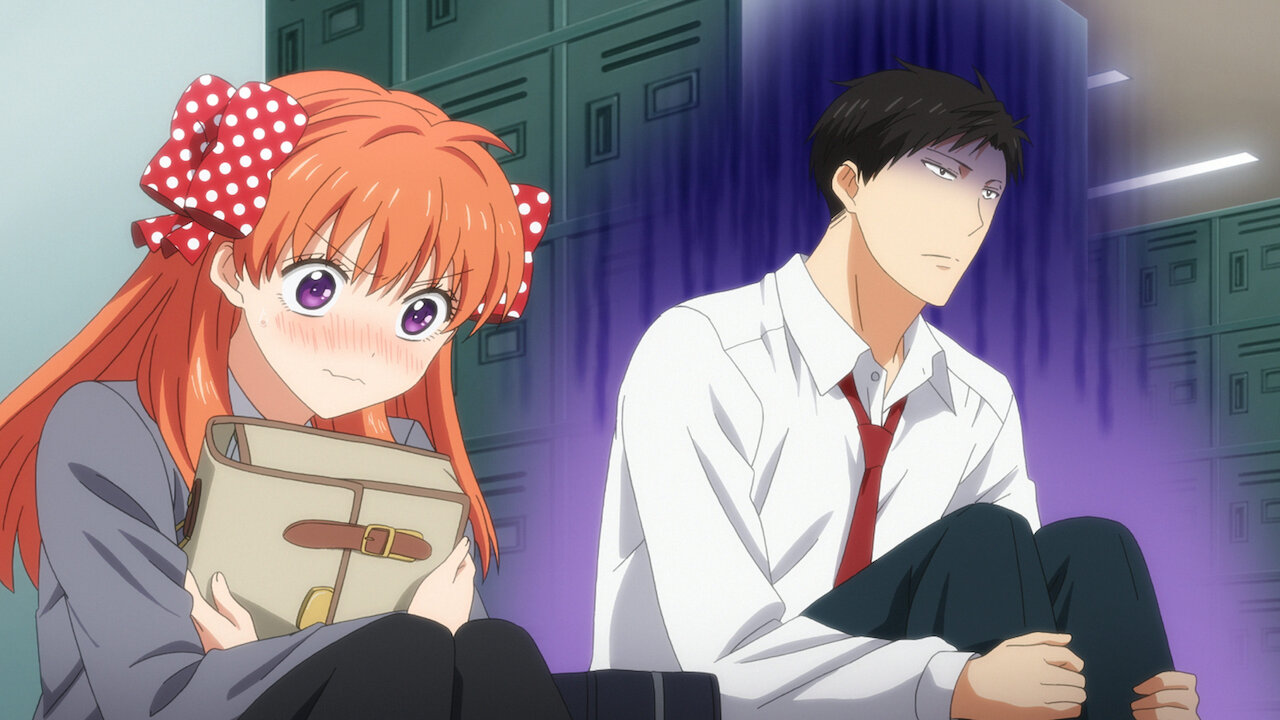
The soundtrack complements the series’ comedic and upbeat tone. The opening theme, “Kimi ja Nakya Dame Mitai” by Masayoshi Ōishi, is energetic and catchy, perfectly capturing the show’s playful atmosphere. The ending theme, “Ura Omote Fortune” by Ari Ozawa, reflects Chiyo’s unrequited yet persistent affection for Nozaki, adding a sweet and humorous contrast to the story’s comedic moments.
Voice acting plays a crucial role in the anime’s effectiveness. Ari Ozawa’s performance as Chiyo brings a mix of excitement and exasperation, while Yuuichi Nakamura’s portrayal of Nozaki emphasizes his oblivious yet well-meaning nature.
The supporting cast, including Nobuhiko Okamoto as Mikorin and Miyuki Sawashiro as Kashima, brings out the exaggerated yet endearing personalities of their characters, making each comedic interaction even more entertaining.
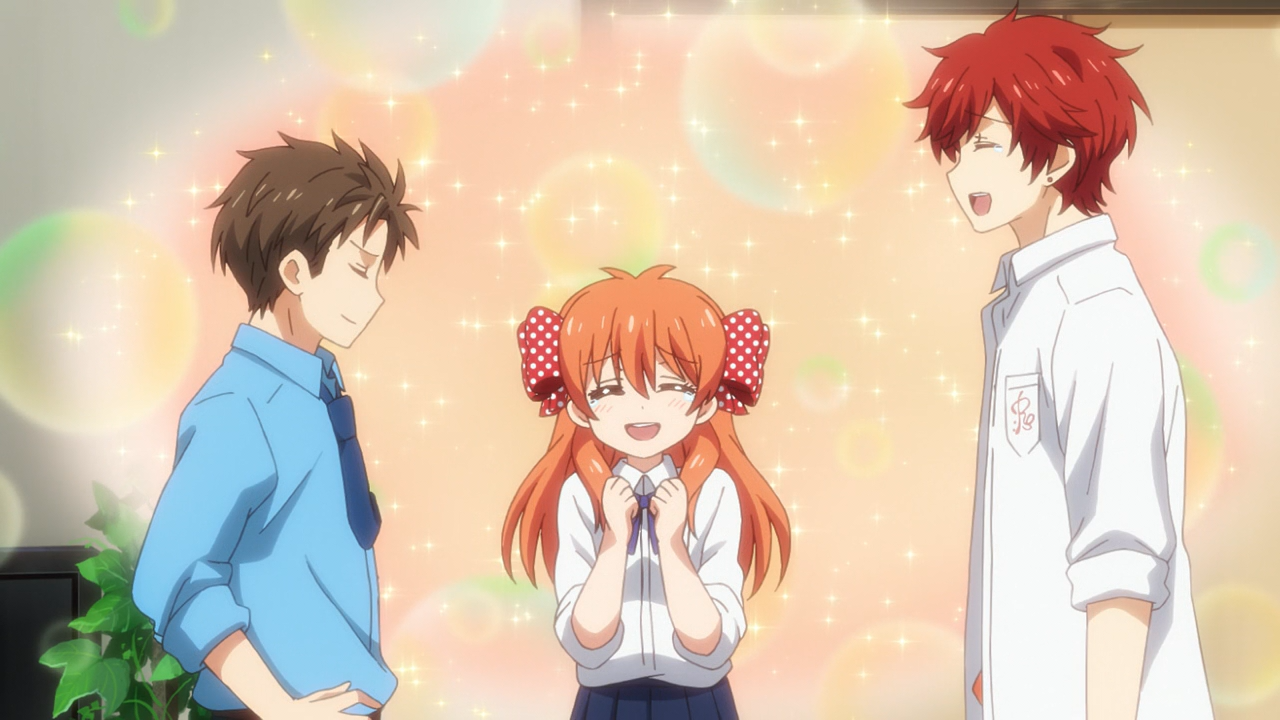
Despite its strong comedic focus, Monthly Girls’ Nozaki-kun subtly explores the creative process behind manga. Nozaki’s approach to storytelling, his struggles with character development, and his reliance on real-life experiences for inspiration all provide an amusing yet insightful look into the industry.
Chiyo’s involvement in assisting with his work also highlights the amount of effort and teamwork that goes into creating even the most seemingly simple shoujo manga.
The romance in the anime, while present, remains secondary to the humor. Chiyo’s affection for Nozaki is sincere, but his obliviousness keeps their relationship in a perpetual state of misunderstanding. Similarly, Hori and Kashima’s interactions hint at deeper feelings, but their dynamic remains comedic rather than dramatic.
The series ultimately focuses more on character interactions and playful deconstructions of romance rather than progressing towards concrete romantic resolutions.
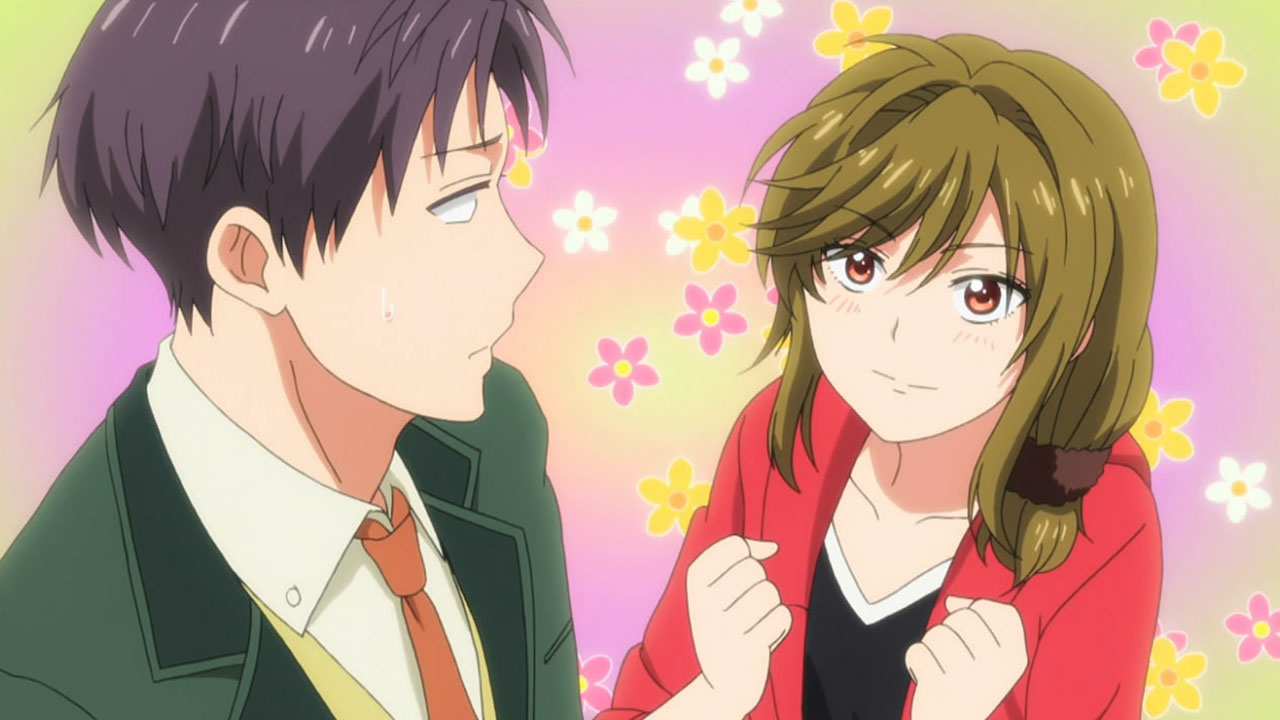
Despite being a well-loved series, Monthly Girls’ Nozaki-kun does not provide a conclusive ending. Since the anime adapts only a portion of the ongoing manga, many character relationships remain open-ended. While this lack of resolution may frustrate some viewers, the series’ episodic nature ensures that each episode remains enjoyable on its own, delivering consistent humor and charming moments.
Monthly Girls’ Nozaki-kun stands out as one of the best romantic comedy anime thanks to its clever writing, endearing characters, and sharp humor. Rather than following traditional shoujo romance tropes, it turns them upside down, offering an unpredictable and hilarious experience.
The combination of strong comedic timing, expressive animation, and well-developed character interactions makes it a must-watch for fans of lighthearted and witty storytelling.
1. Toradora!

In “Toradora!”, Ryuji Takasu faces numerous challenges—he supports himself and his mother, pines for a girl who barely acknowledges him, and faces daily bullying from his crush’s best friend.
When Taiga Aisaka mistakenly places a love letter on Ryuji’s desk, their lives intertwine. They make a pact to assist each other in winning over their respective crushes—each other’s best friends.

As they navigate their fruitless romantic pursuits, they develop a deep understanding of one another.
Taiga and Ryuji discover a unique connection, finding solace and support in each other’s company. Over time, their bond strengthens, transforming them into individuals capable of offering unwavering love and support.
Toradora! is a romantic comedy anime that first aired in 2008, based on the light novel series written by Yuyuko Takemiya and illustrated by Yasu. Produced by J.C.Staff, the series follows the complex relationships between high school students Ryuuji Takasu and Taiga Aisaka as they navigate love, friendship, and personal growth. With its blend of humor, drama, and heartfelt moments, Toradora! remains one of the most beloved romance anime to this day.
Ryuuji Takasu is a kind and responsible high school student who struggles with an unusual problem—his sharp eyes make him look intimidating, causing misunderstandings among his classmates. Despite his appearance, he is gentle, thoughtful, and skilled at housework, taking care of his single mother. On the other hand, Taiga Aisaka, known as the “Palmtop Tiger,” is small but fierce, with a fiery personality and a short temper.

Their paths cross when Taiga accidentally places a love letter for Ryuuji’s best friend, Yuusaku Kitamura, in his bag. This mishap reveals that Ryuuji has feelings for Taiga’s best friend, Minori Kushieda, leading them to form an alliance. They agree to help each other win over their respective crushes, but their constant interactions begin to shift their feelings in unexpected ways.
As Ryuuji and Taiga spend more time together, their relationship evolves from one of reluctant partnership to genuine companionship. Taiga, despite her aggressive nature, starts to rely on Ryuuji’s support, while Ryuuji sees past Taiga’s hostility and recognizes her vulnerability. Their bond deepens, creating emotional tension as they struggle with their growing affections for each other.
Minori Kushieda, Ryuuji’s initial crush, is cheerful and energetic but hides her own insecurities beneath her upbeat personality. She shares a deep friendship with Taiga and is perceptive about the emotions of those around her. Yuusaku Kitamura, the vice president of the student council and Ryuuji’s best friend, is friendly and easygoing but also has his own struggles.
Another key character is Ami Kawashima, a beautiful and seemingly perfect model who transfers into their school. Though she initially presents herself as charming and sweet, she reveals a sharp and blunt personality, challenging both Ryuuji and Taiga to confront their true feelings. Ami’s presence adds complexity to the group dynamics, as she understands the emotions Ryuuji and Taiga try to suppress.

The story gradually shifts from lighthearted comedic moments to deeper emotional conflicts. Taiga’s strained relationship with her parents, Ryuuji’s desire to take care of his mother, and the hidden struggles of their friends all contribute to the narrative’s emotional weight.
The series does not shy away from depicting the difficulties of growing up, dealing with expectations, and understanding one’s own emotions.
One of Toradora!’s strongest aspects is its character development. Ryuuji, initially focused on his crush on Minori, begins to recognize his deeper connection with Taiga. Taiga, who starts as an aggressive and emotionally guarded individual, grows into someone who learns to express her emotions and accept love.
Their gradual realization of their true feelings is handled with nuance, making their romance feel organic and deeply moving.
The animation, handled by J.C.Staff, effectively captures both the comedic and emotional elements of the story. Character expressions are well-animated, adding to the humor and emotional weight of key scenes. The series’ use of warm and soft color tones enhances the atmosphere, making both lighthearted and dramatic moments visually engaging.
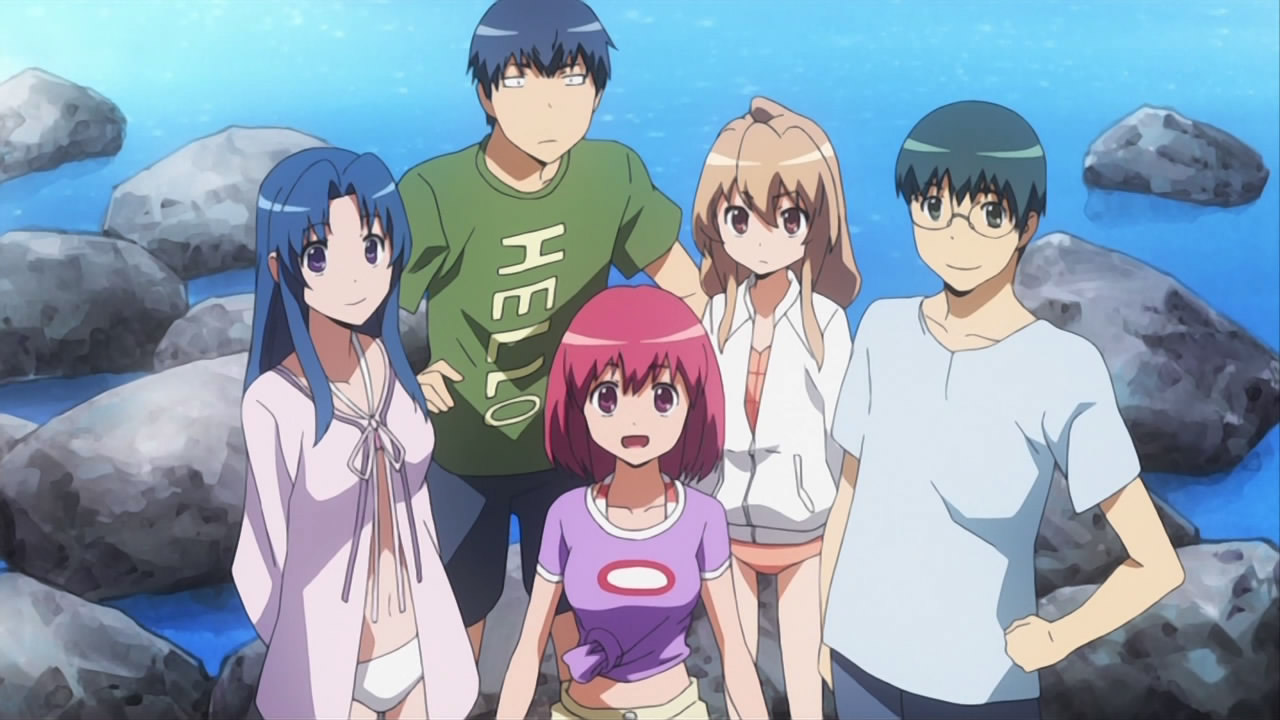
The soundtrack, composed by Yukari Hashimoto, complements the story’s emotional beats. The opening themes, “Pre-Parade” and “Silky Heart,” capture the series’ energetic and emotional tone, while the ending themes, “Vanilla Salt” and “Orange,” reflect the growing emotional tension and personal struggles of the characters.
The background music enhances the emotional weight of significant moments, deepening the impact of key scenes.
Voice acting plays a crucial role in bringing the characters to life. Junji Majima’s portrayal of Ryuuji captures his gentle yet awkward nature, while Rie Kugimiya’s performance as Taiga balances her fiery personality with moments of vulnerability. The chemistry between the cast members strengthens the emotional depth of their interactions, making their relationships feel genuine and relatable.
The story examines themes of love, personal growth, and self-acceptance. Ryuuji and Taiga’s relationship challenges the idea of idealized romance, instead focusing on the importance of emotional connection and mutual support. Their journey reflects the reality that love is not always straightforward and that understanding one’s own emotions can be a difficult but rewarding process.

As the series reaches its climax, Ryuuji and Taiga are forced to confront their true feelings. The emotional weight of their journey culminates in a heartfelt and memorable resolution. The final episodes deliver powerful and emotional moments that emphasize how much the characters have grown since the beginning of the story.
Toradora! remains a standout in the romance genre due to its strong character writing, emotional storytelling, and well-balanced mix of comedy and drama. The series captures the struggles and joys of young love while presenting characters who feel real and relatable. With its memorable cast, heartfelt moments, and satisfying conclusion, Toradora! continues to be a beloved and timeless romance anime.

